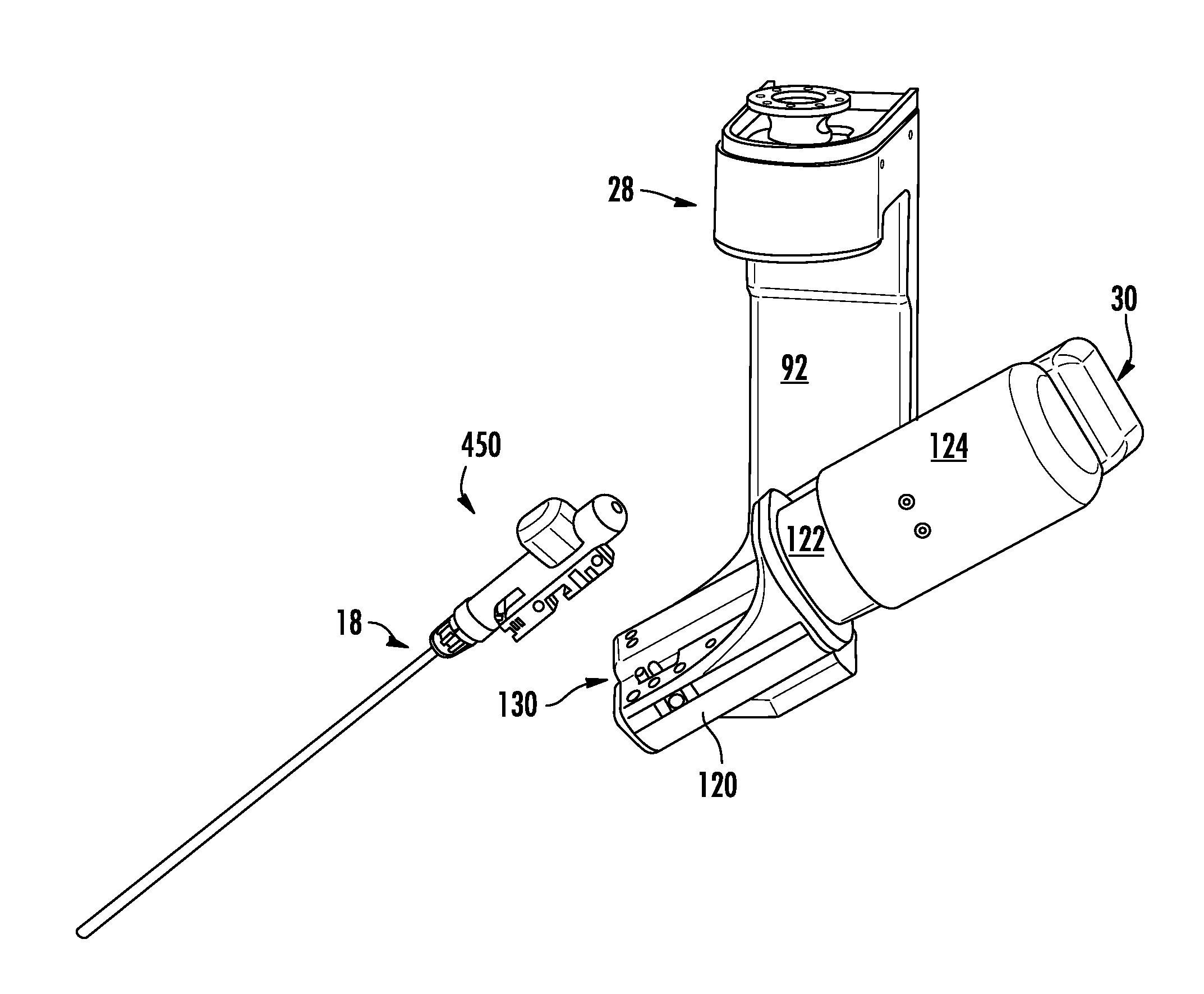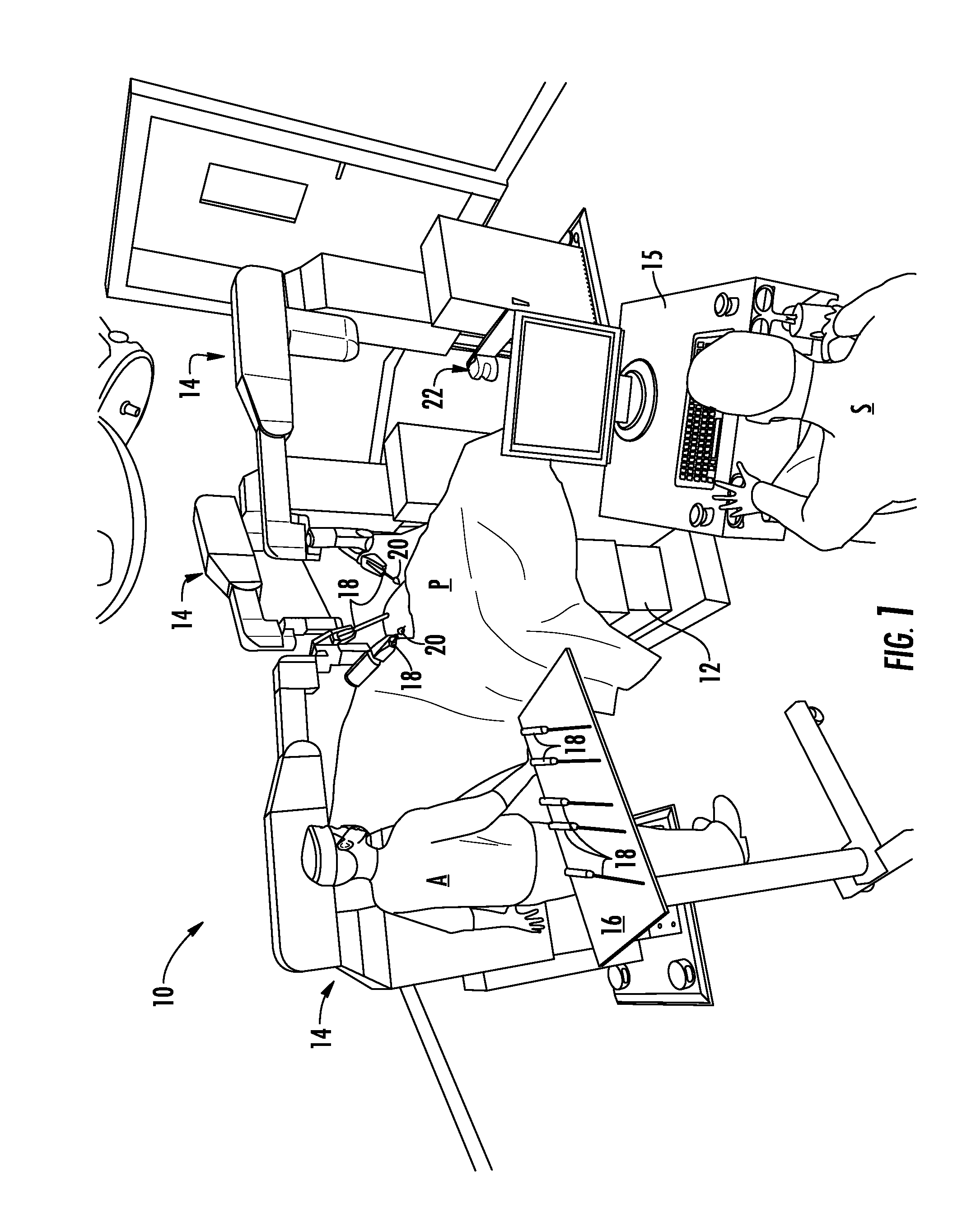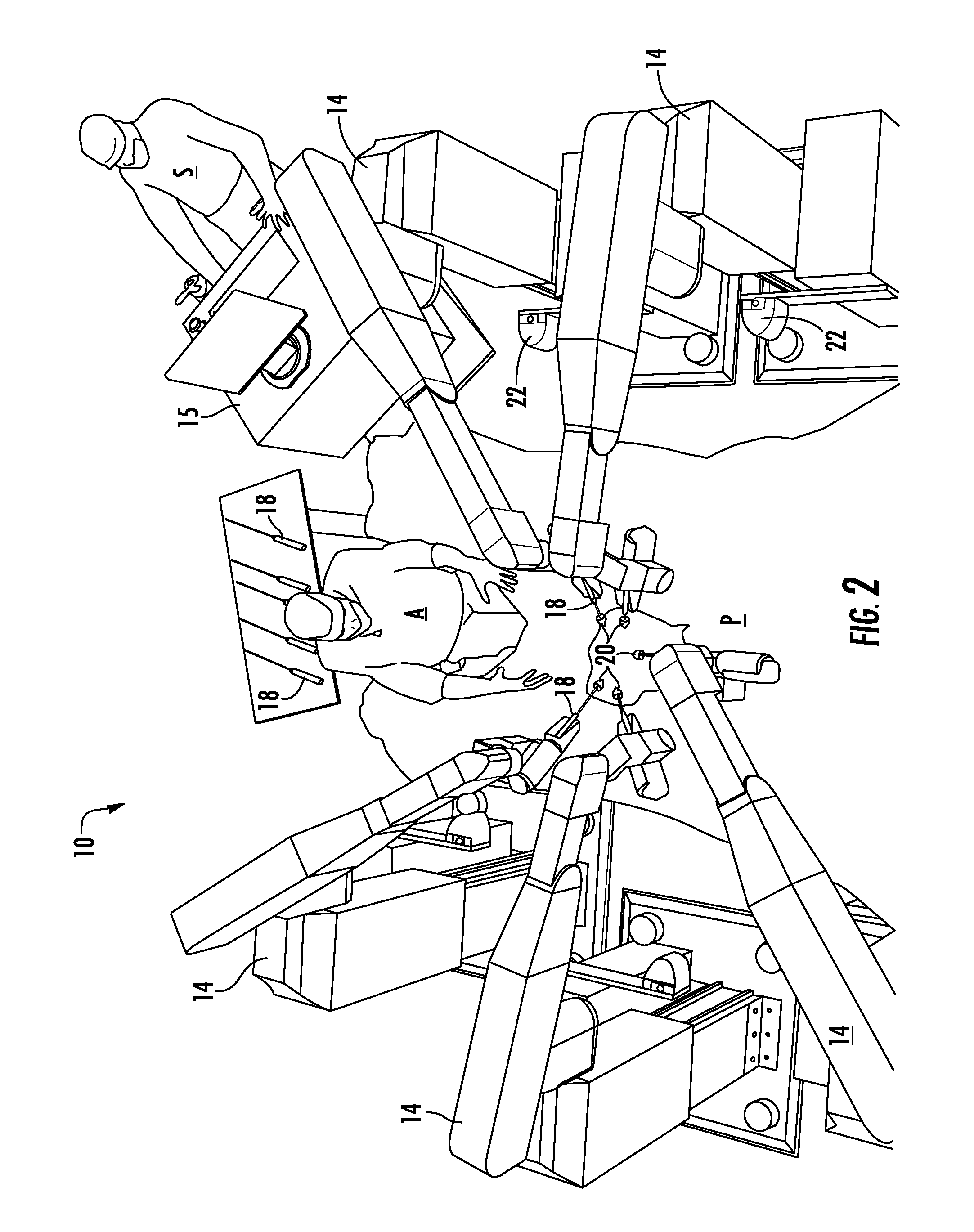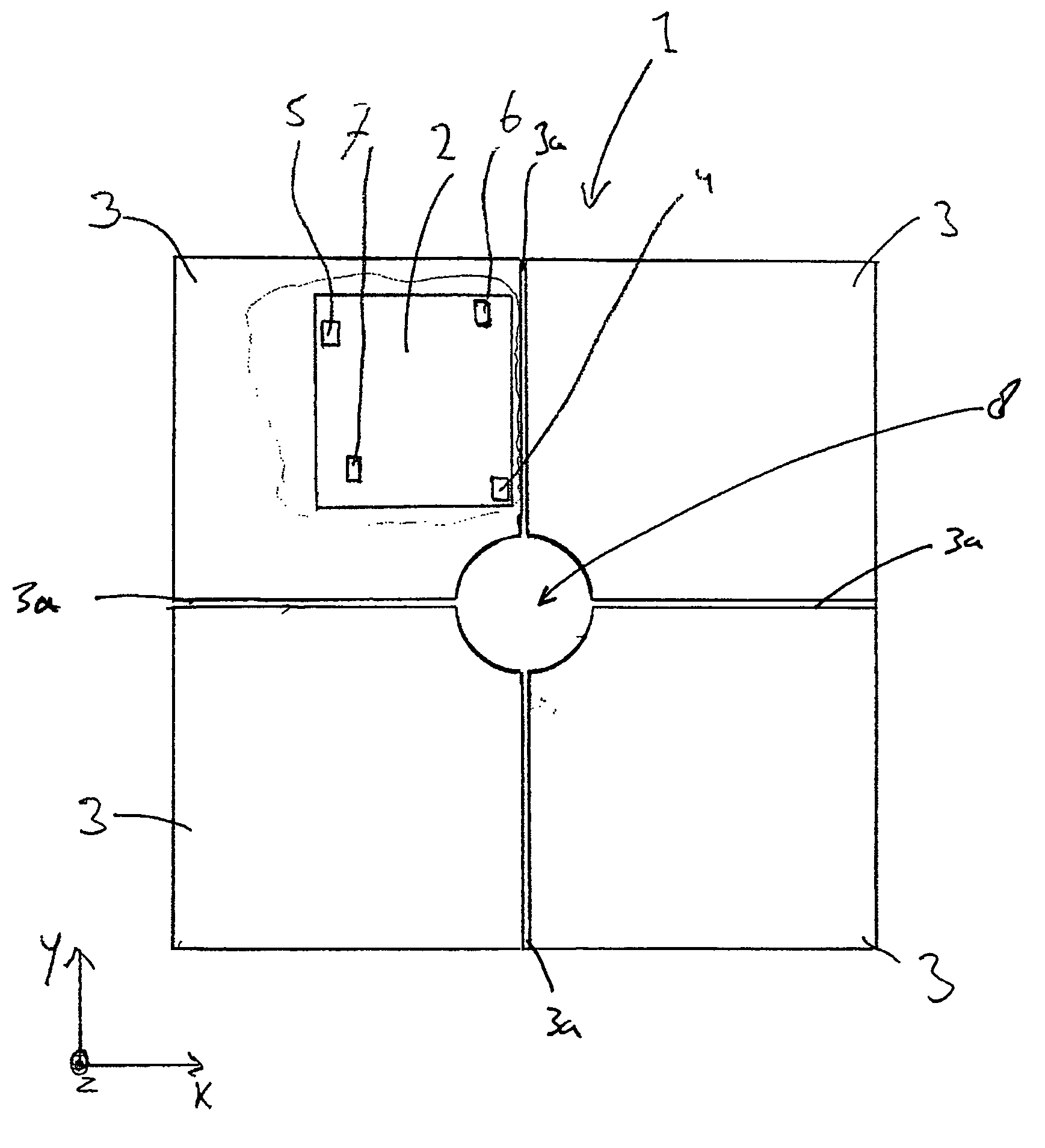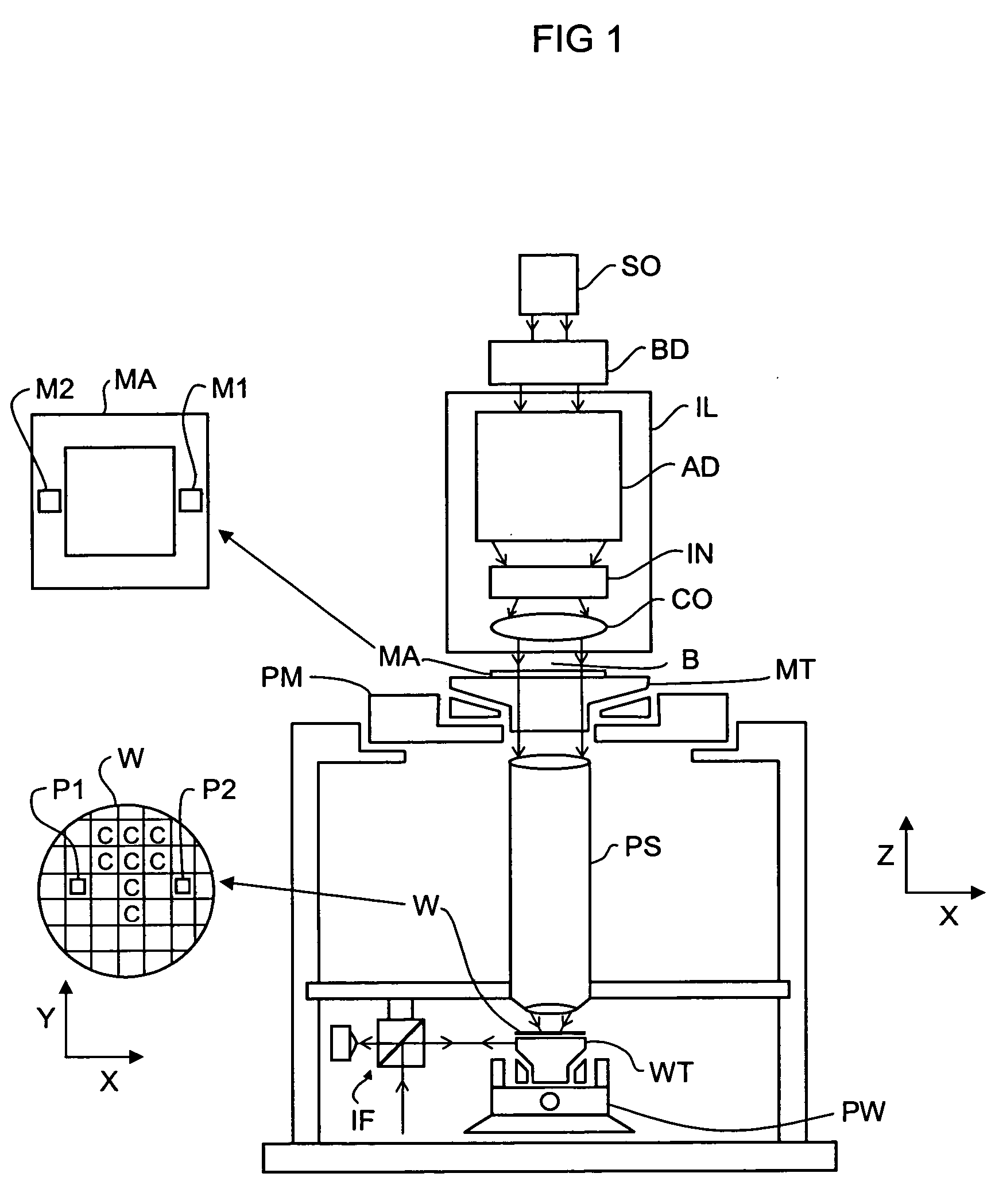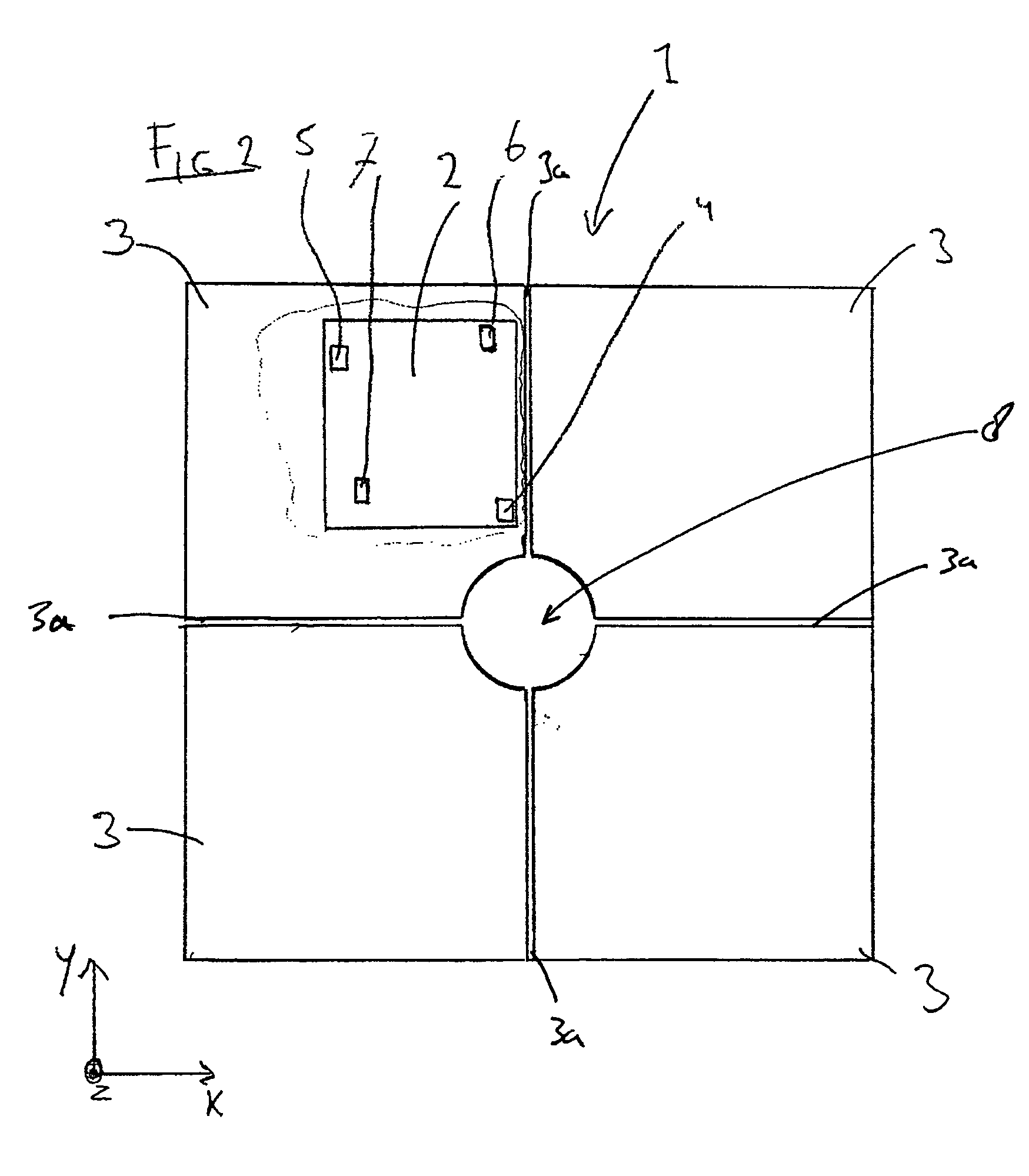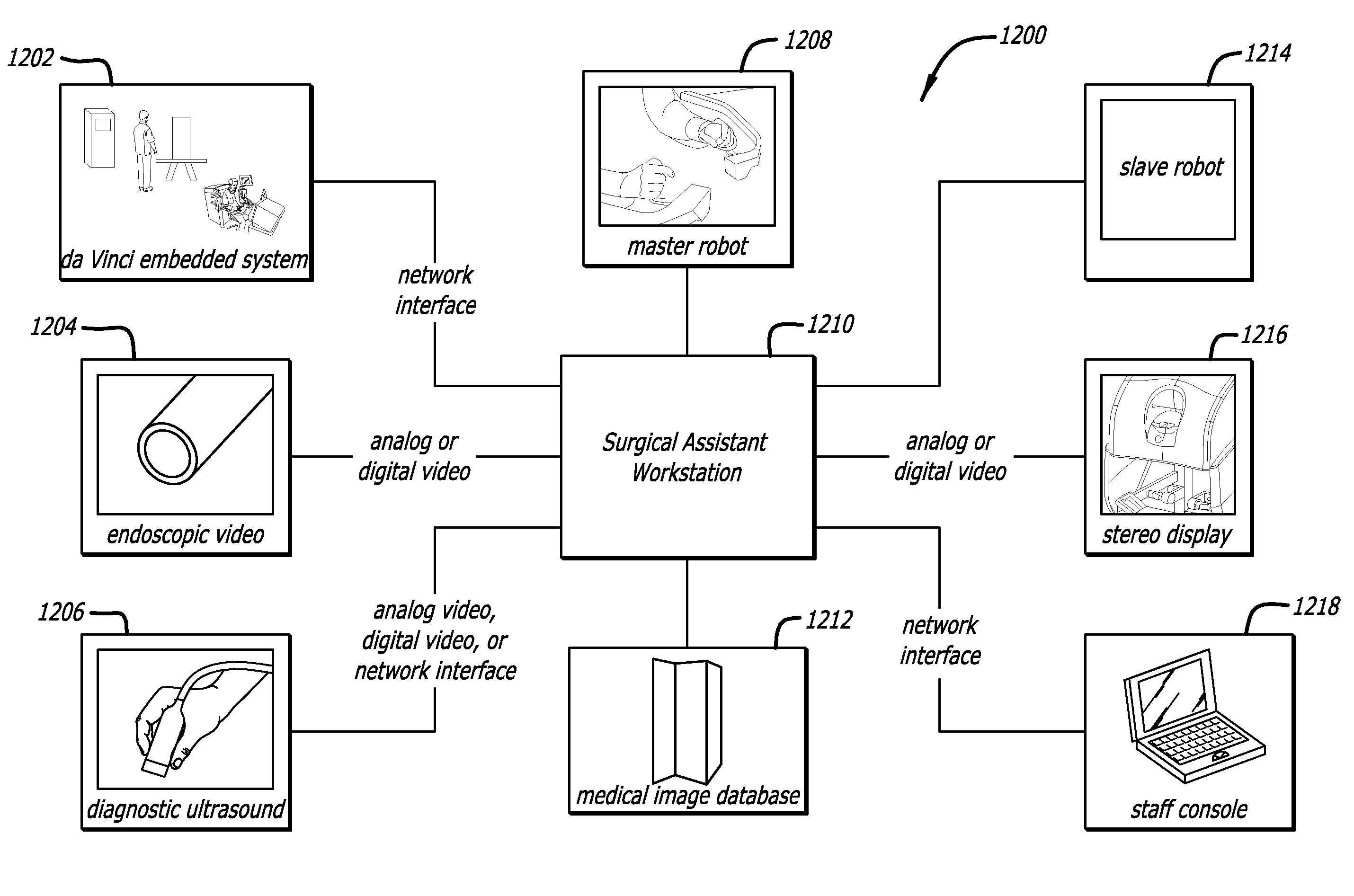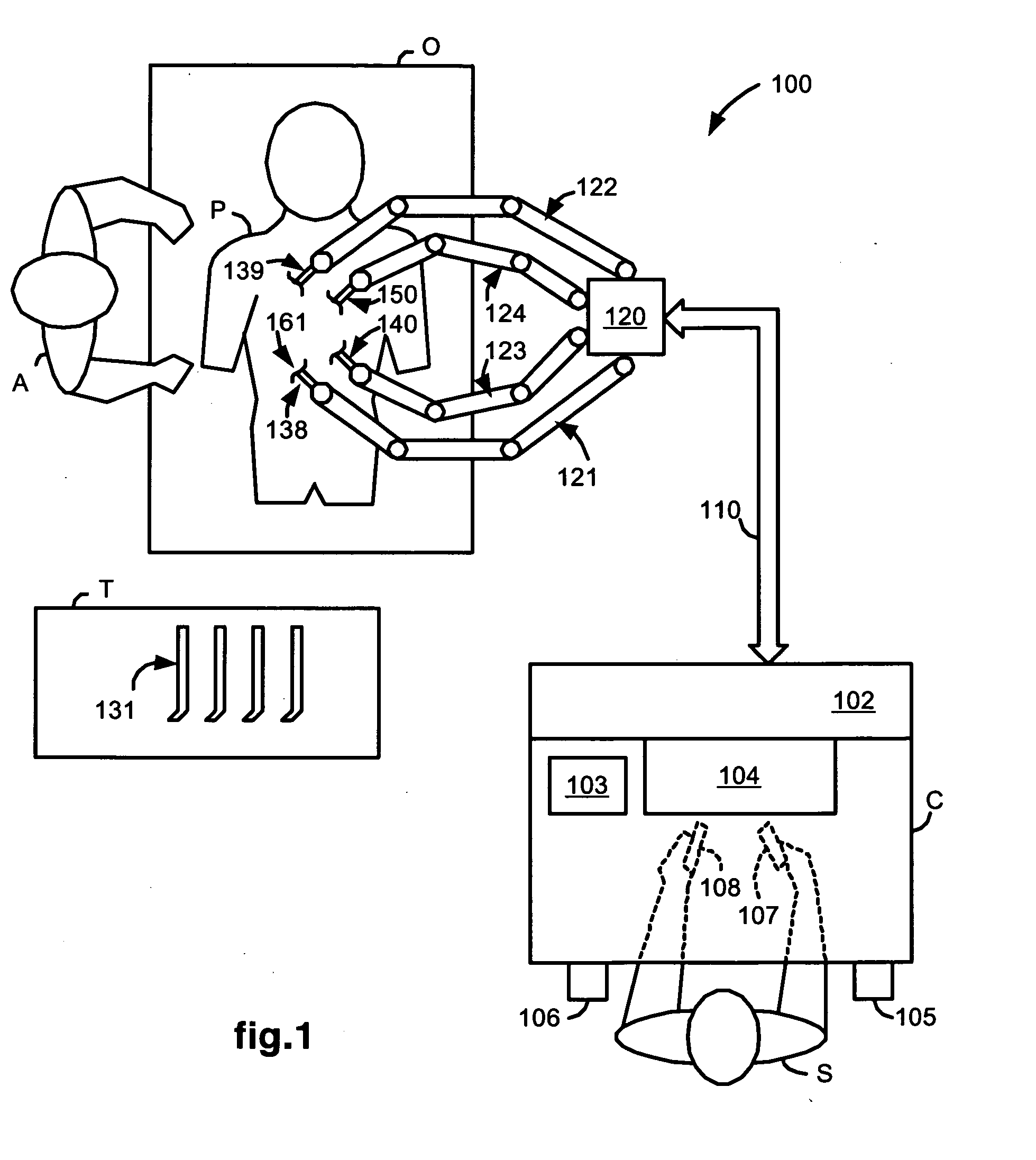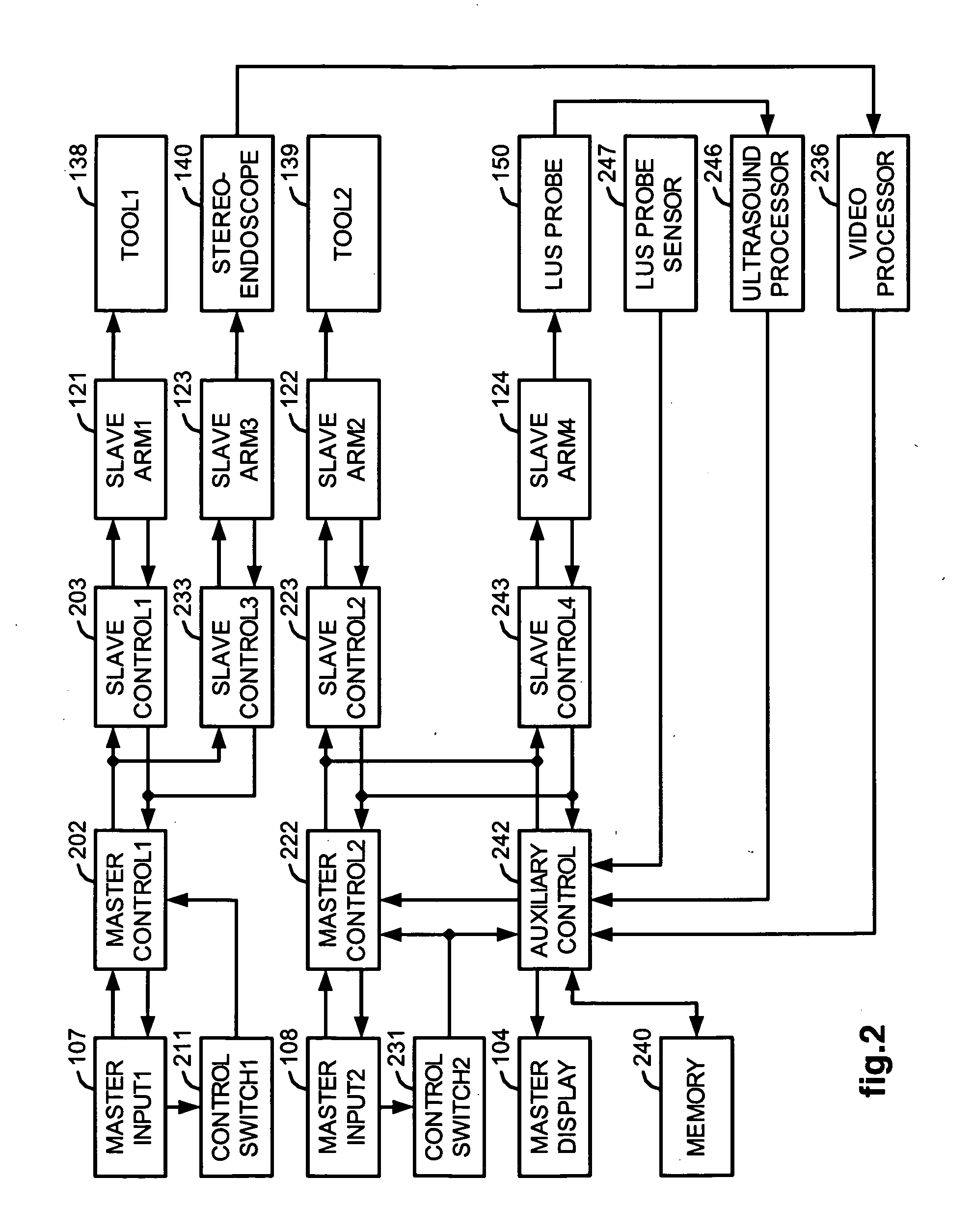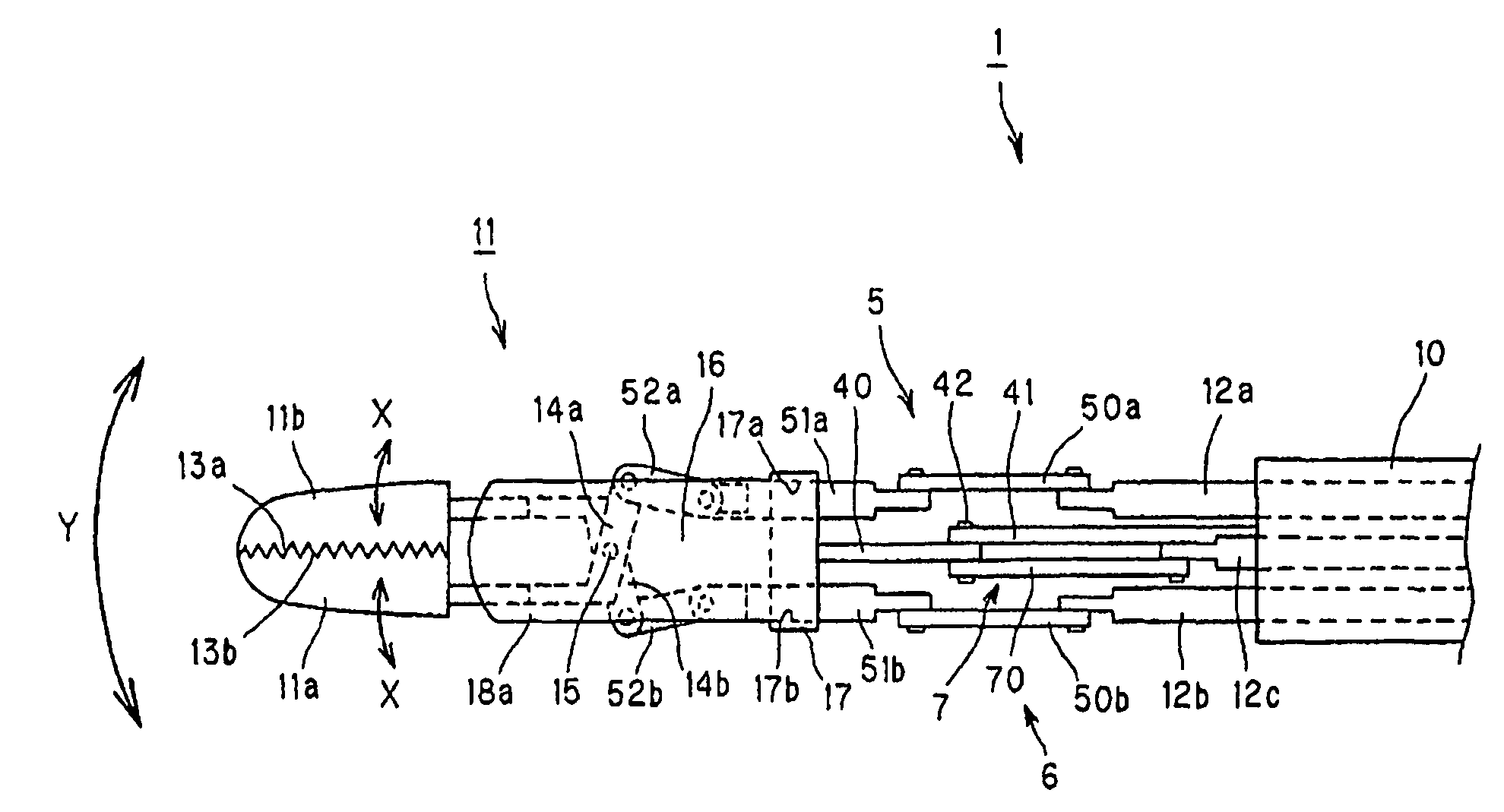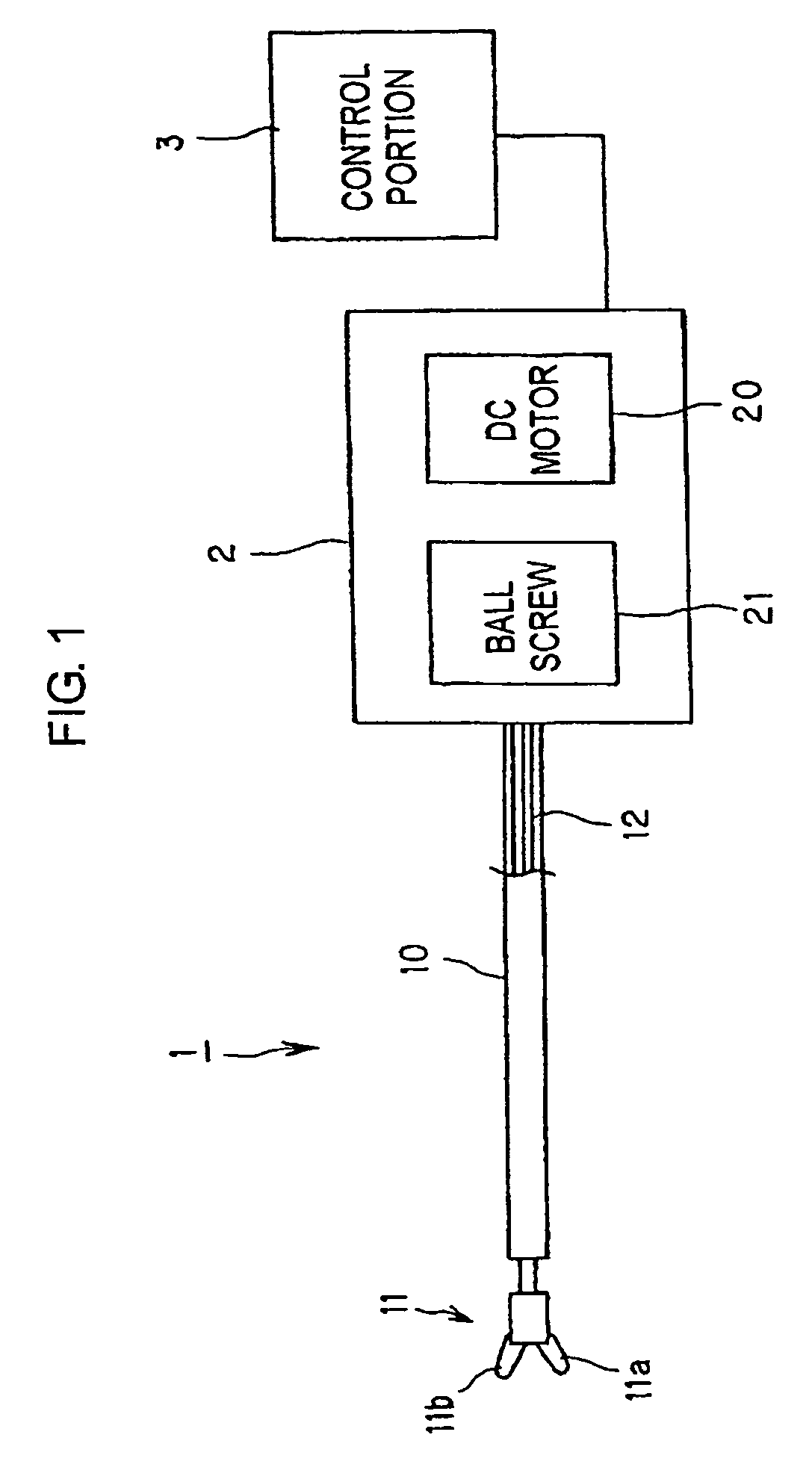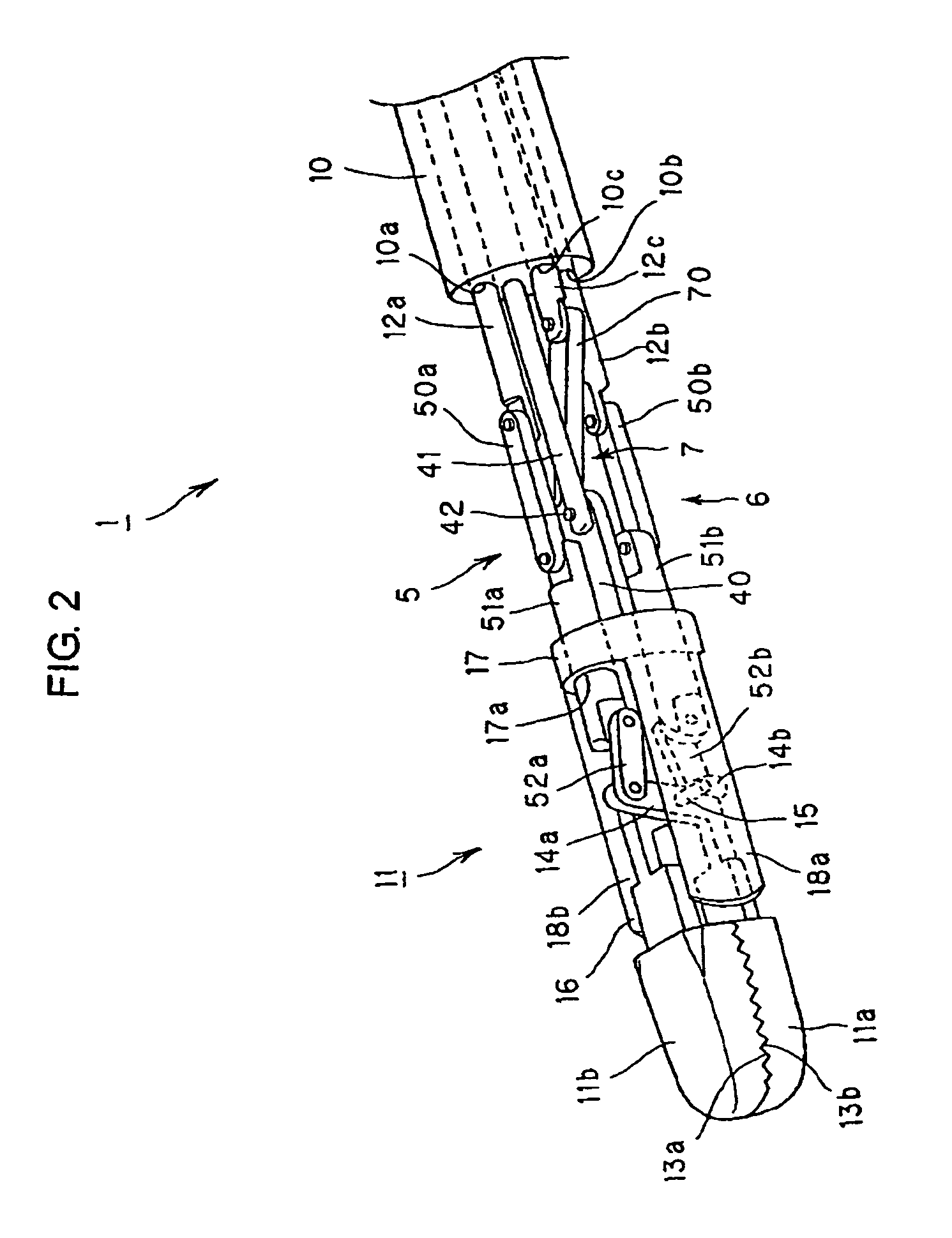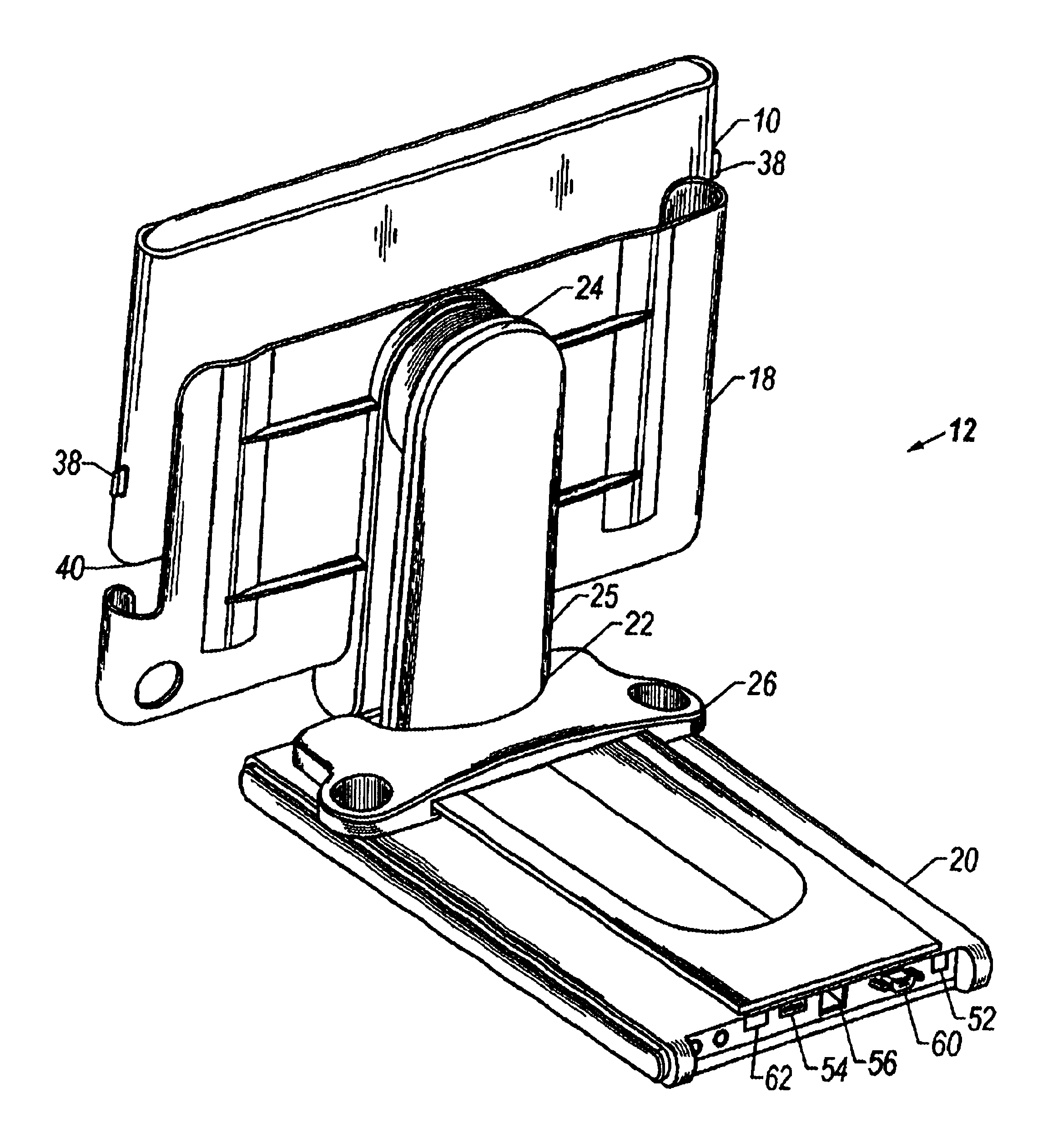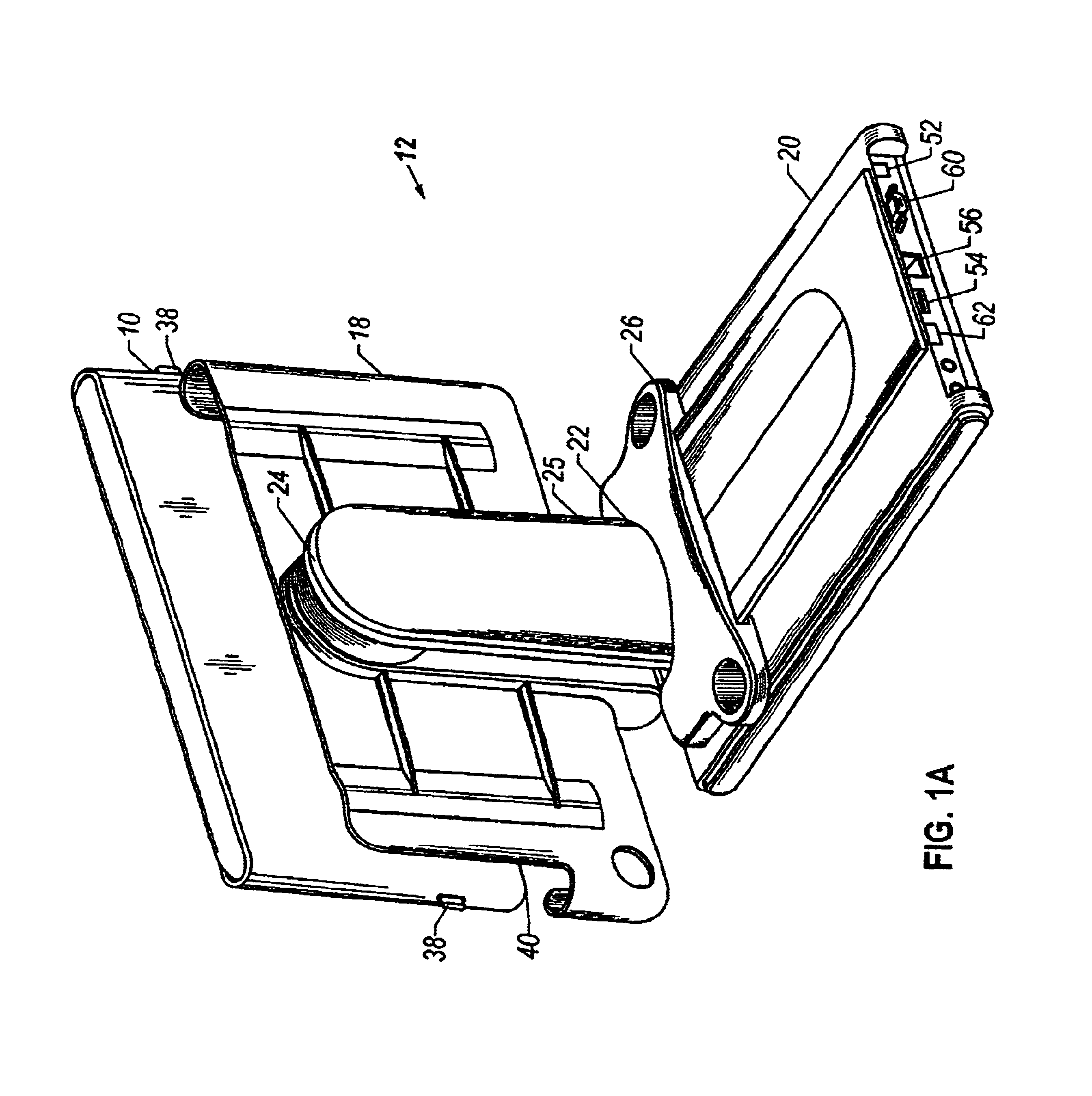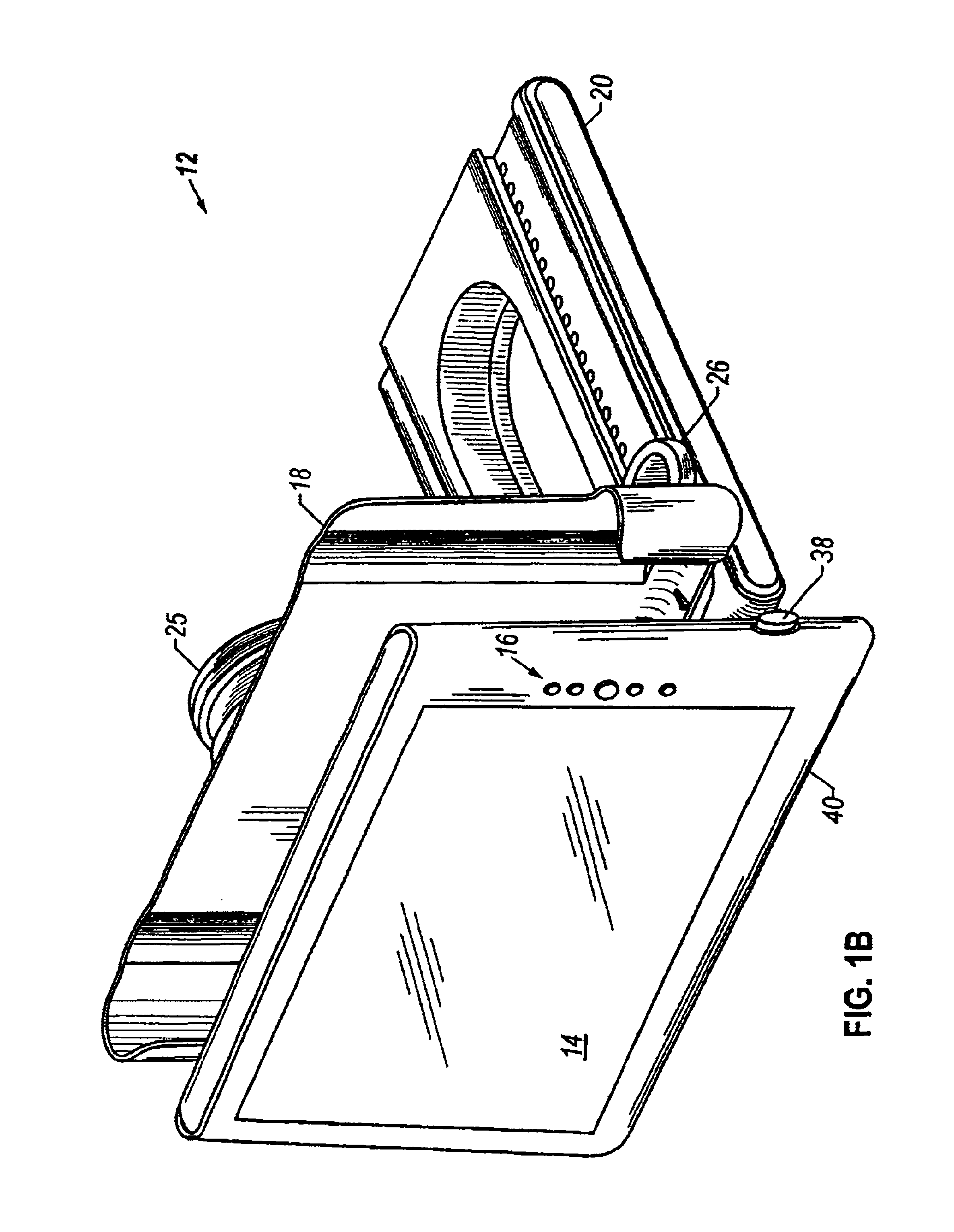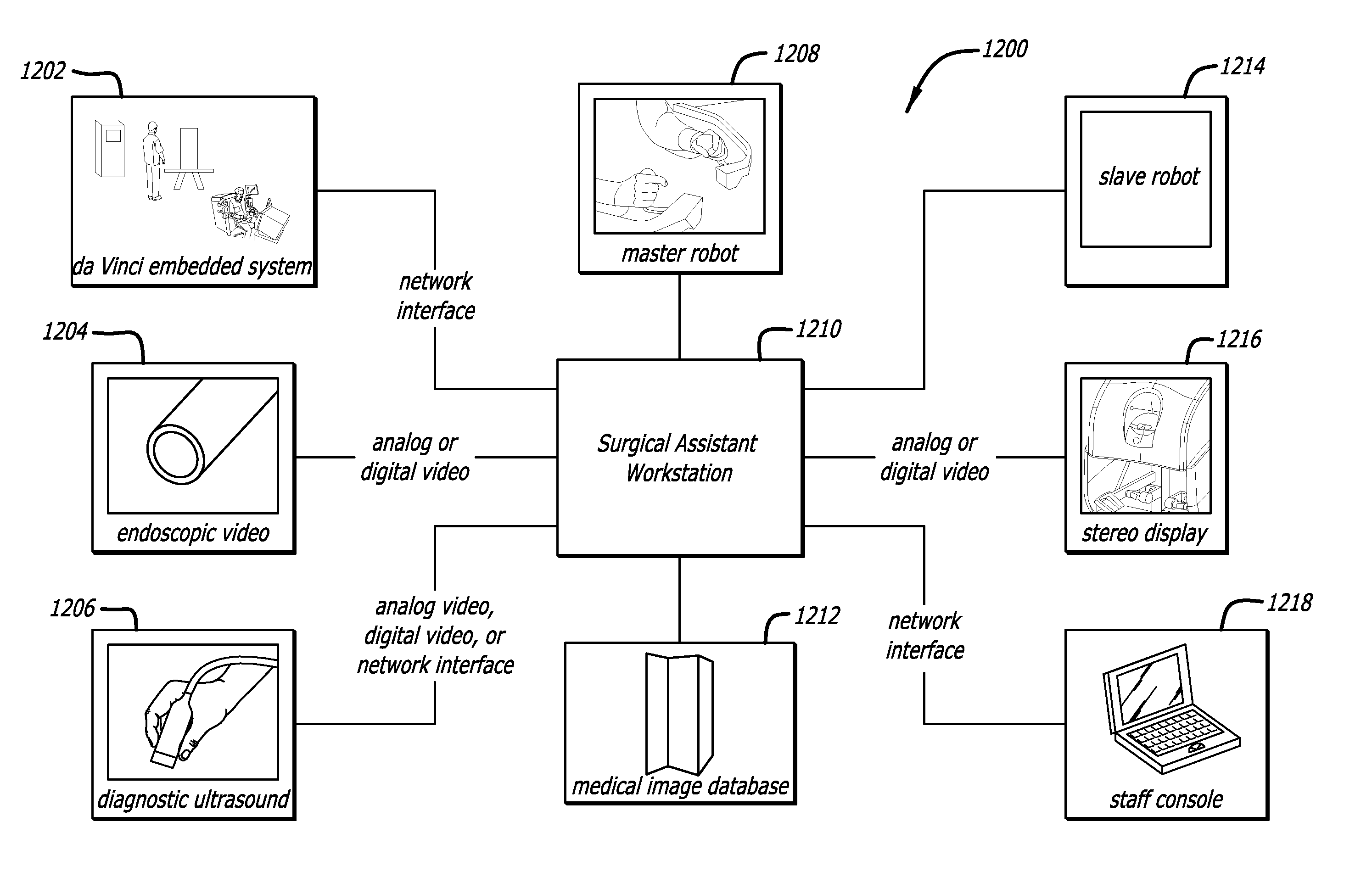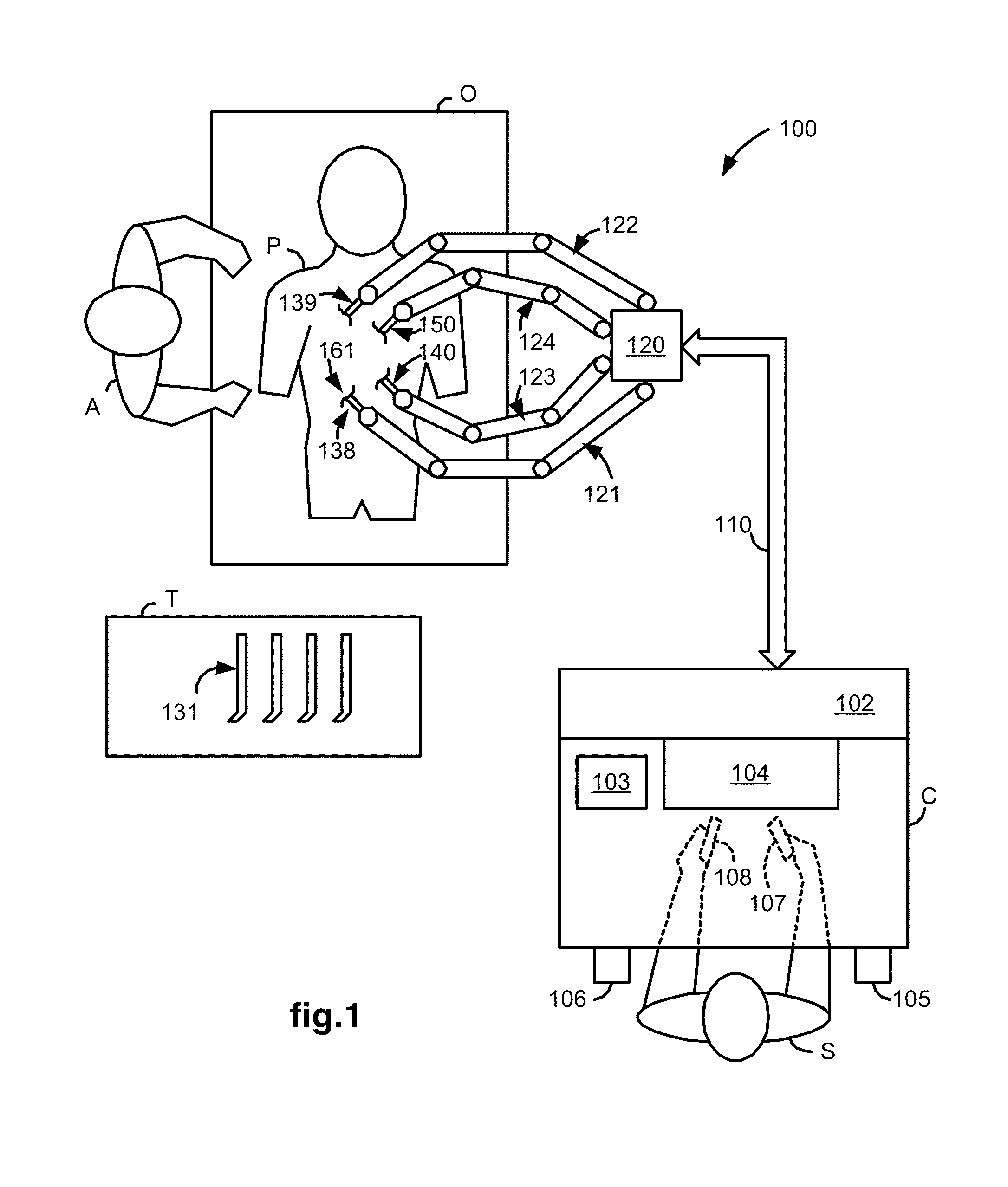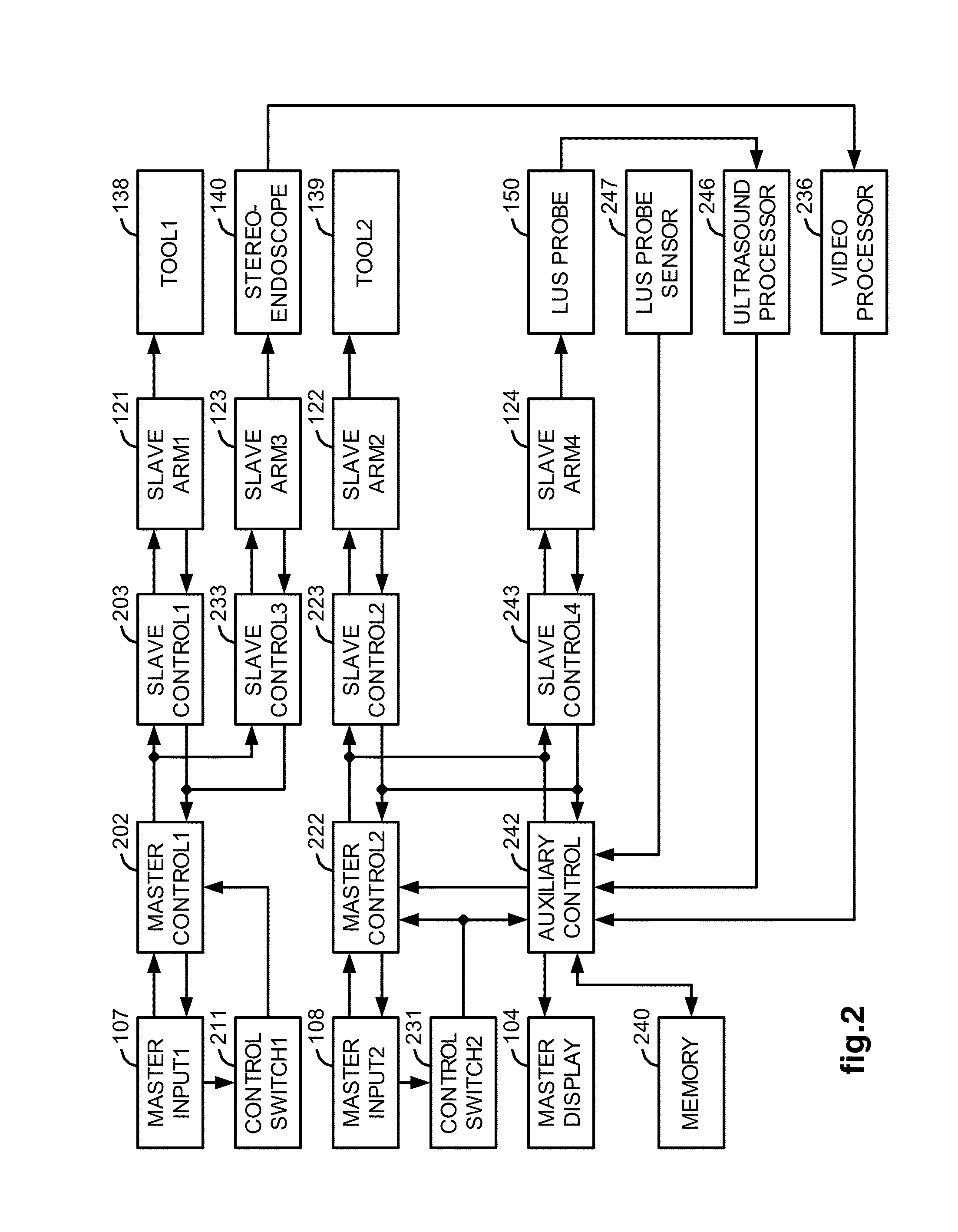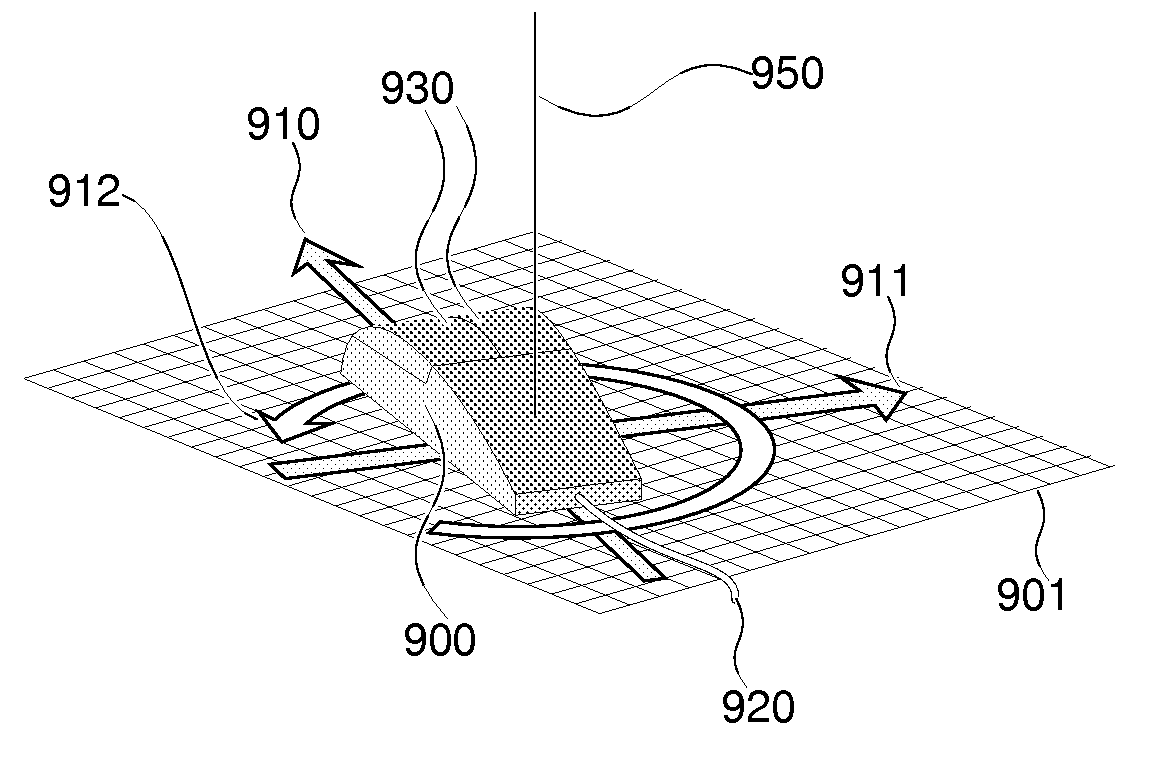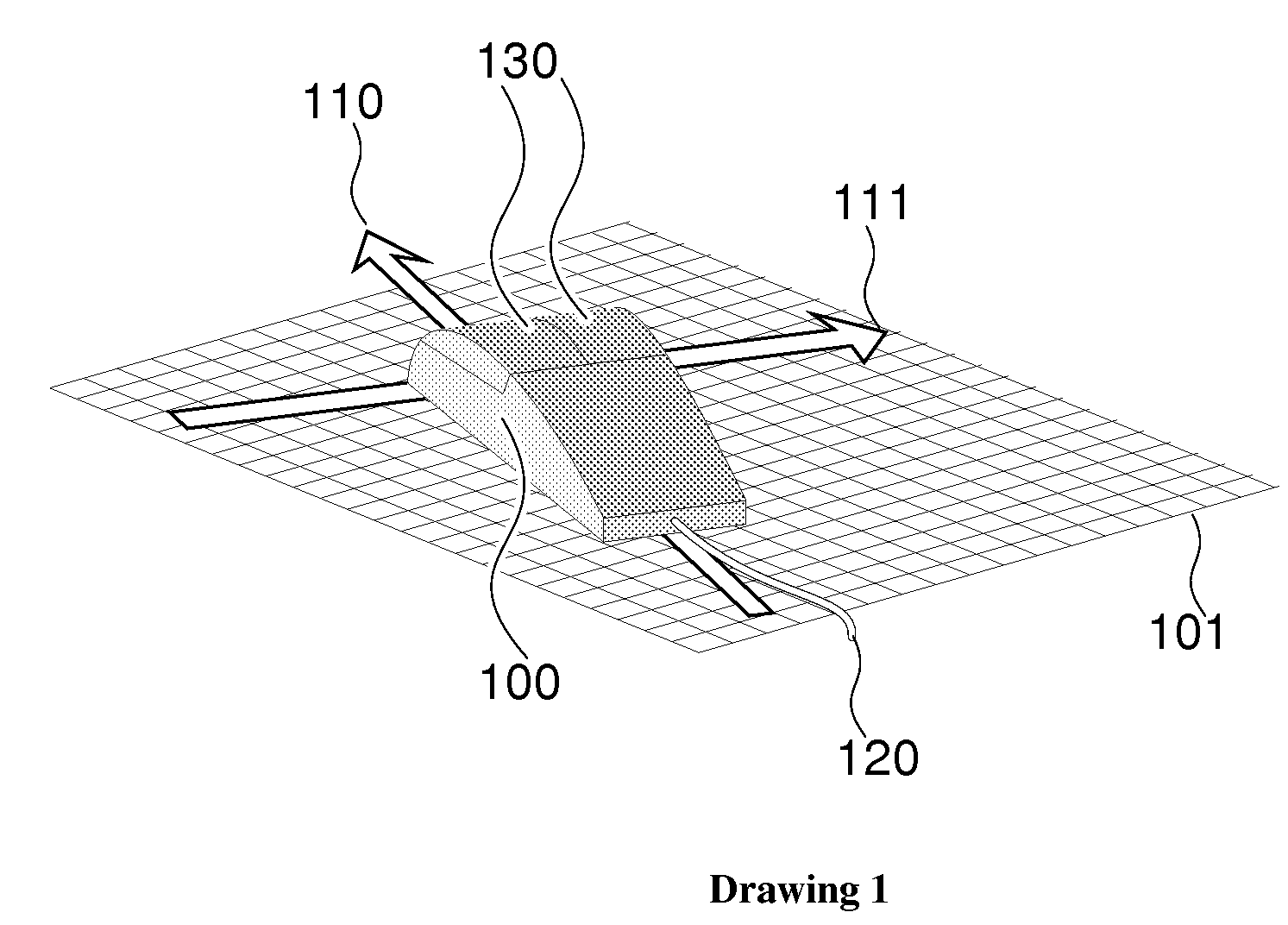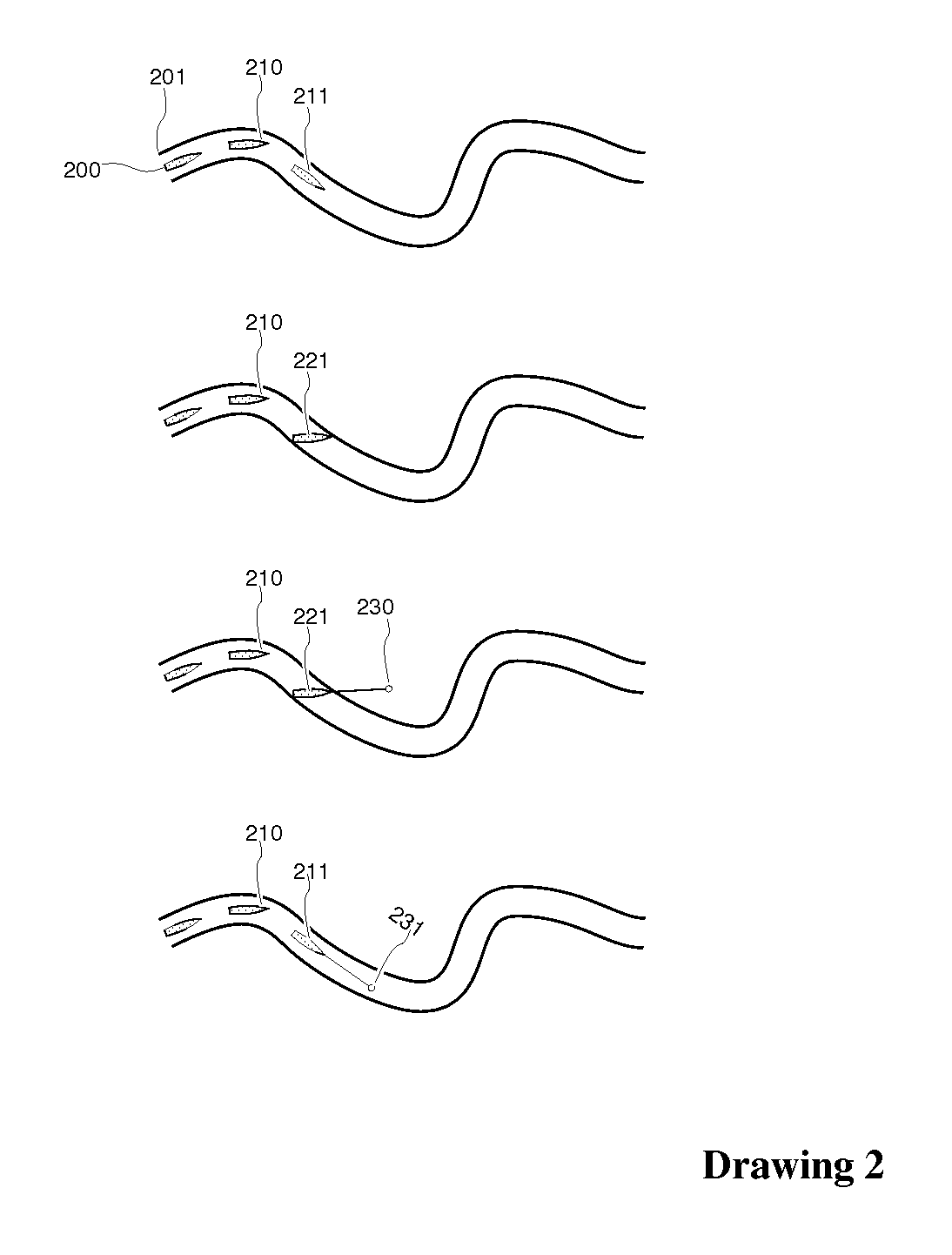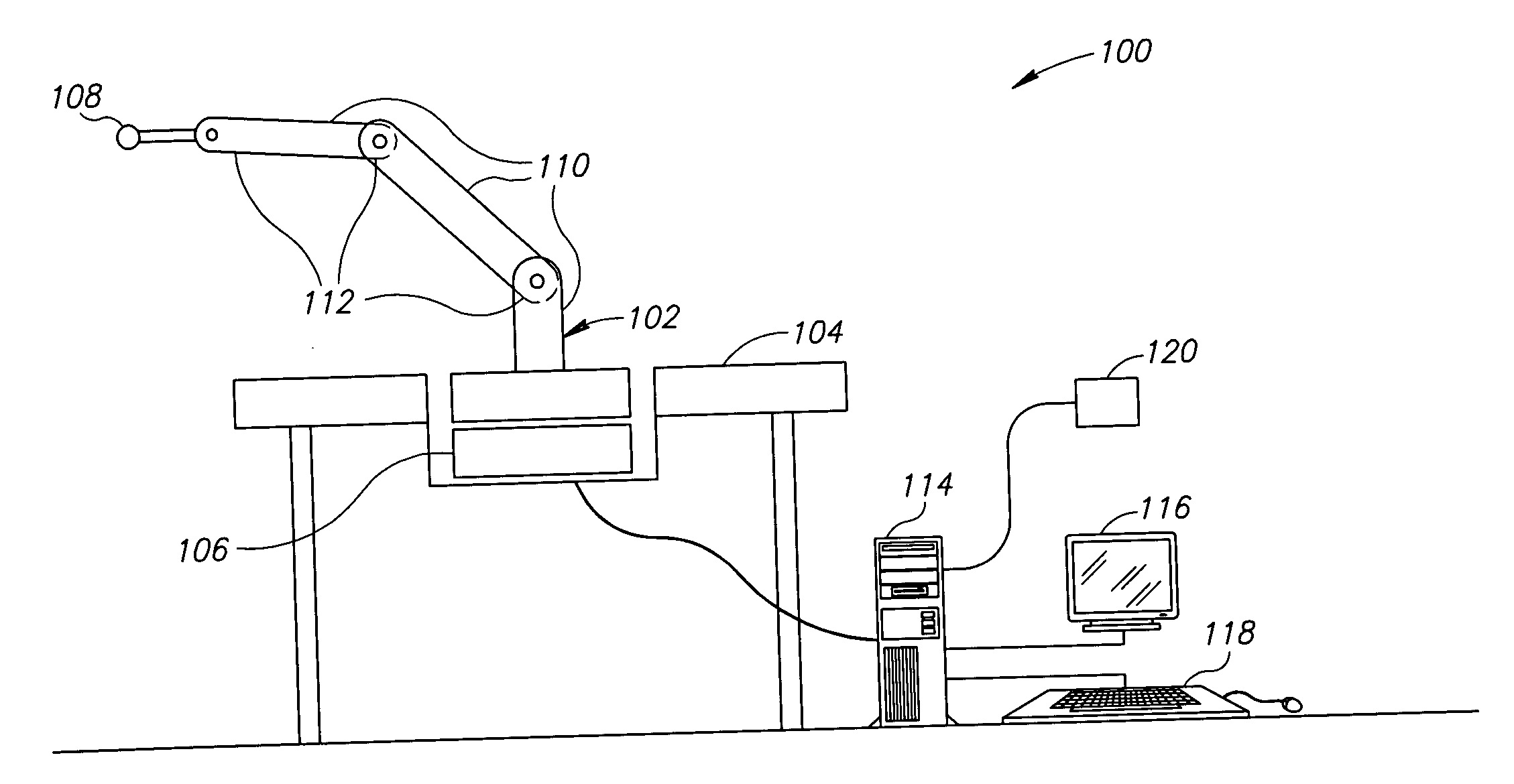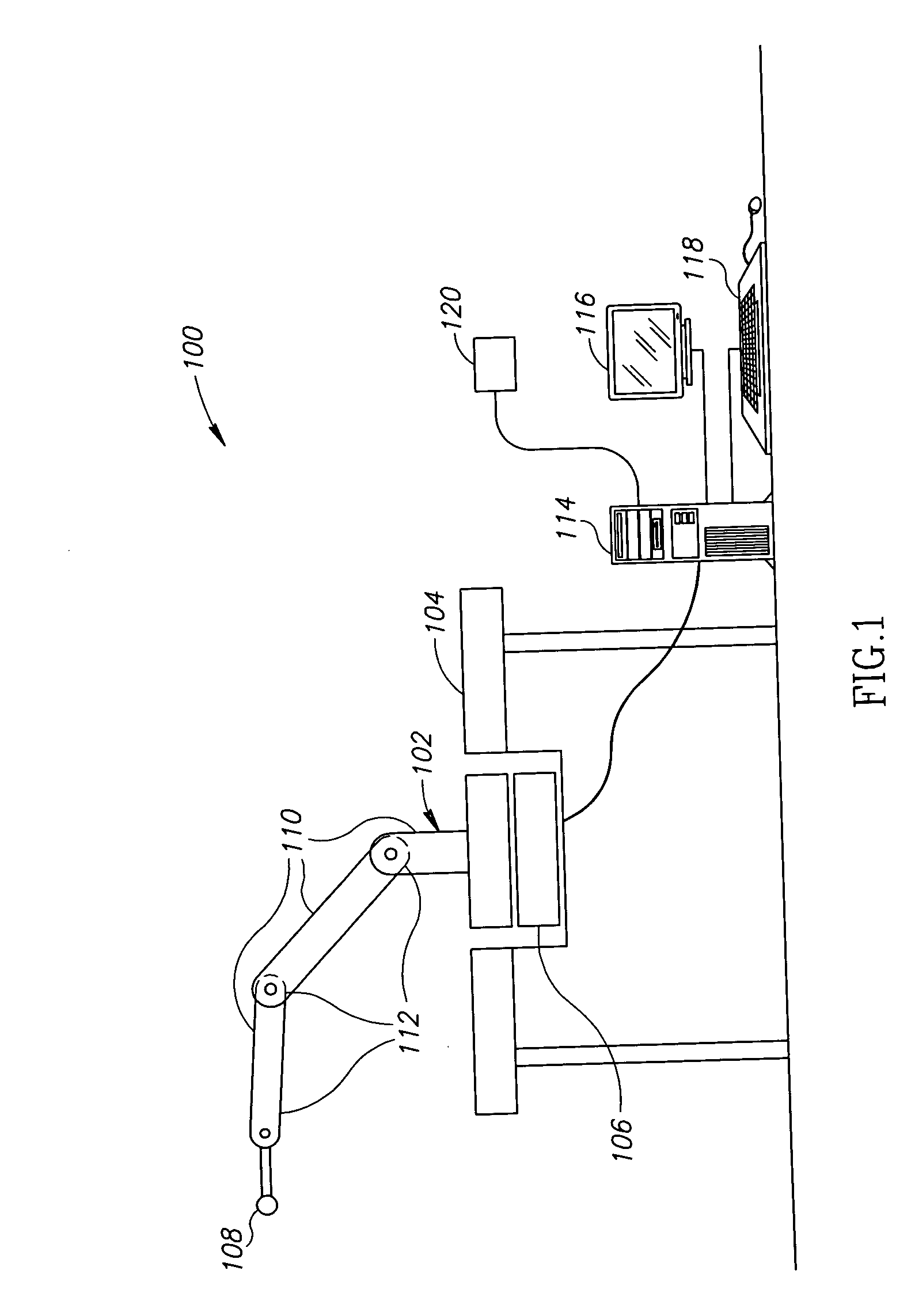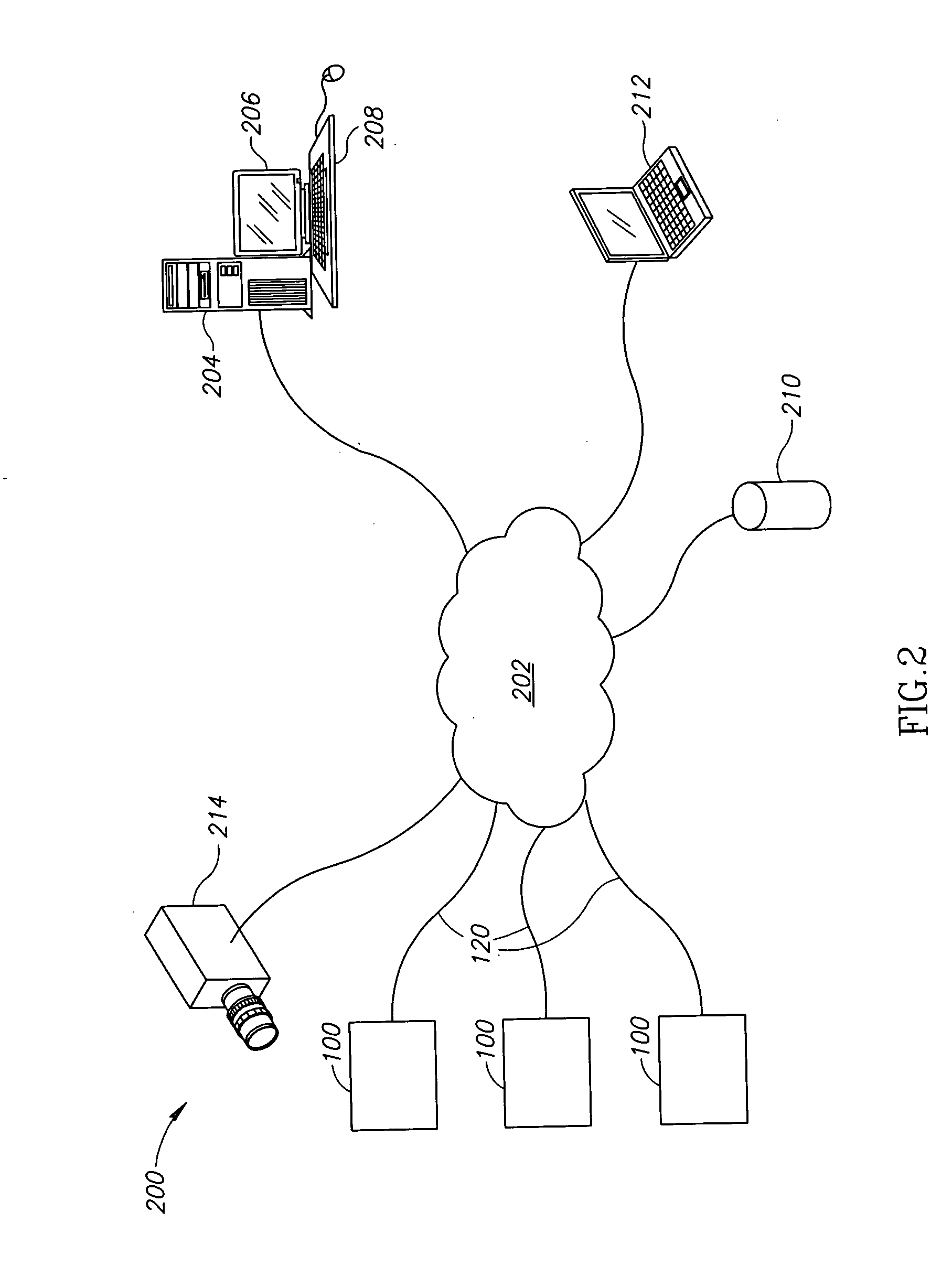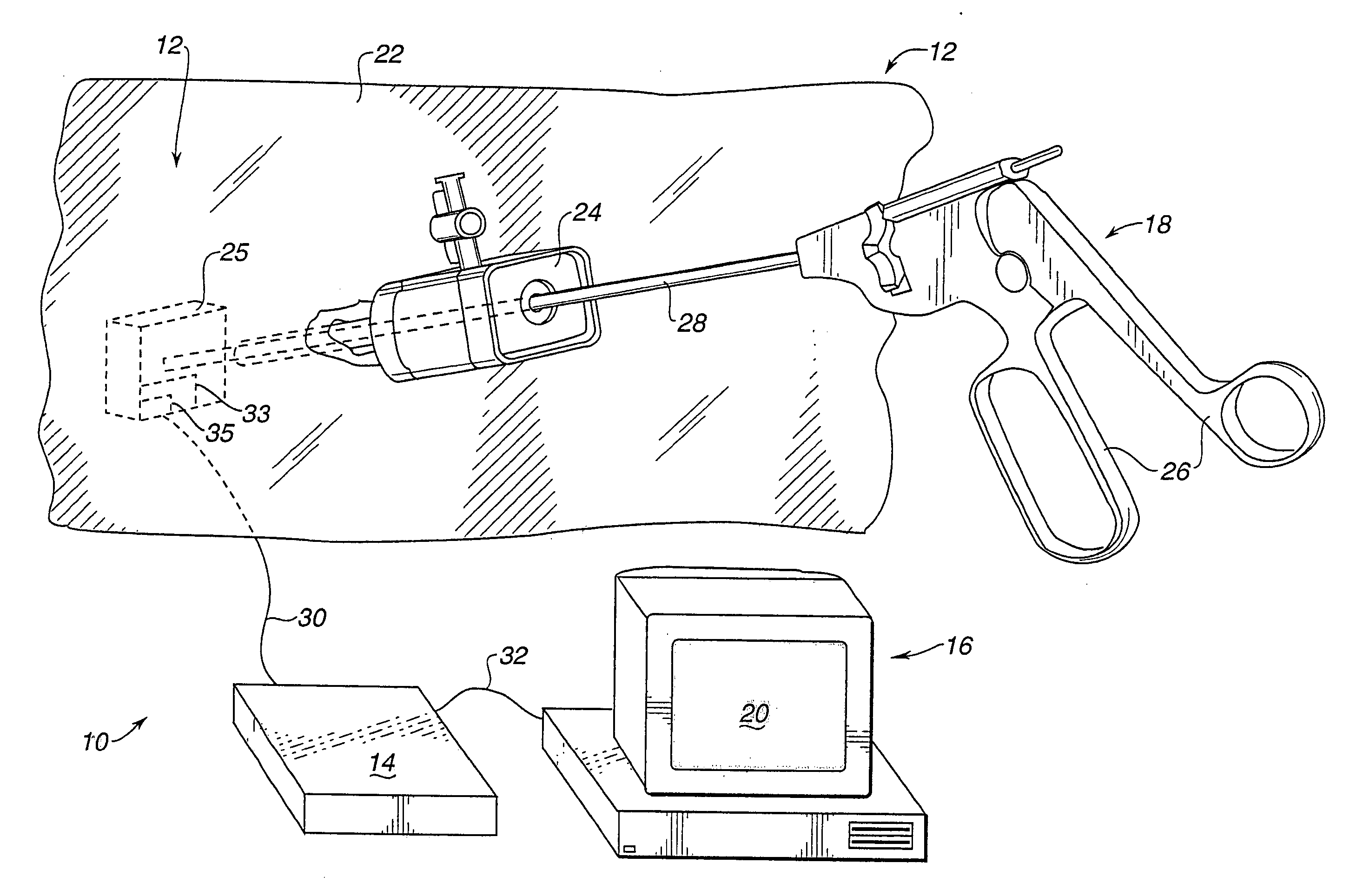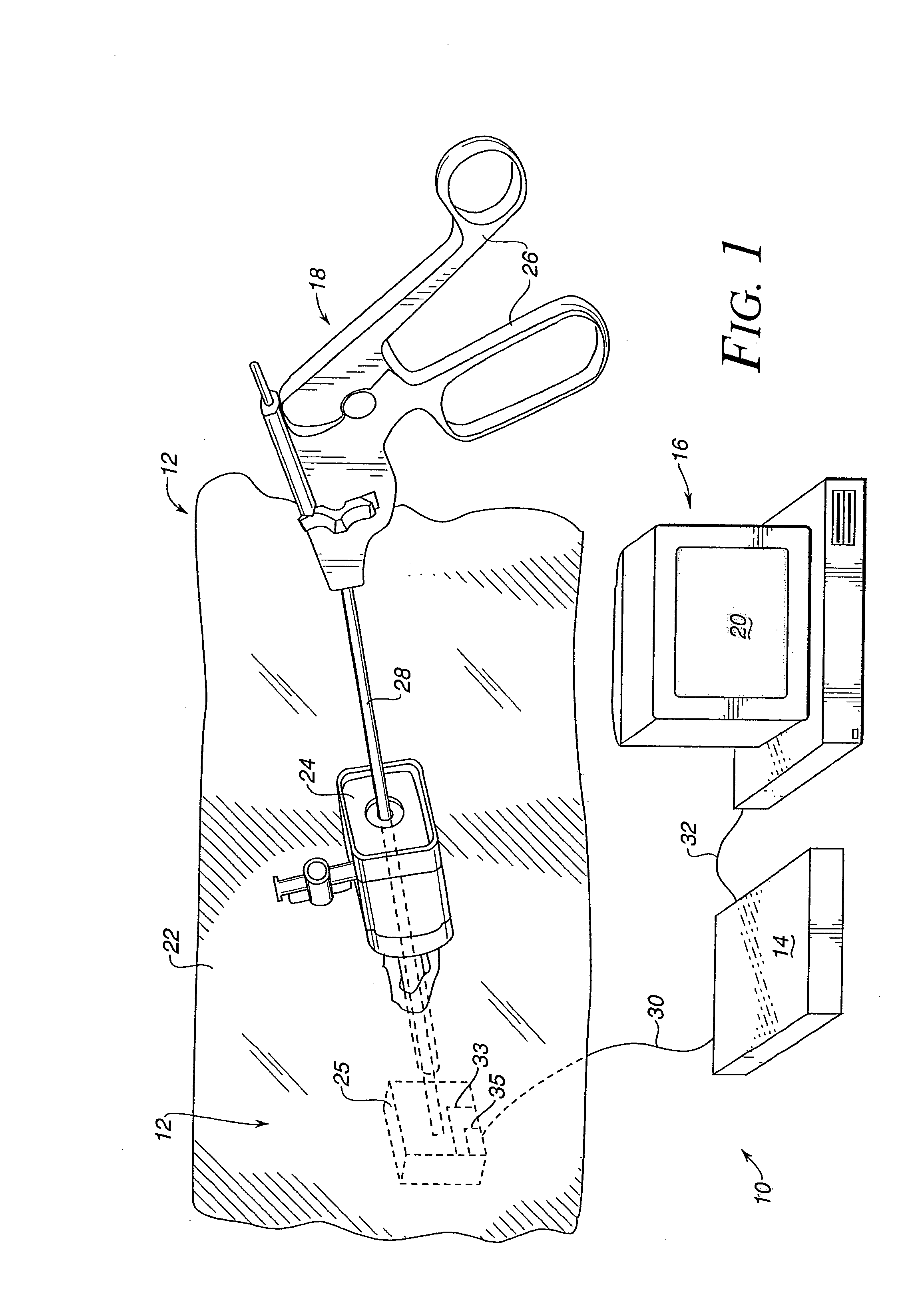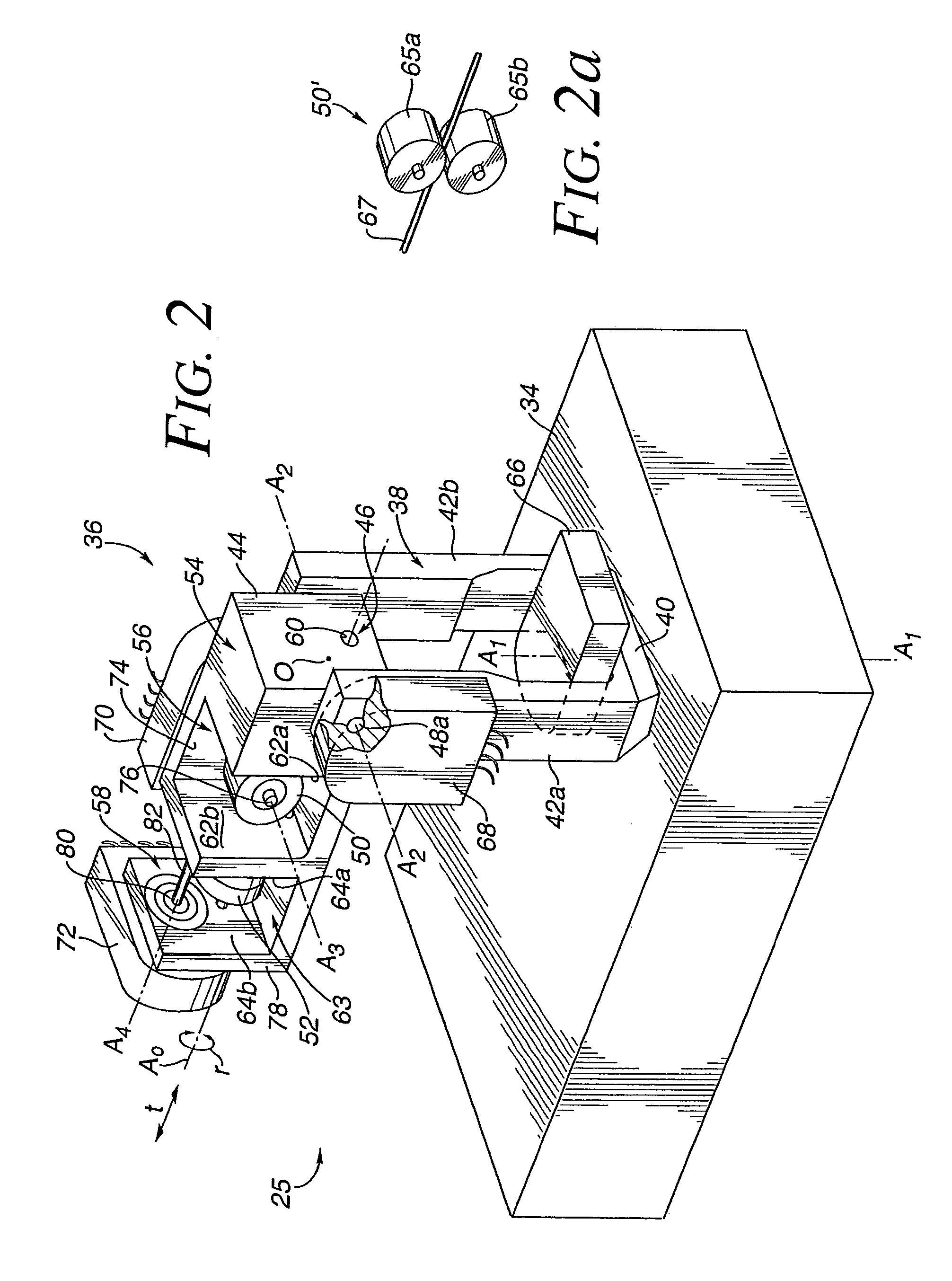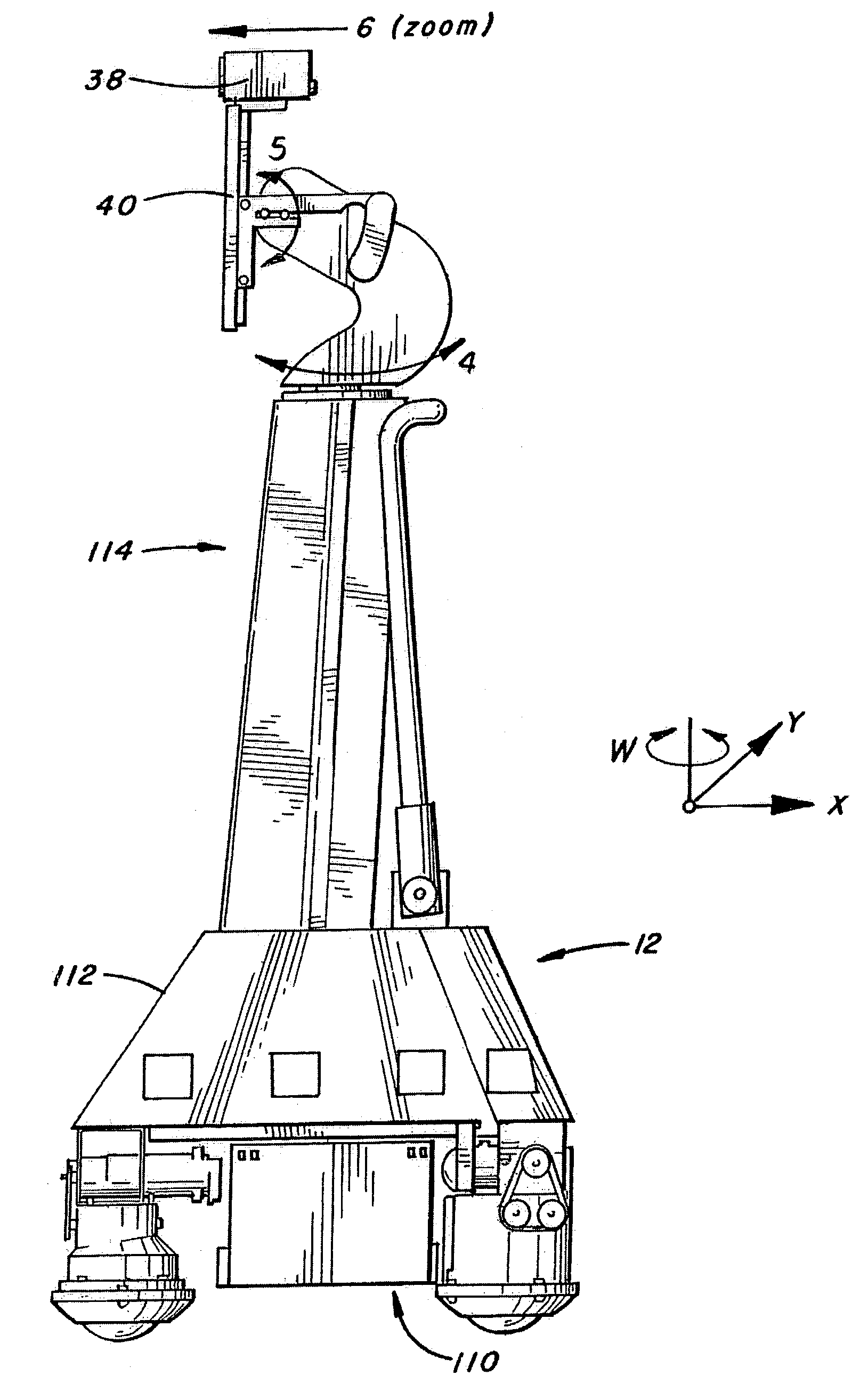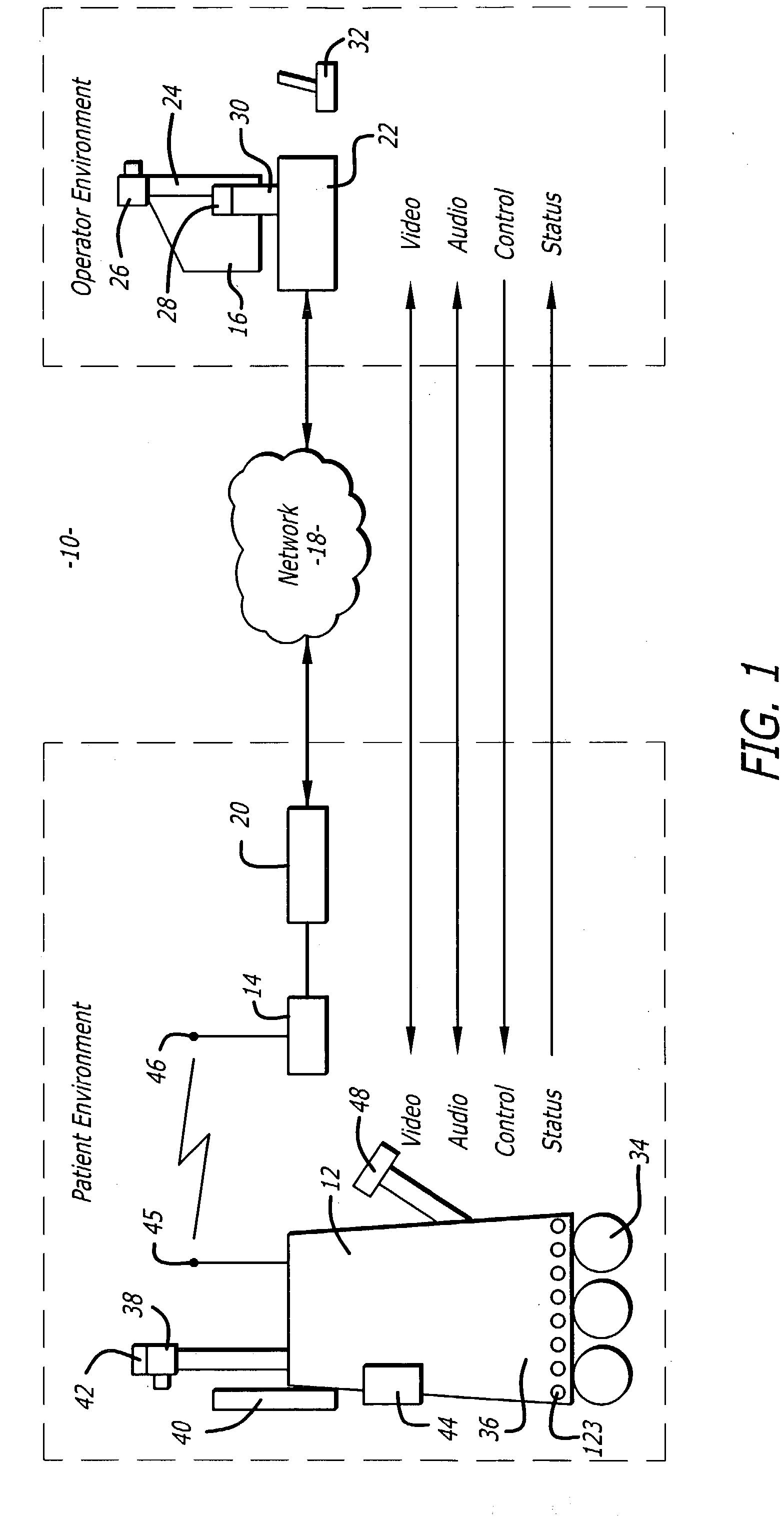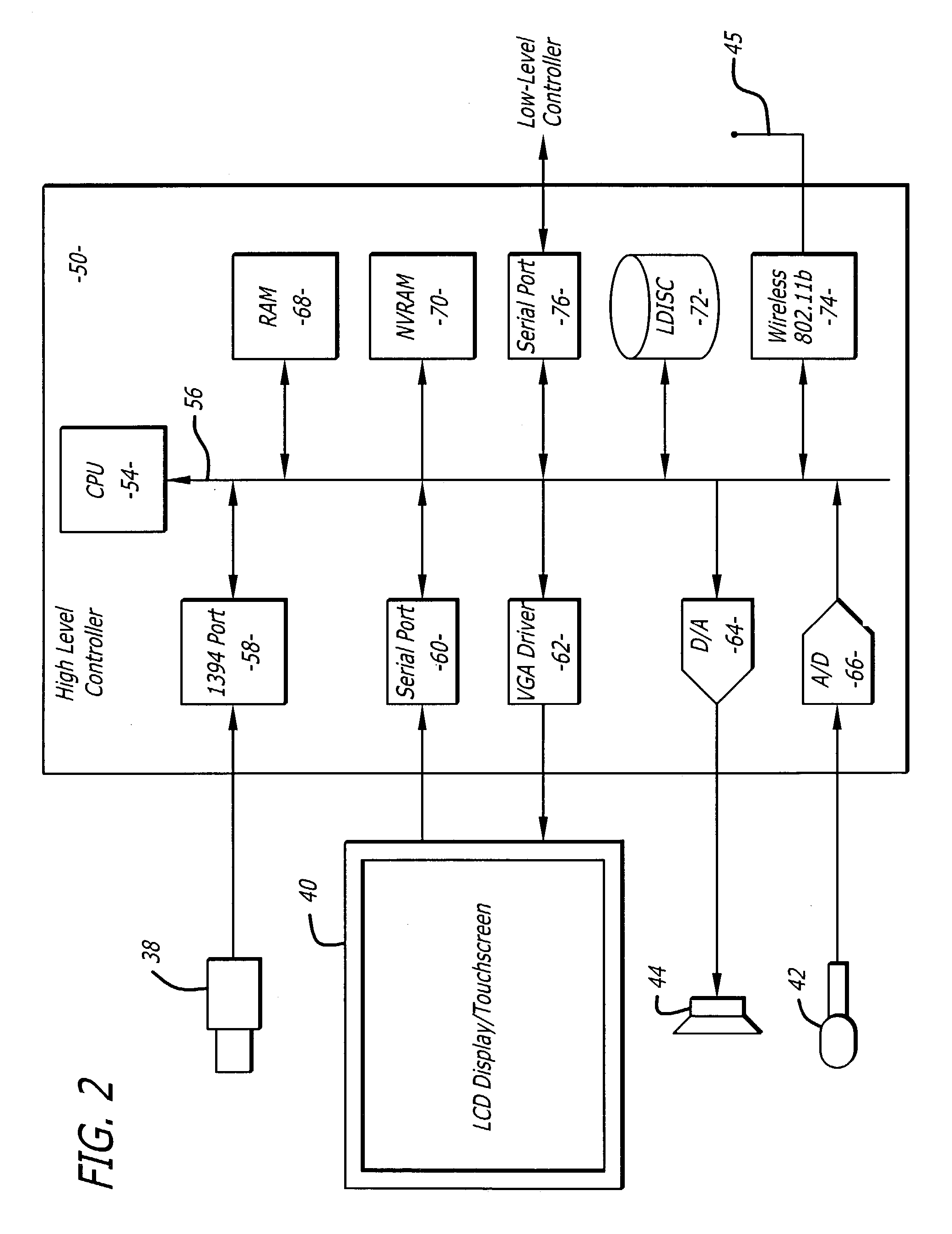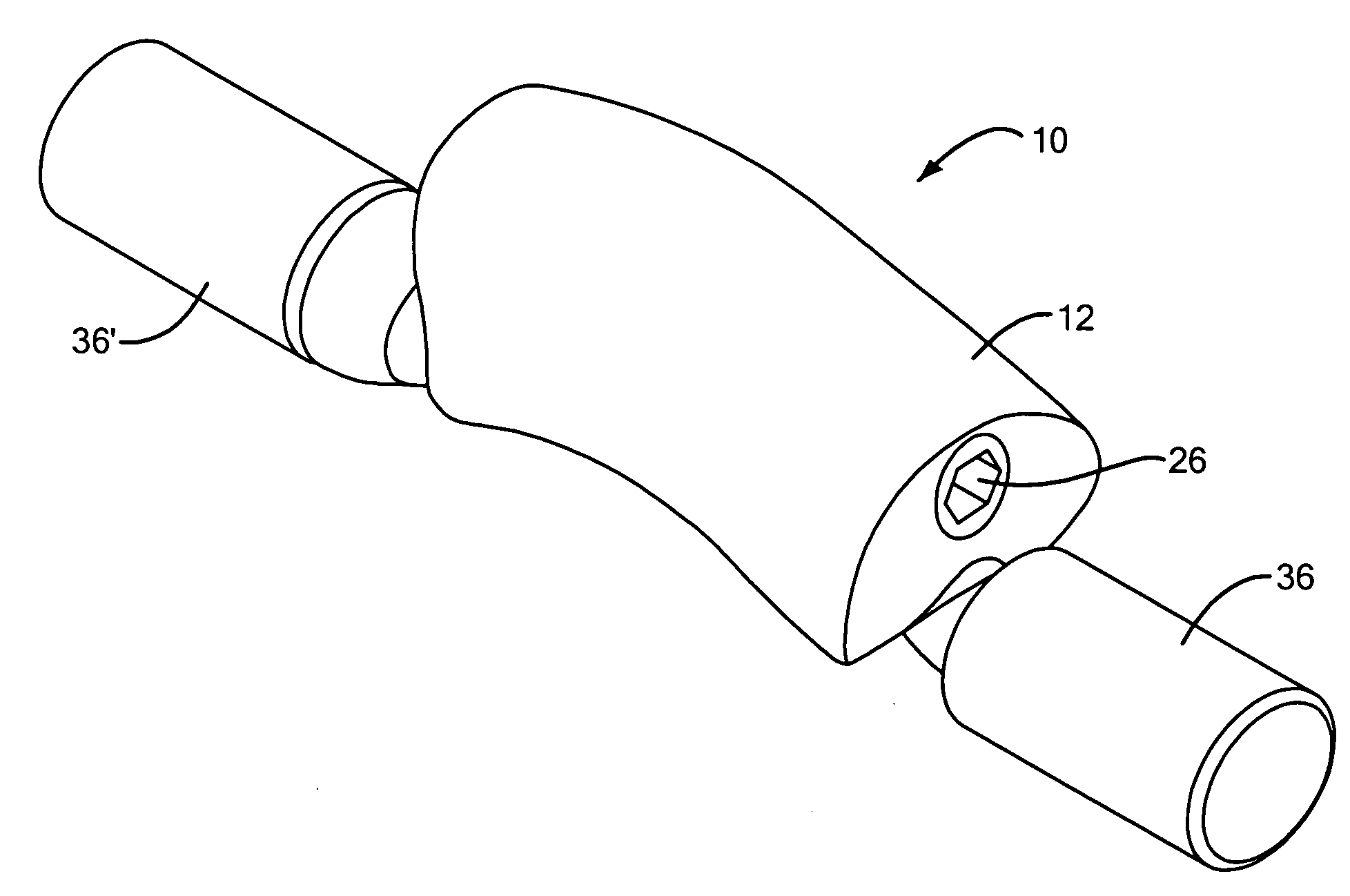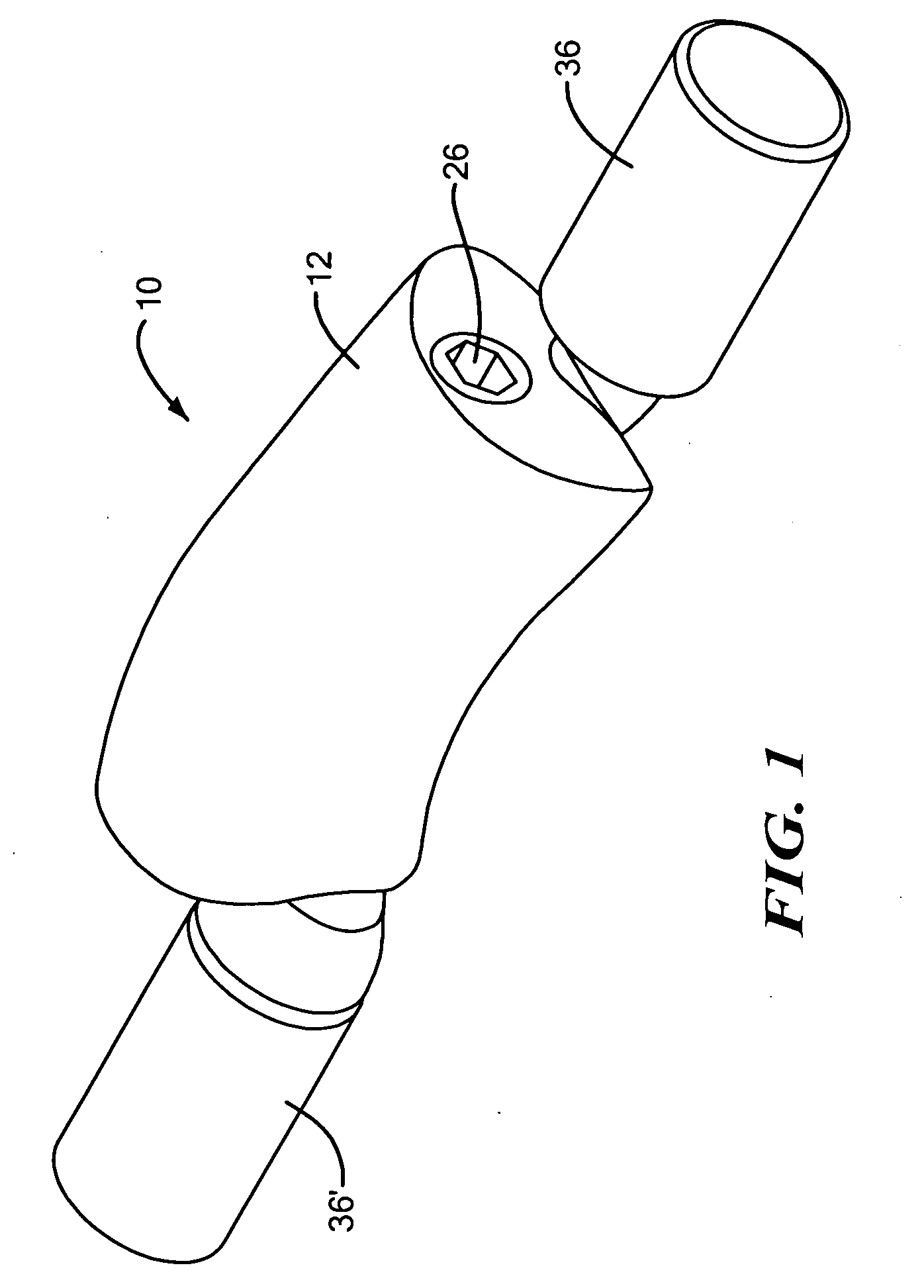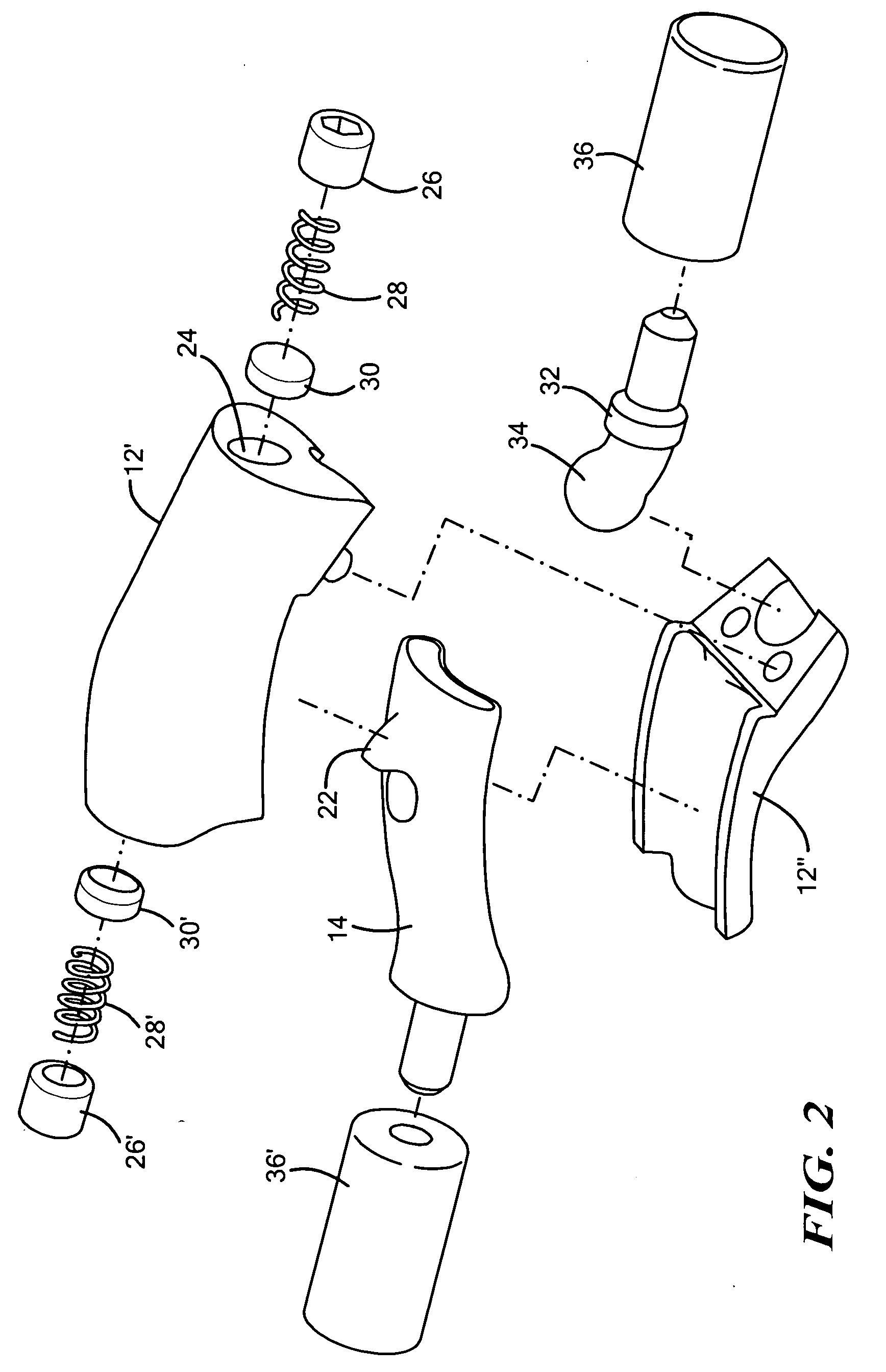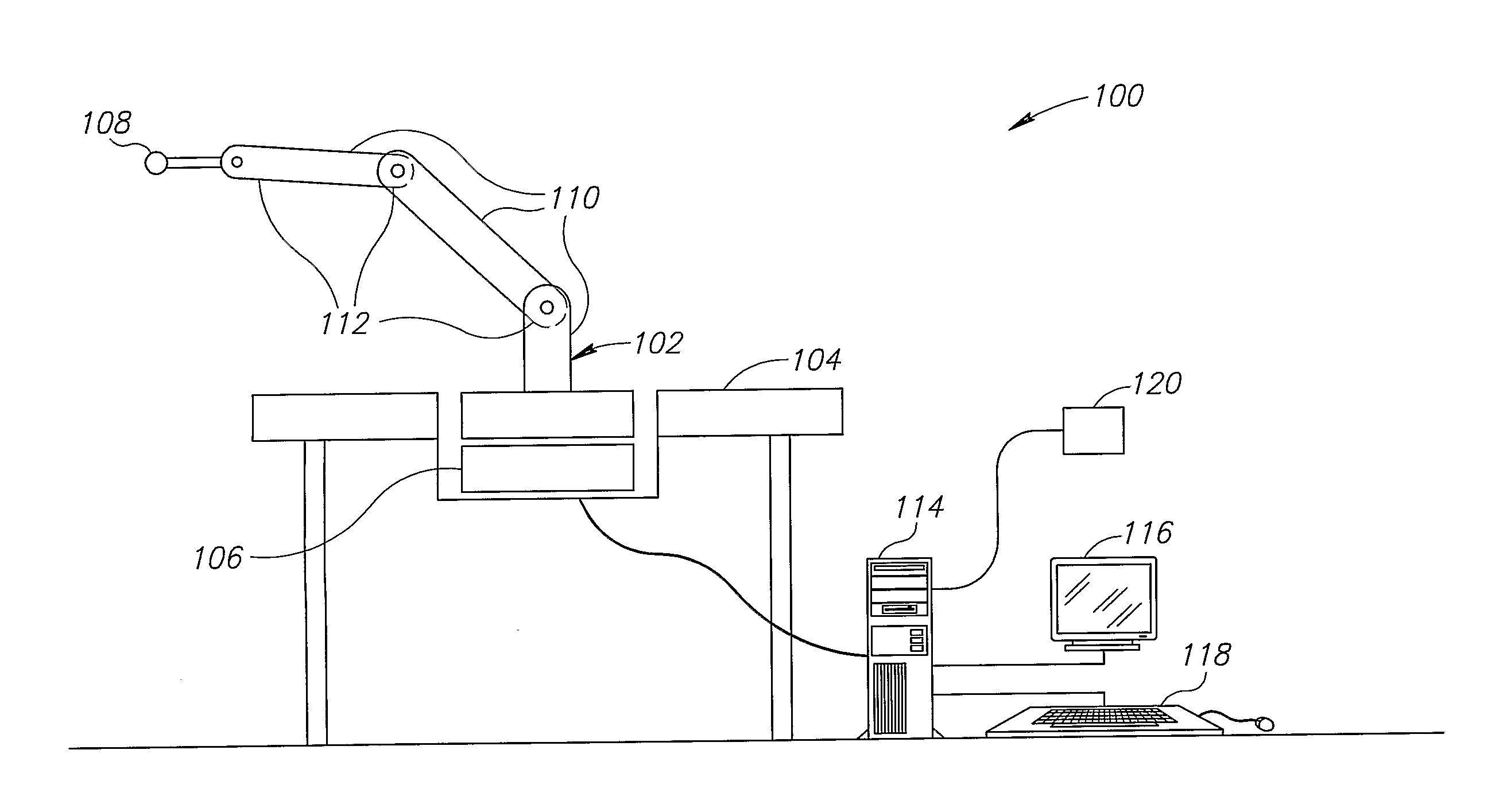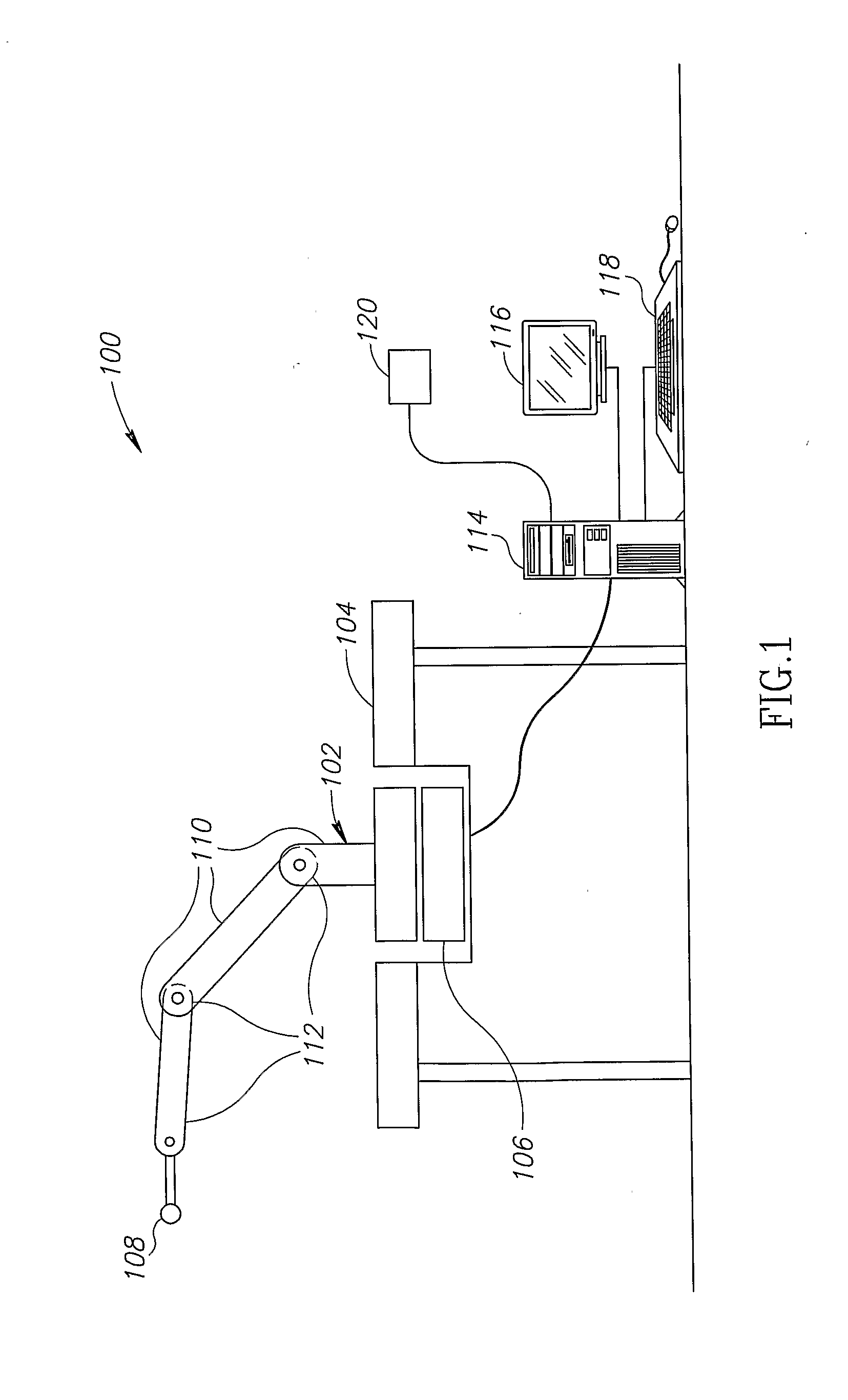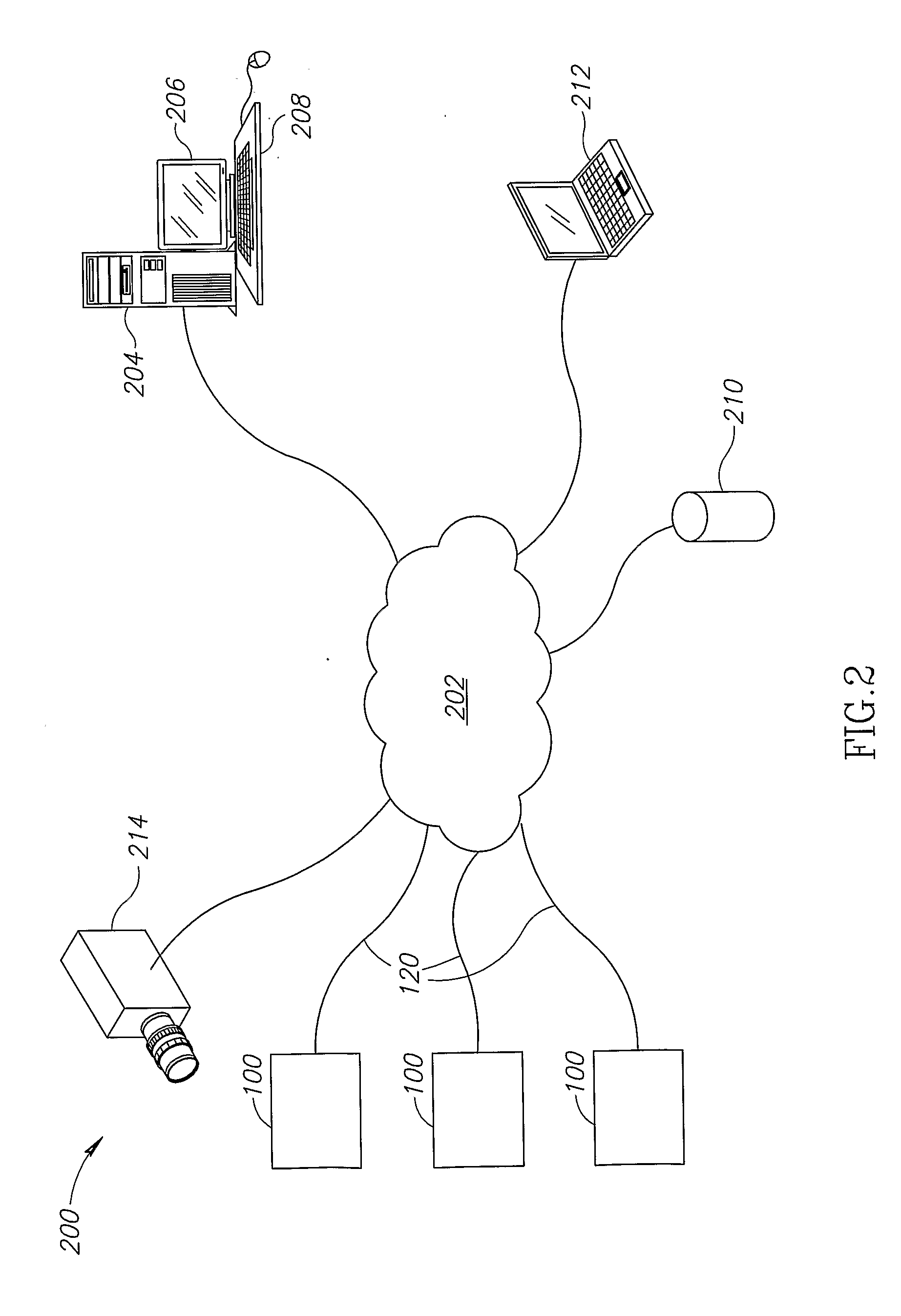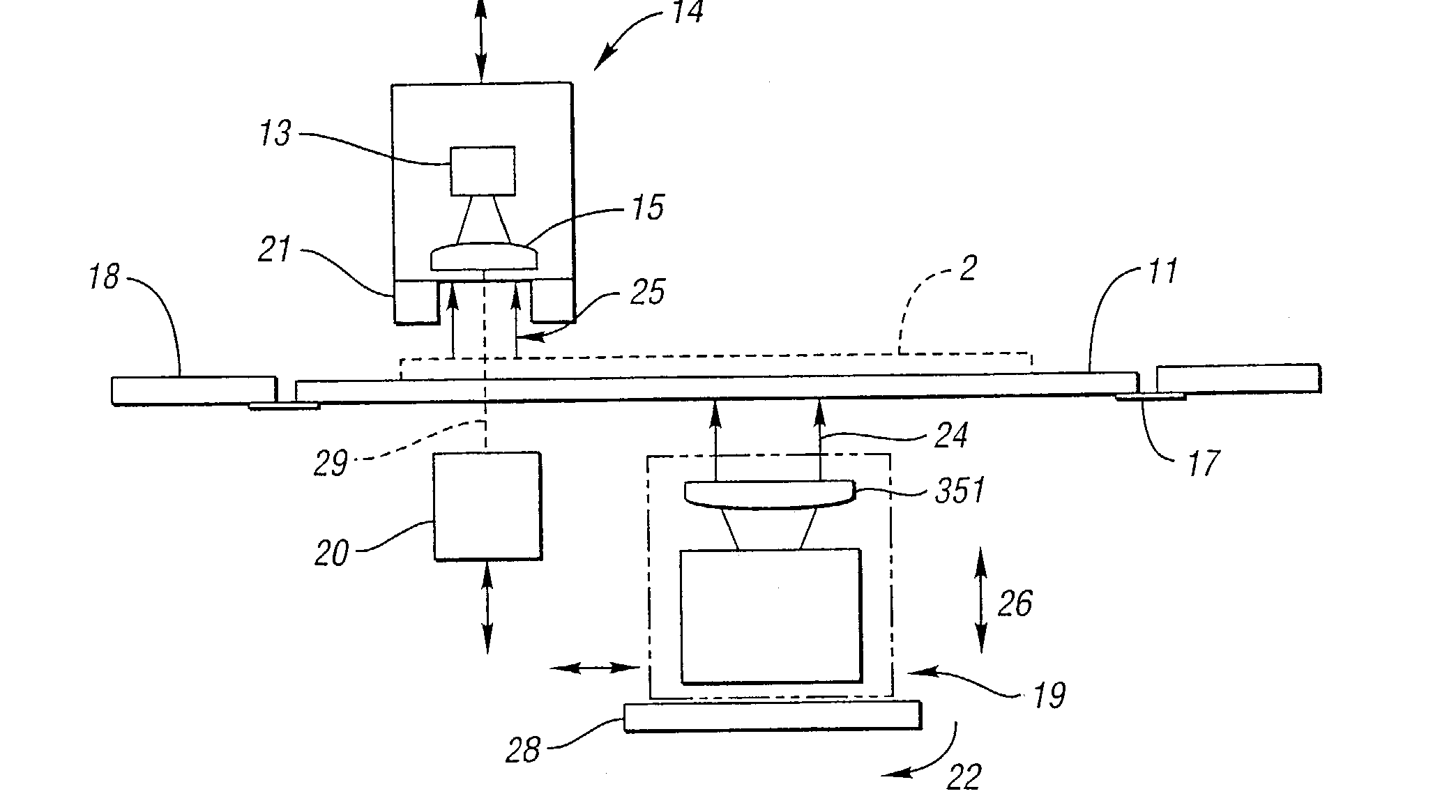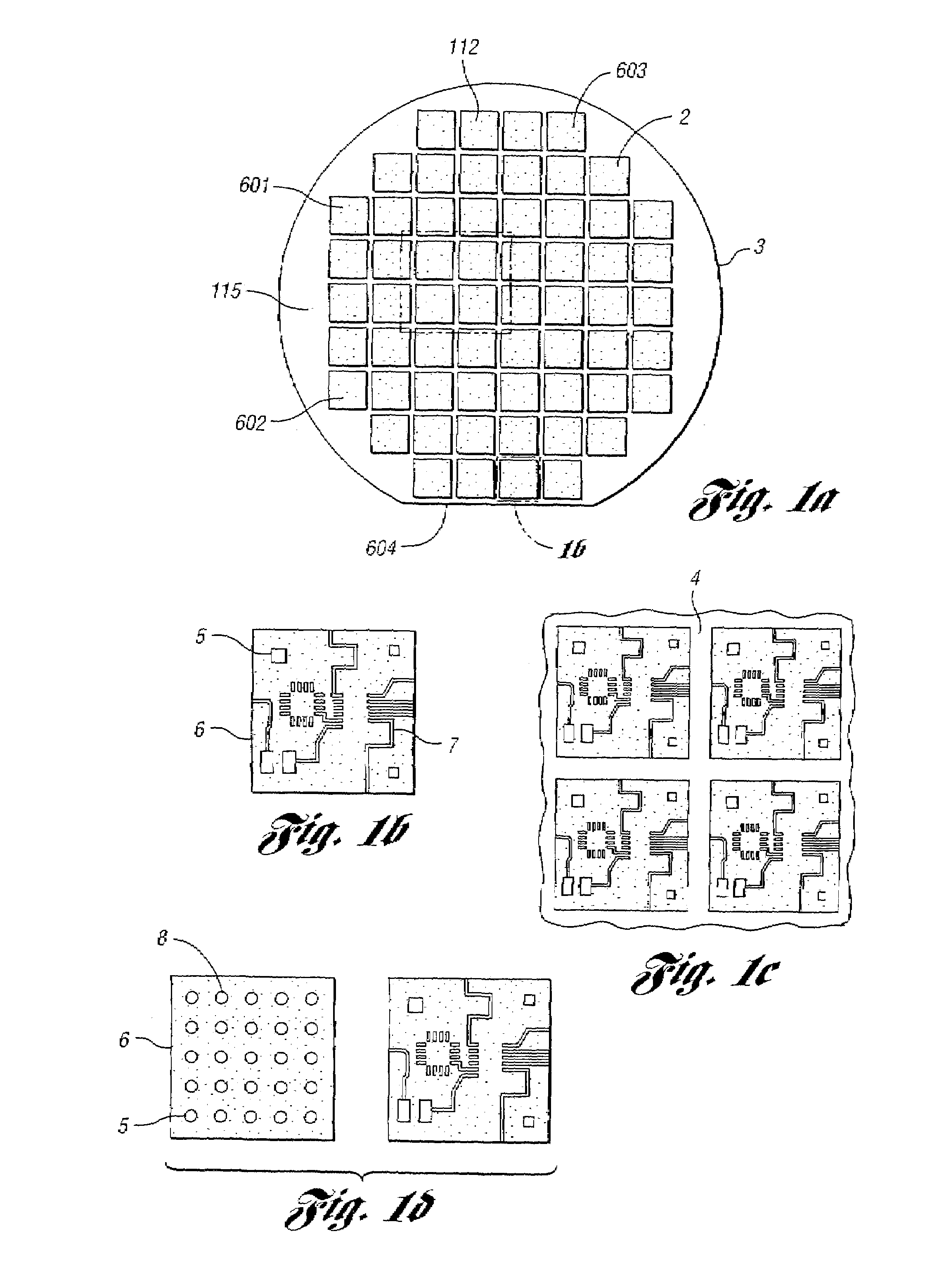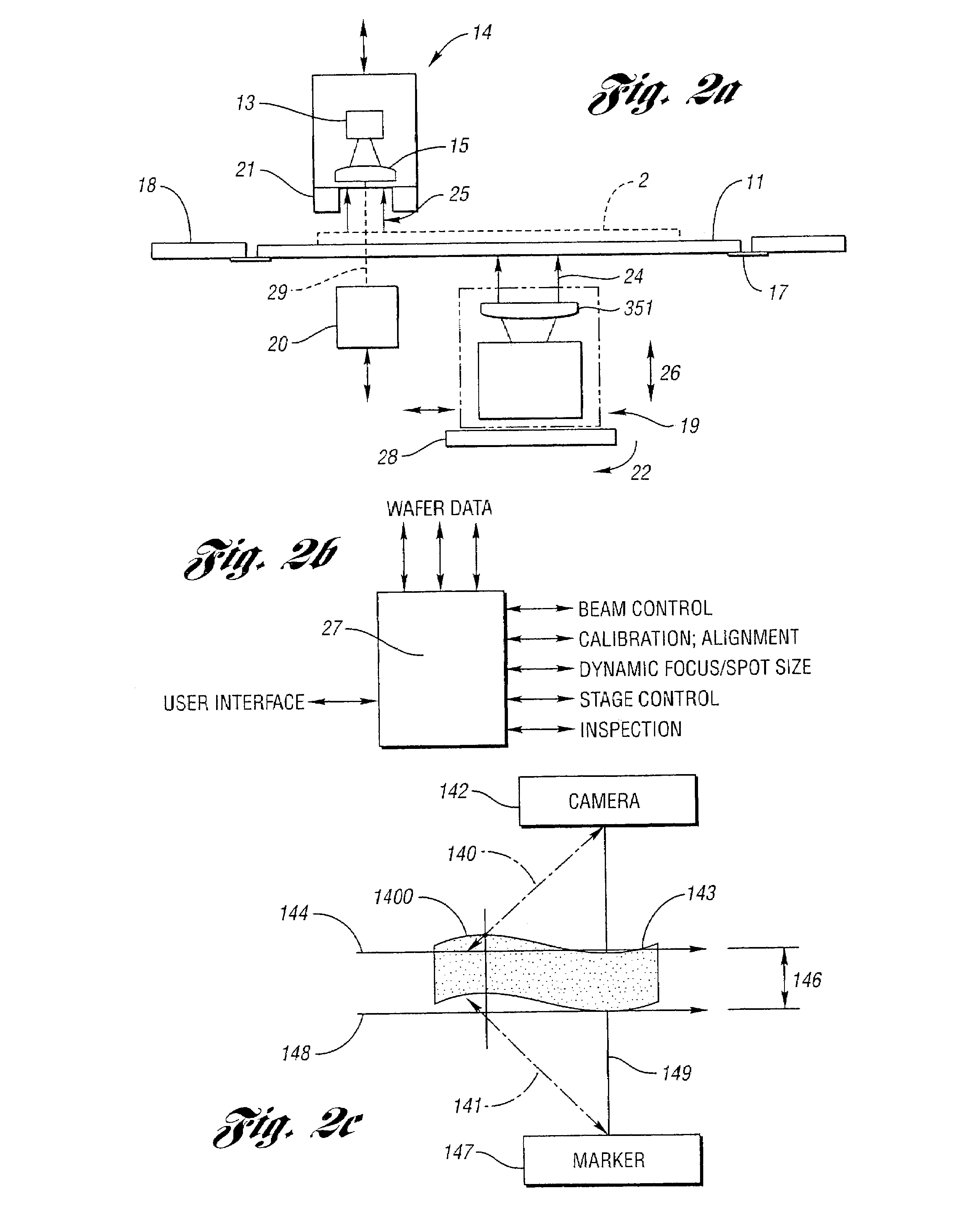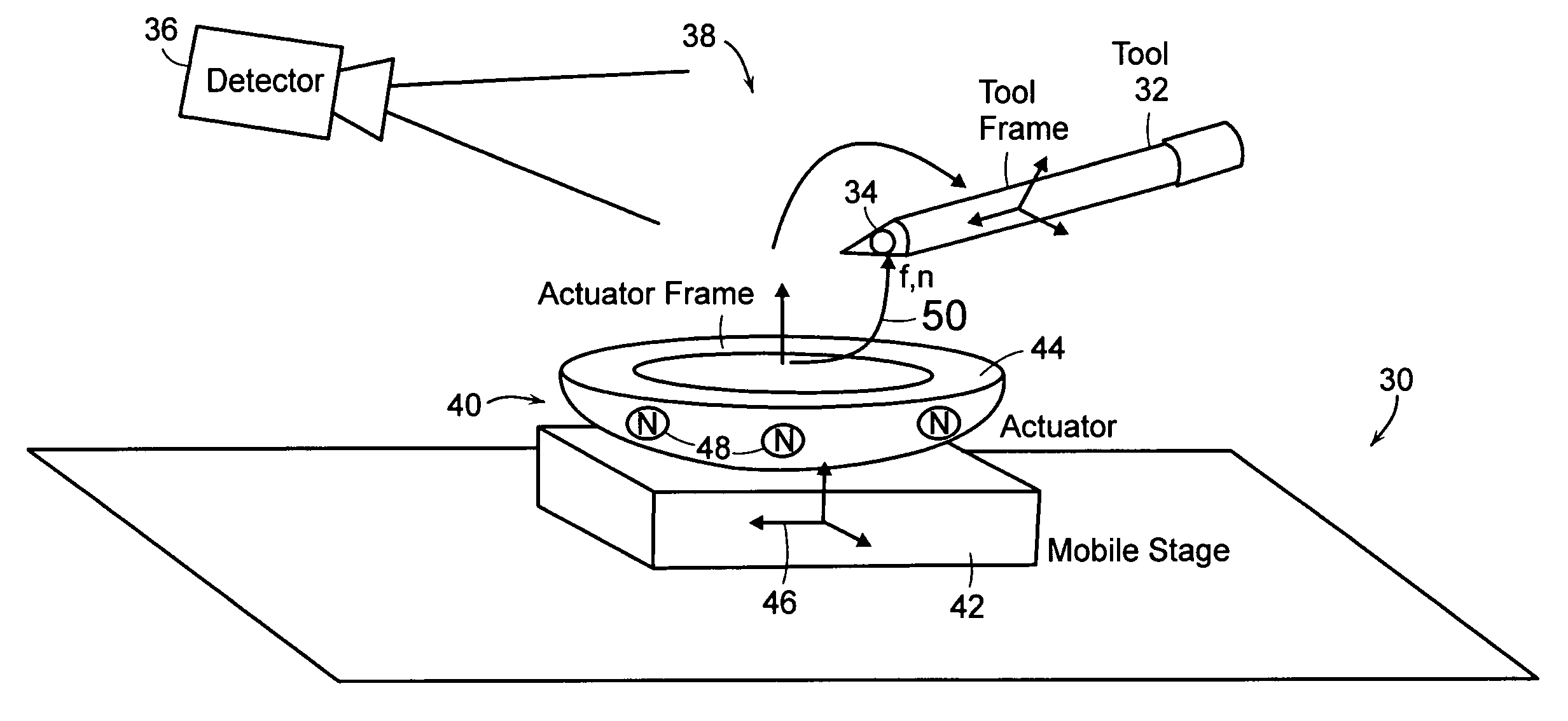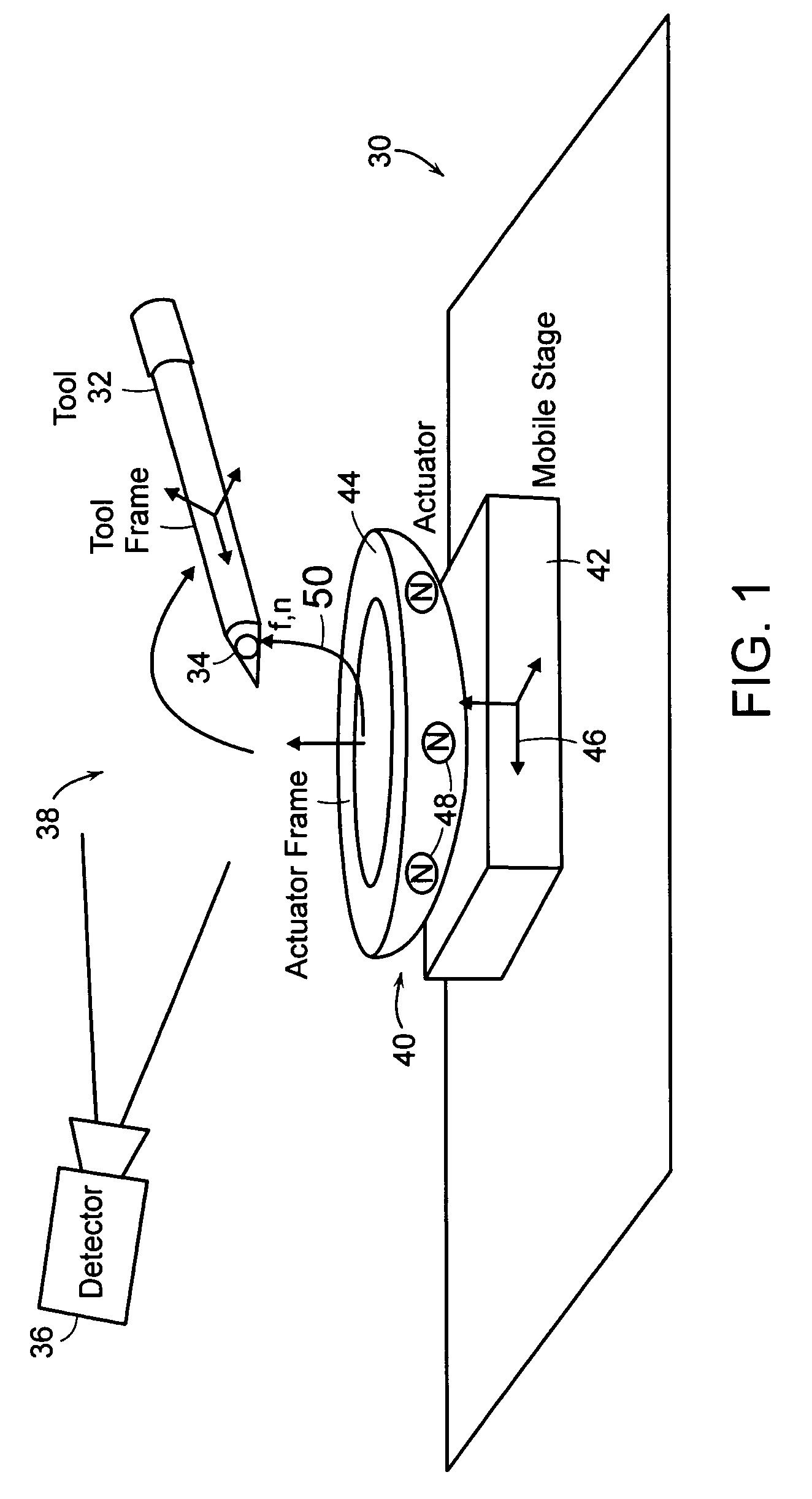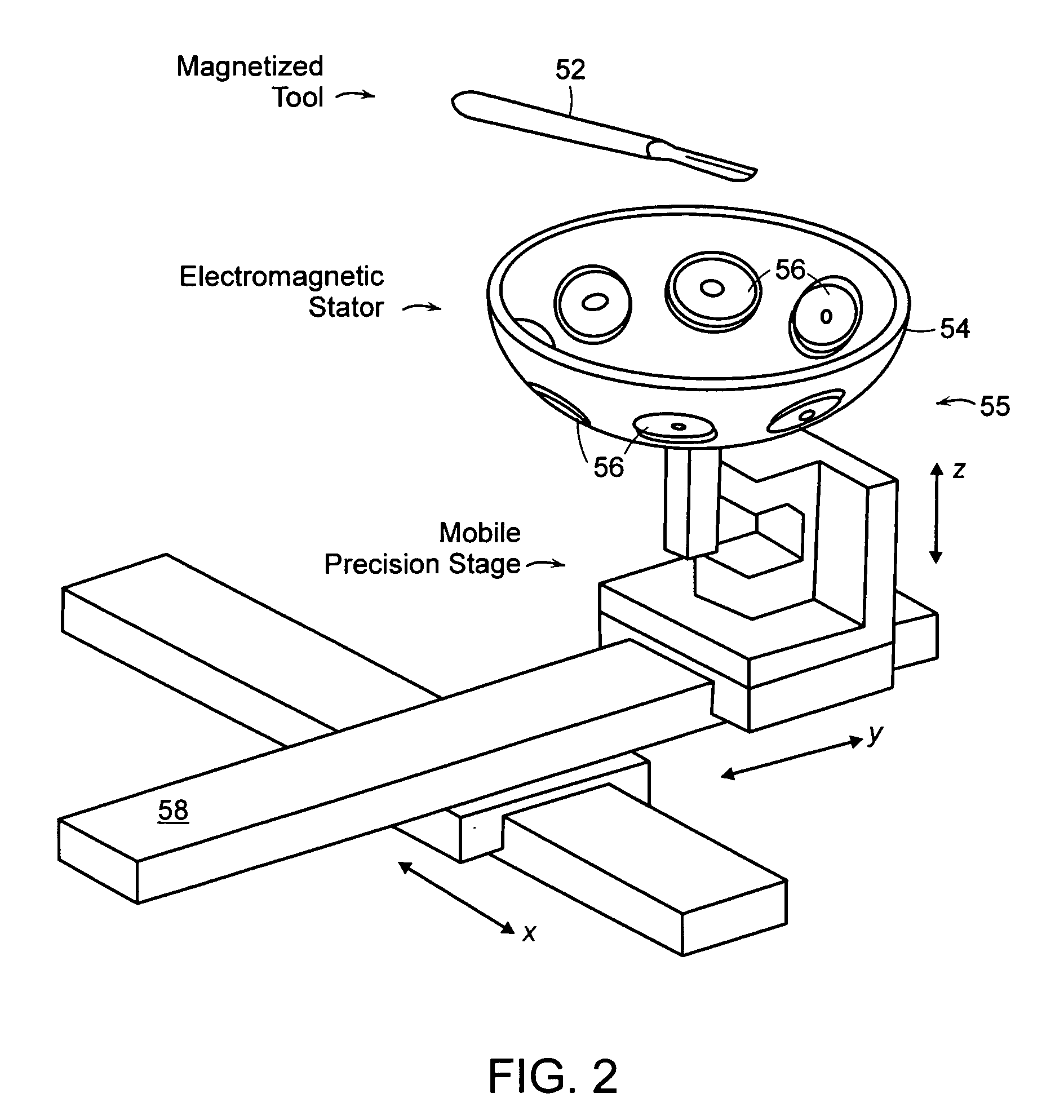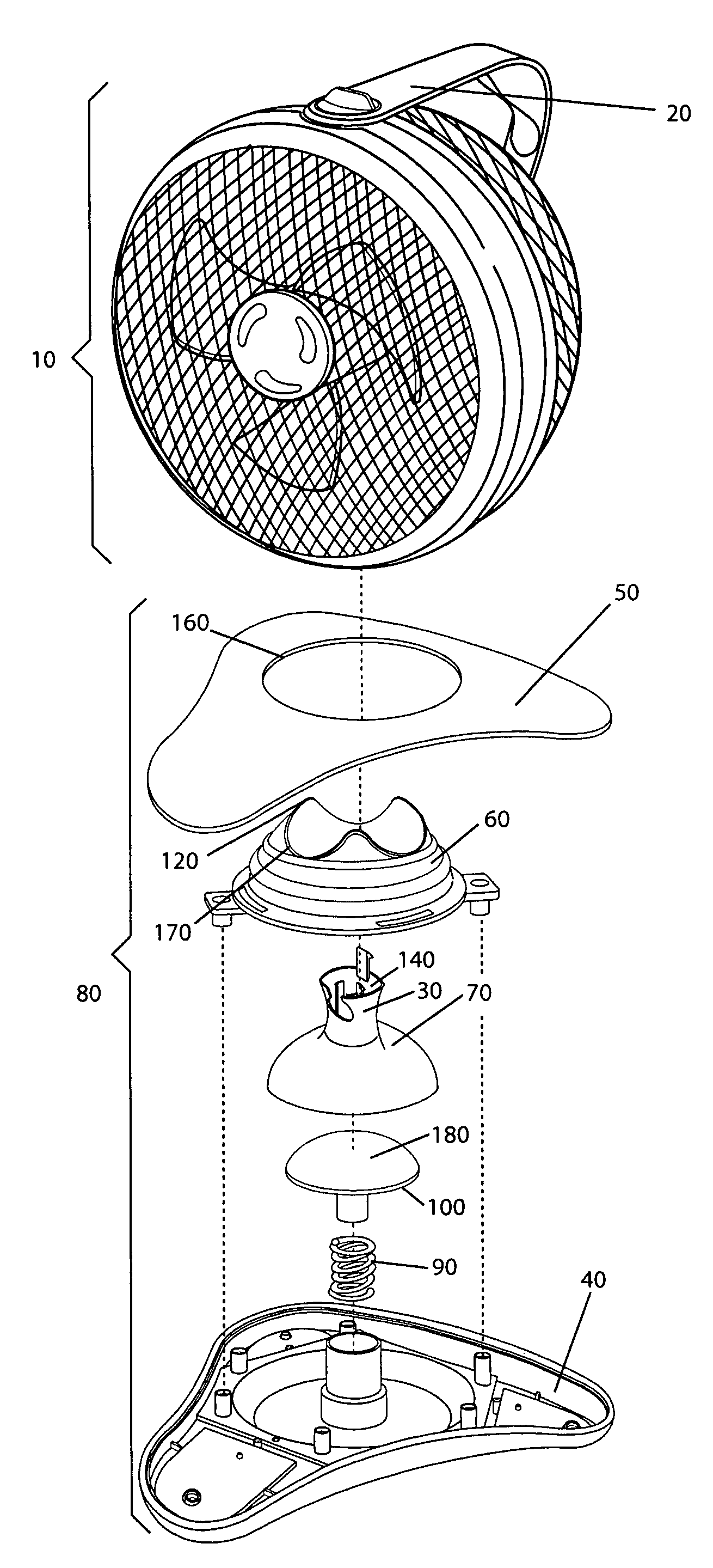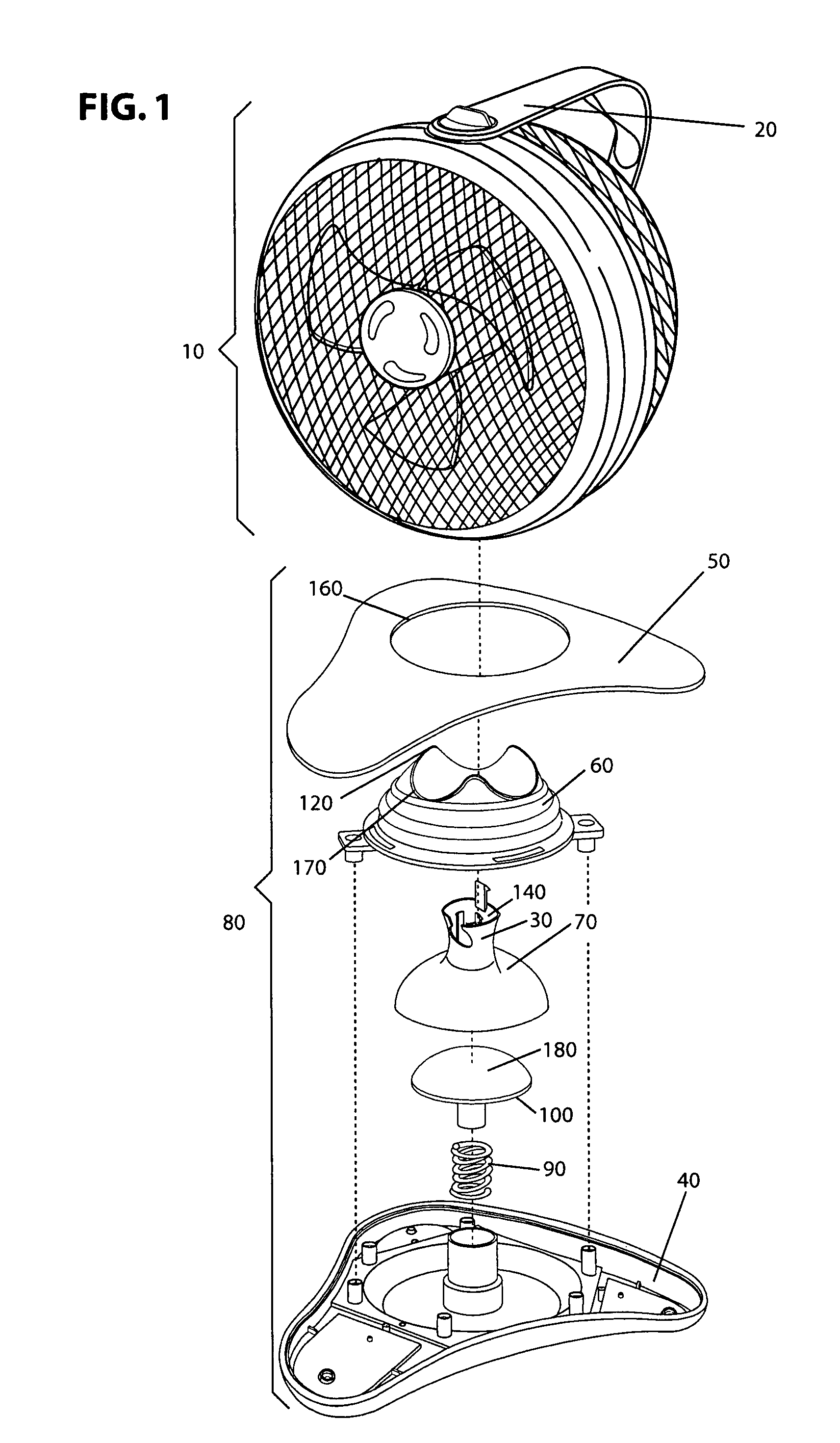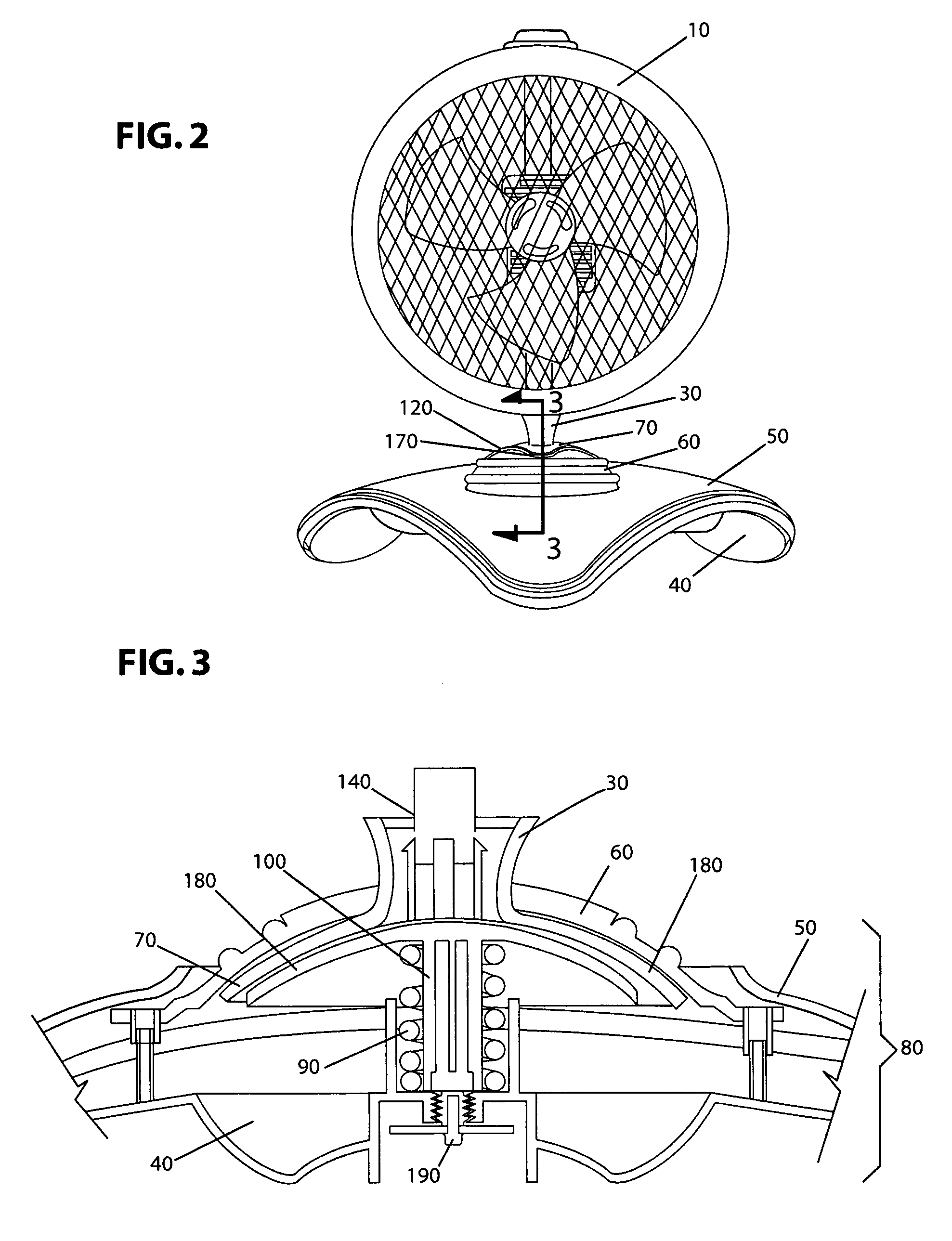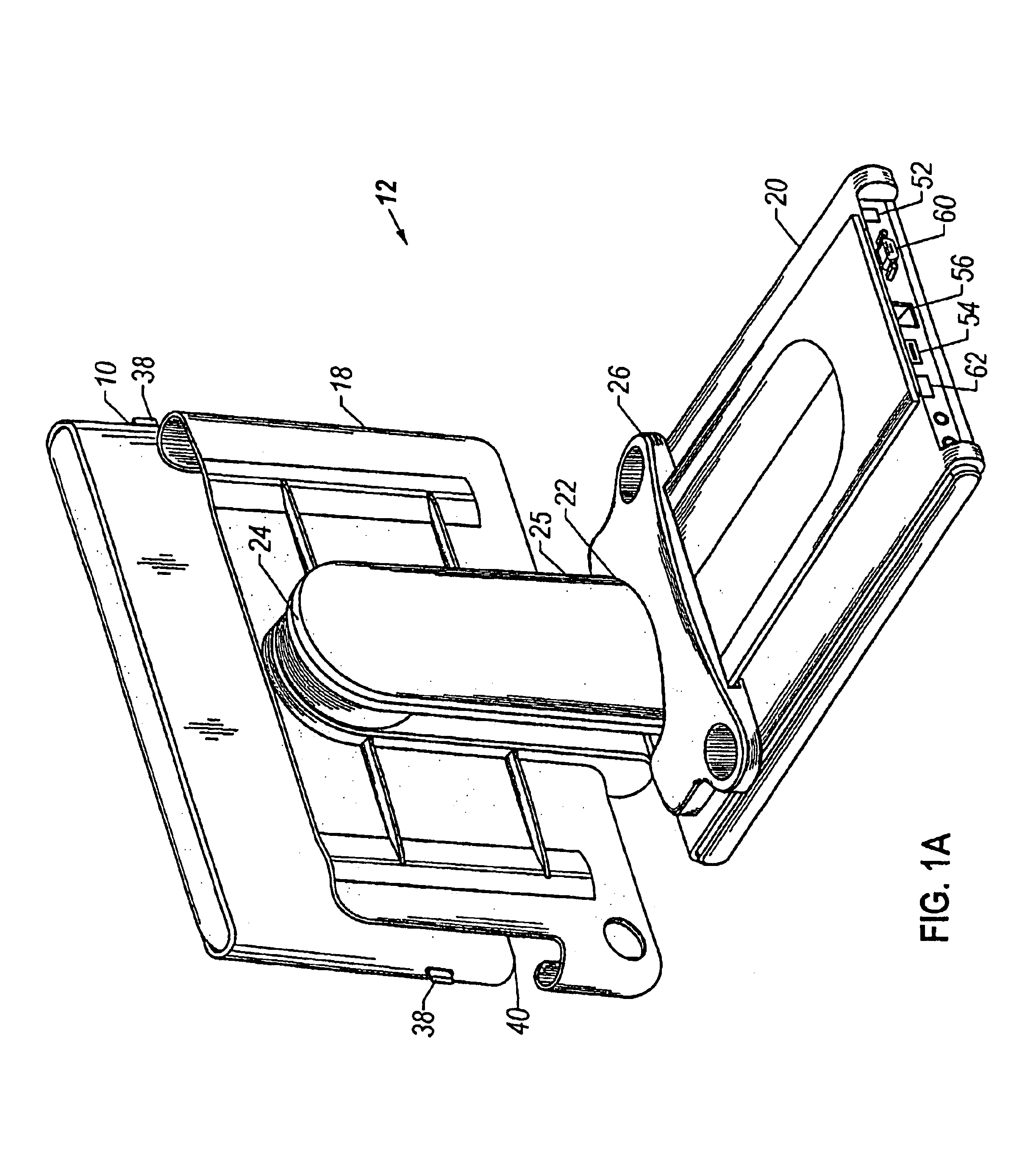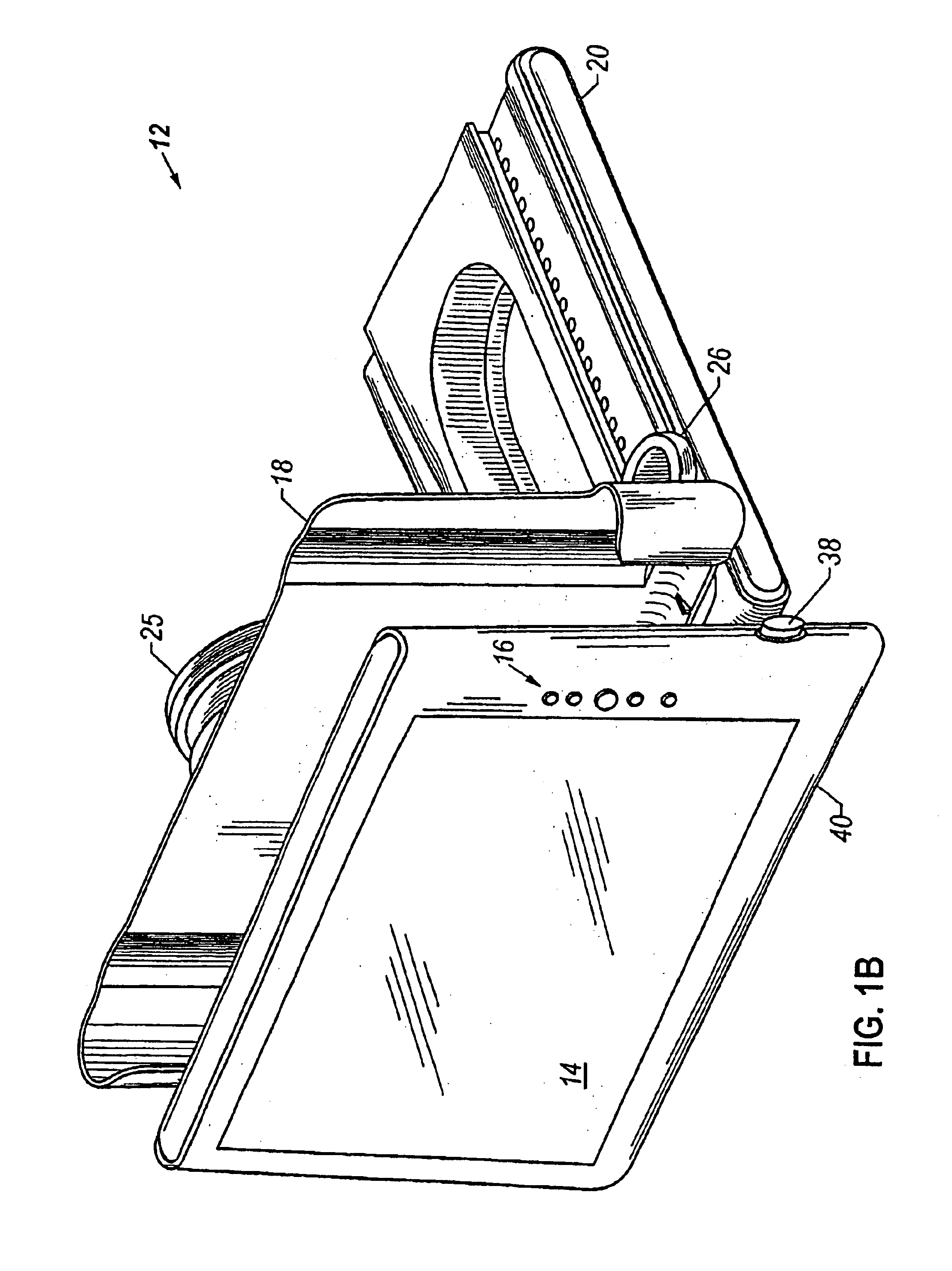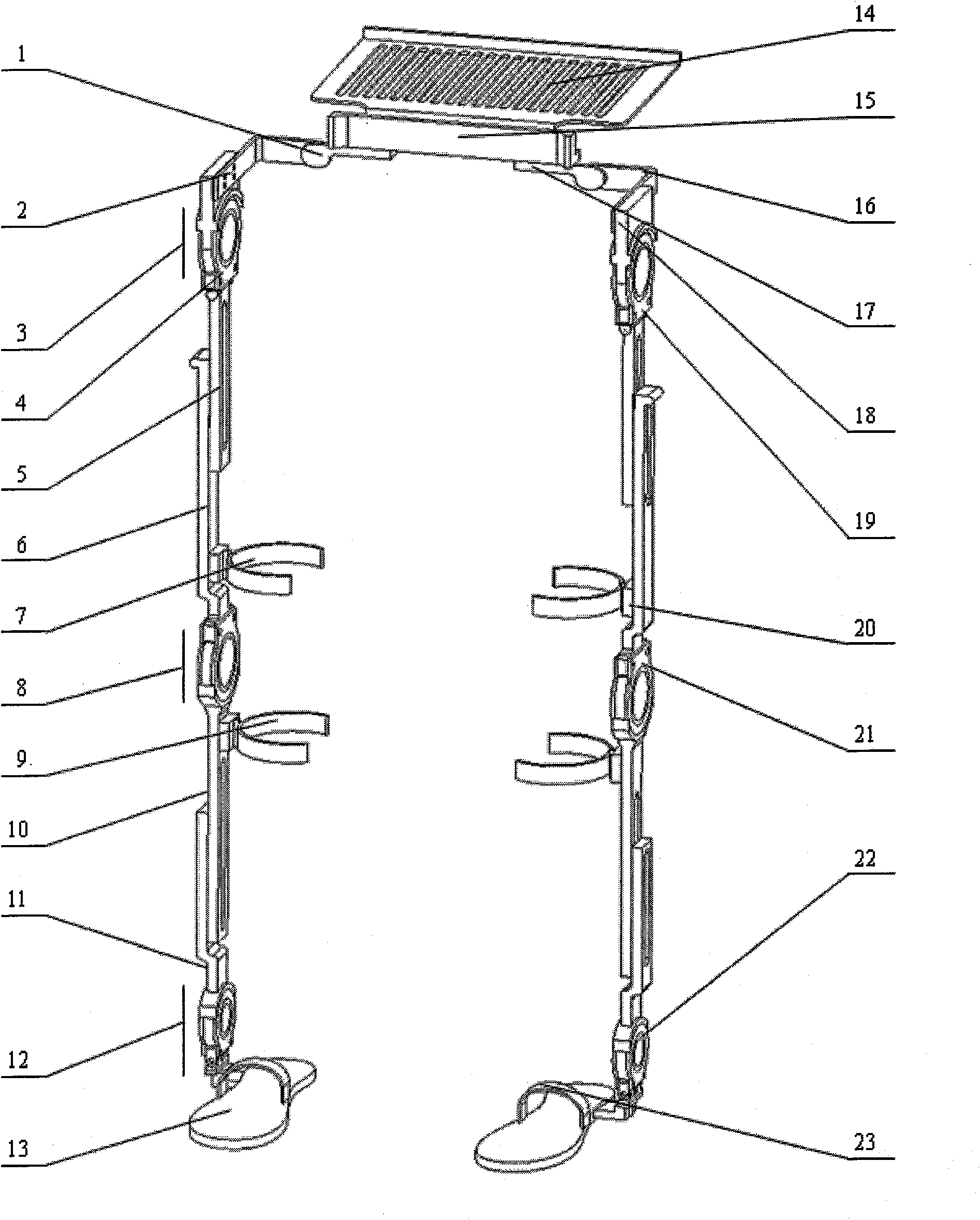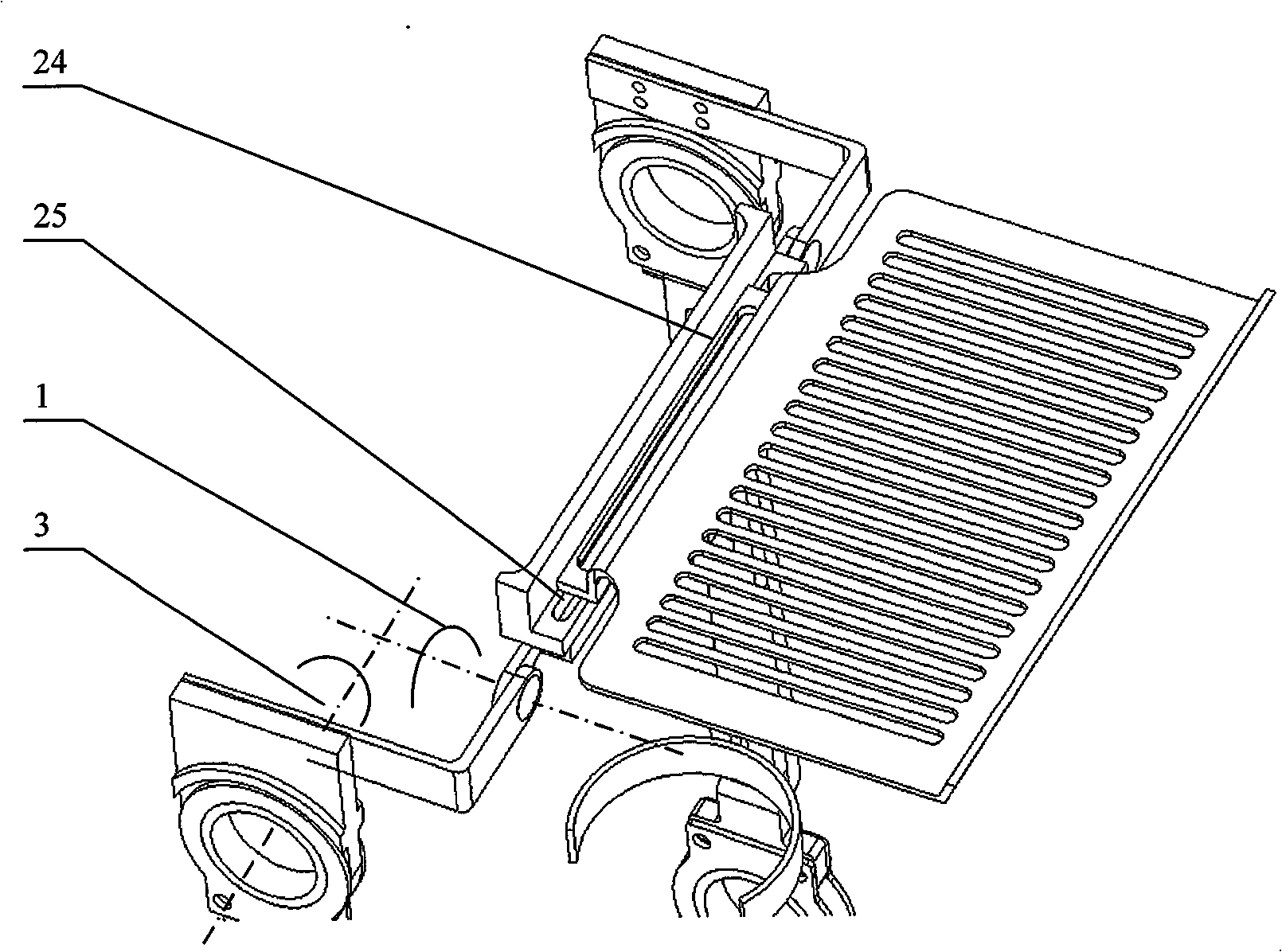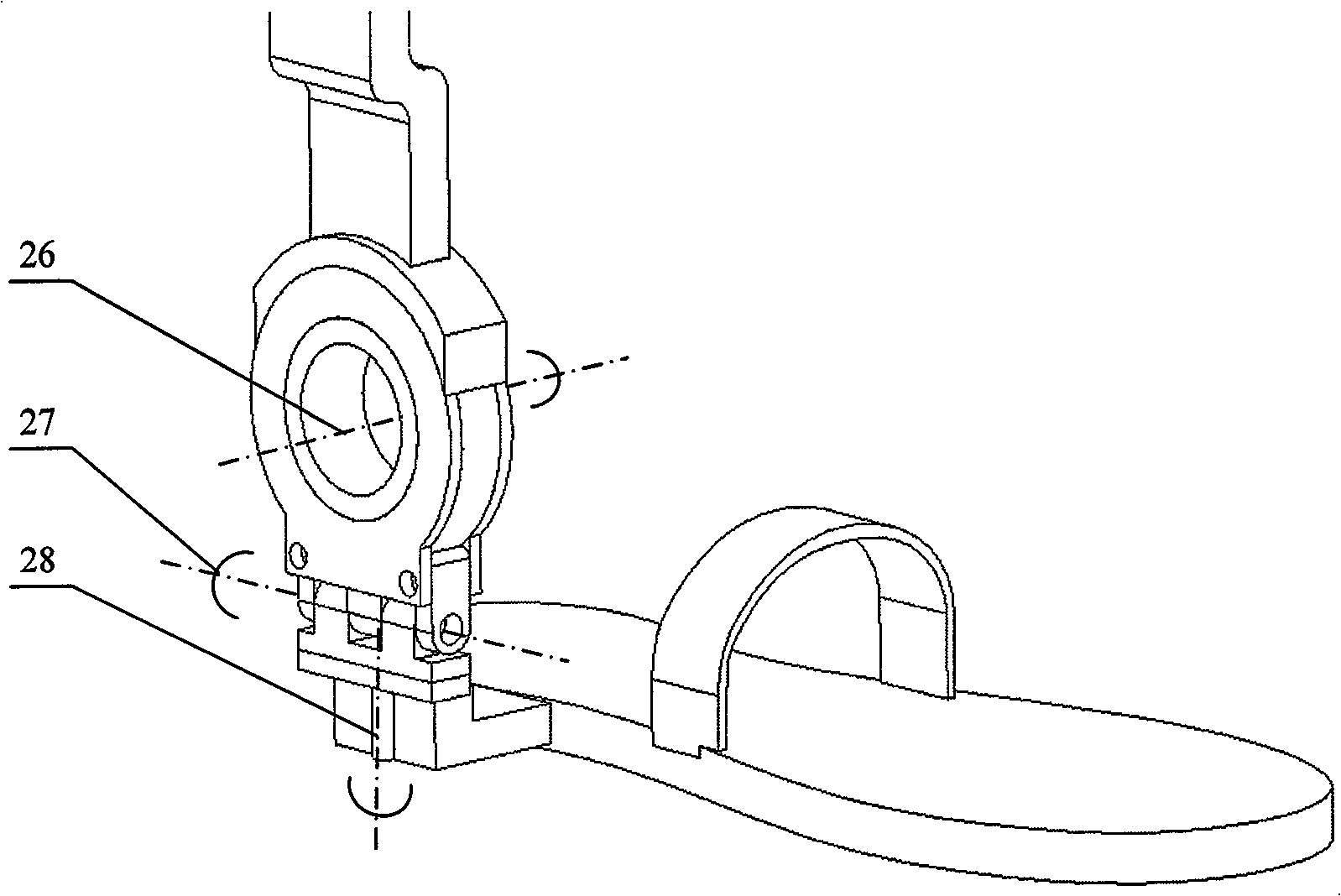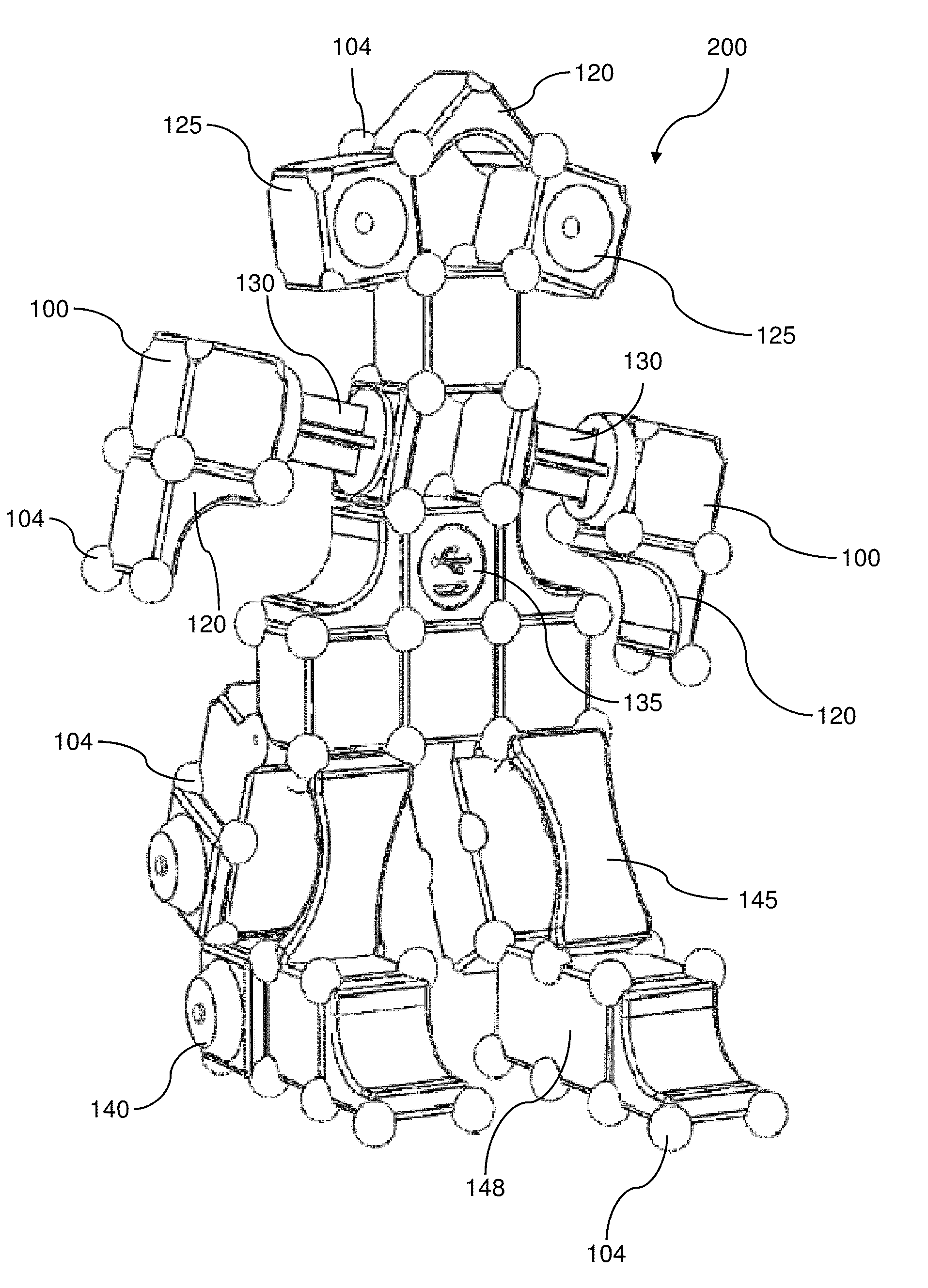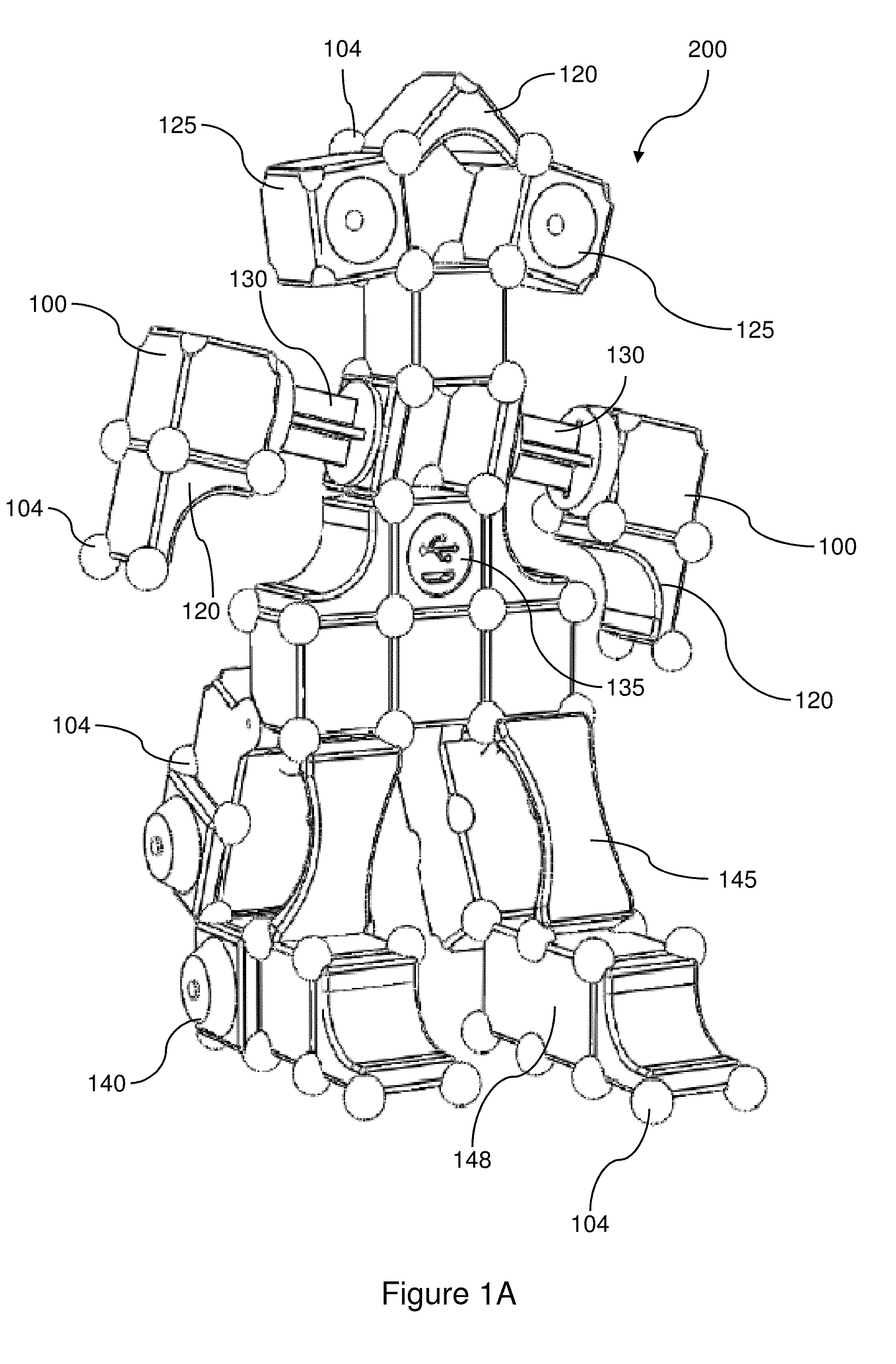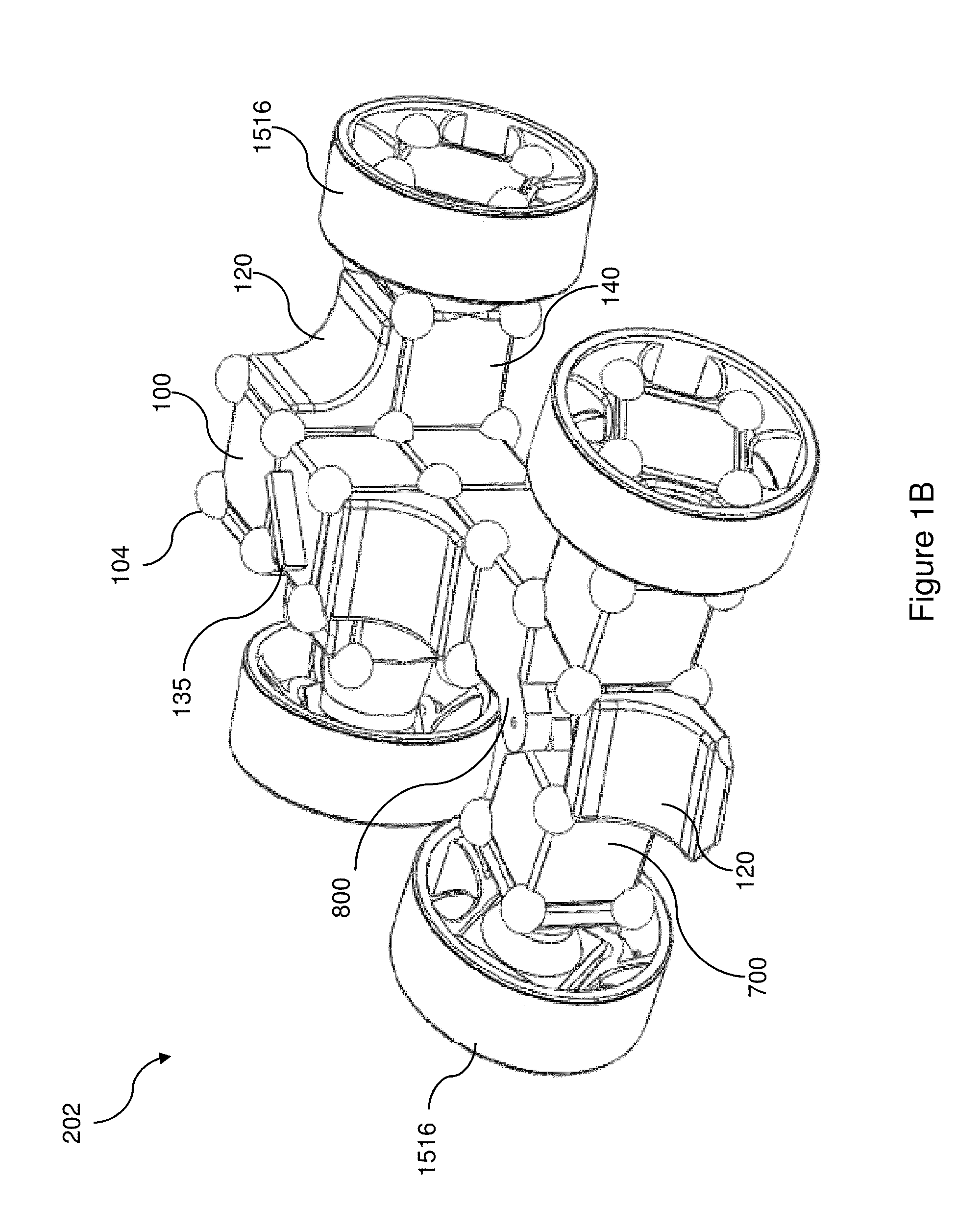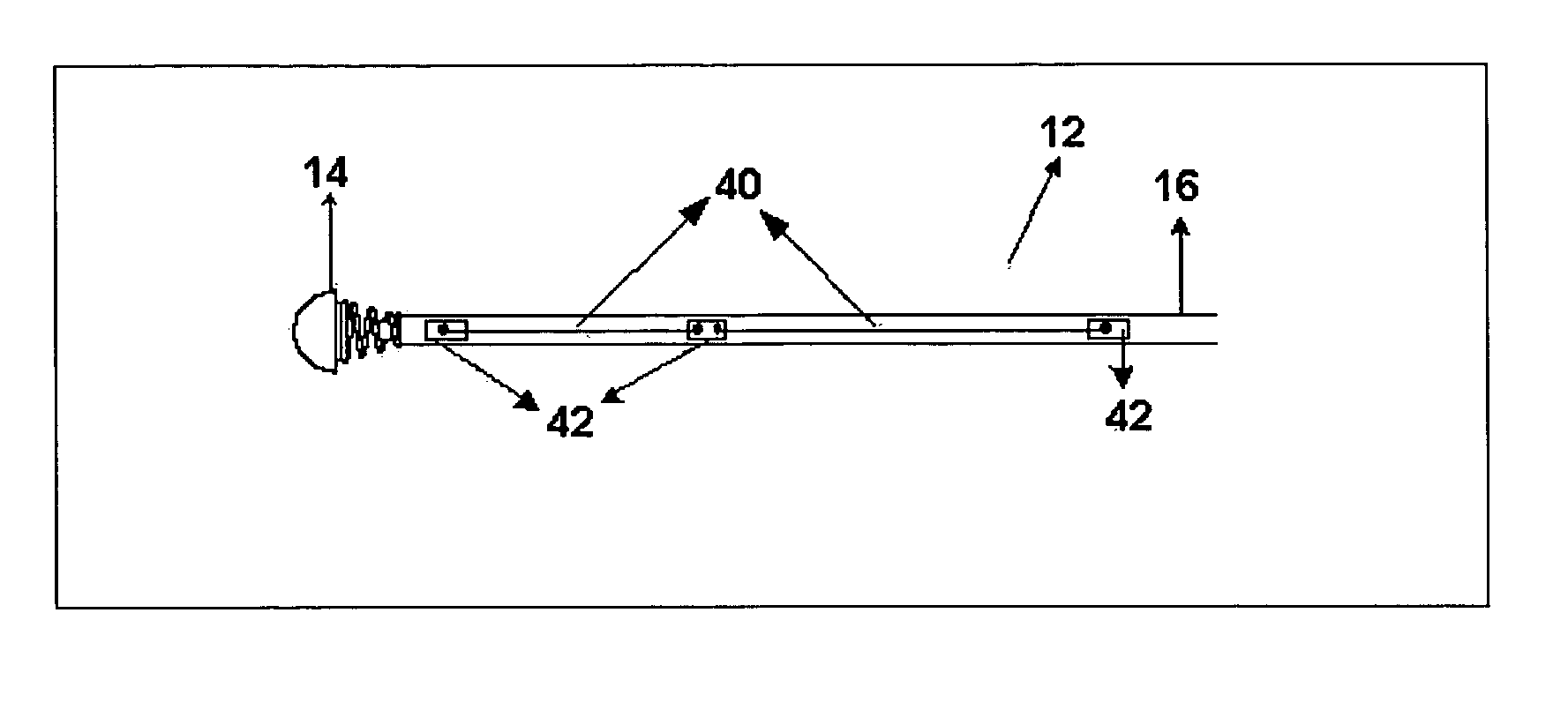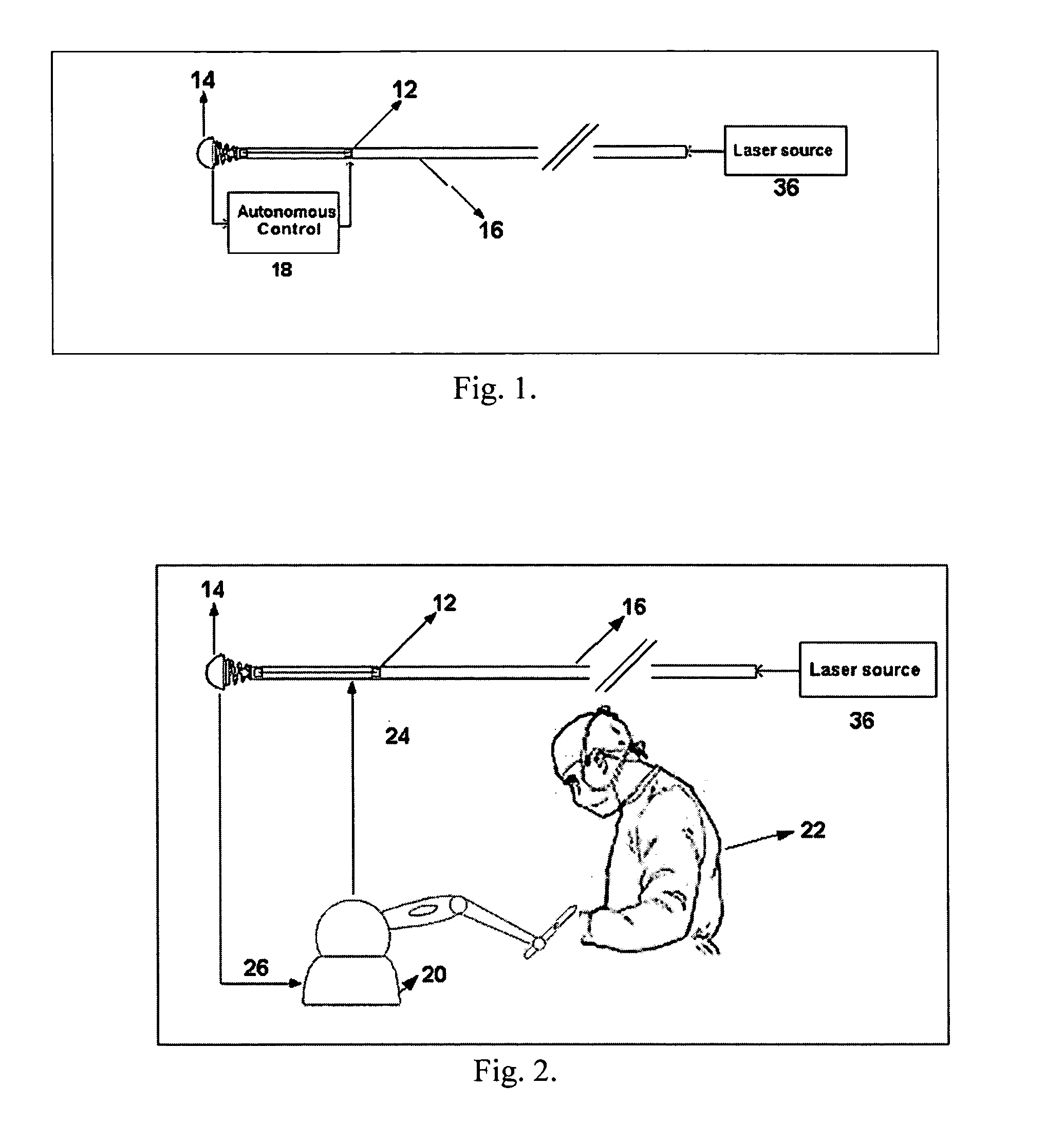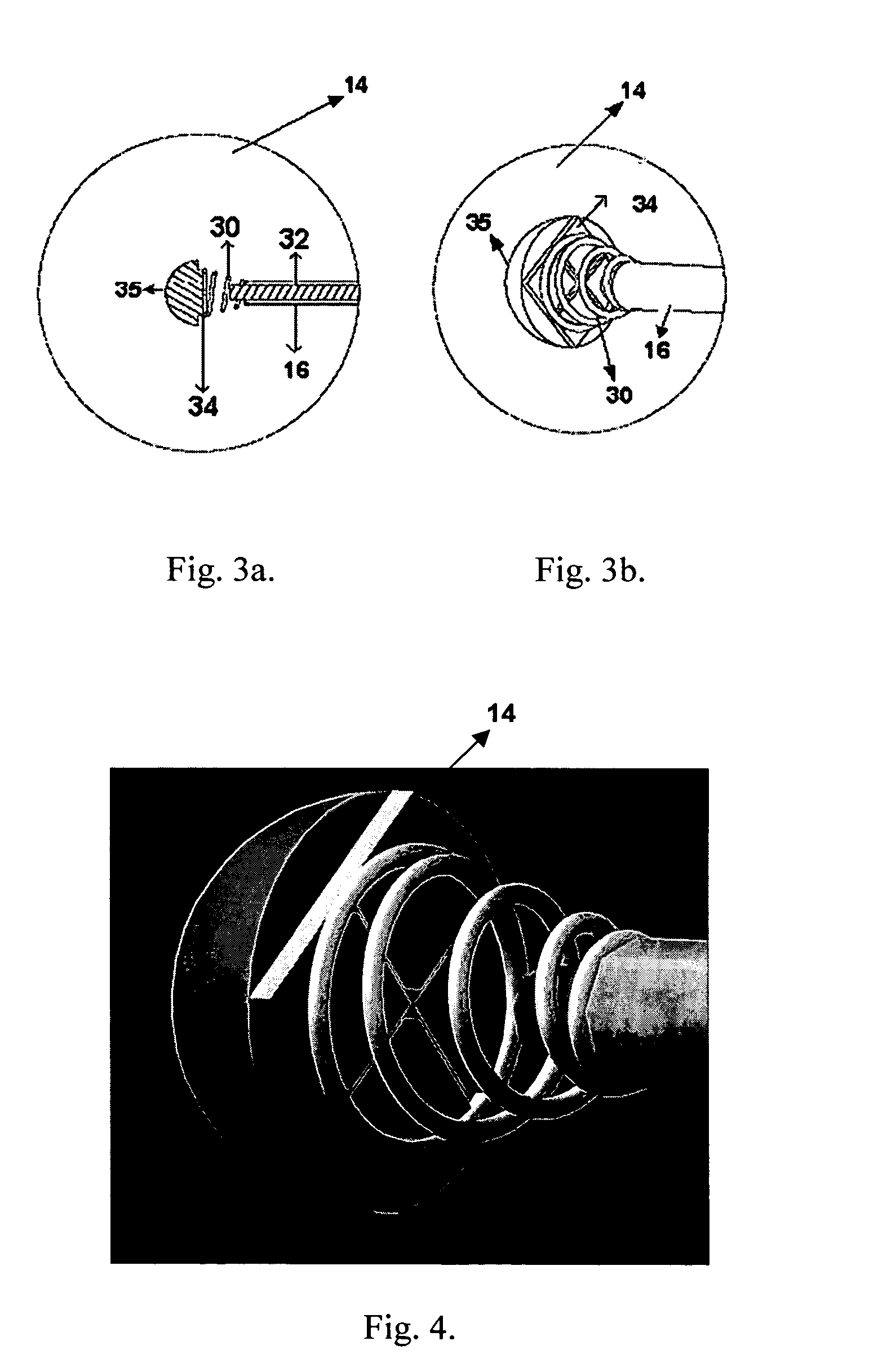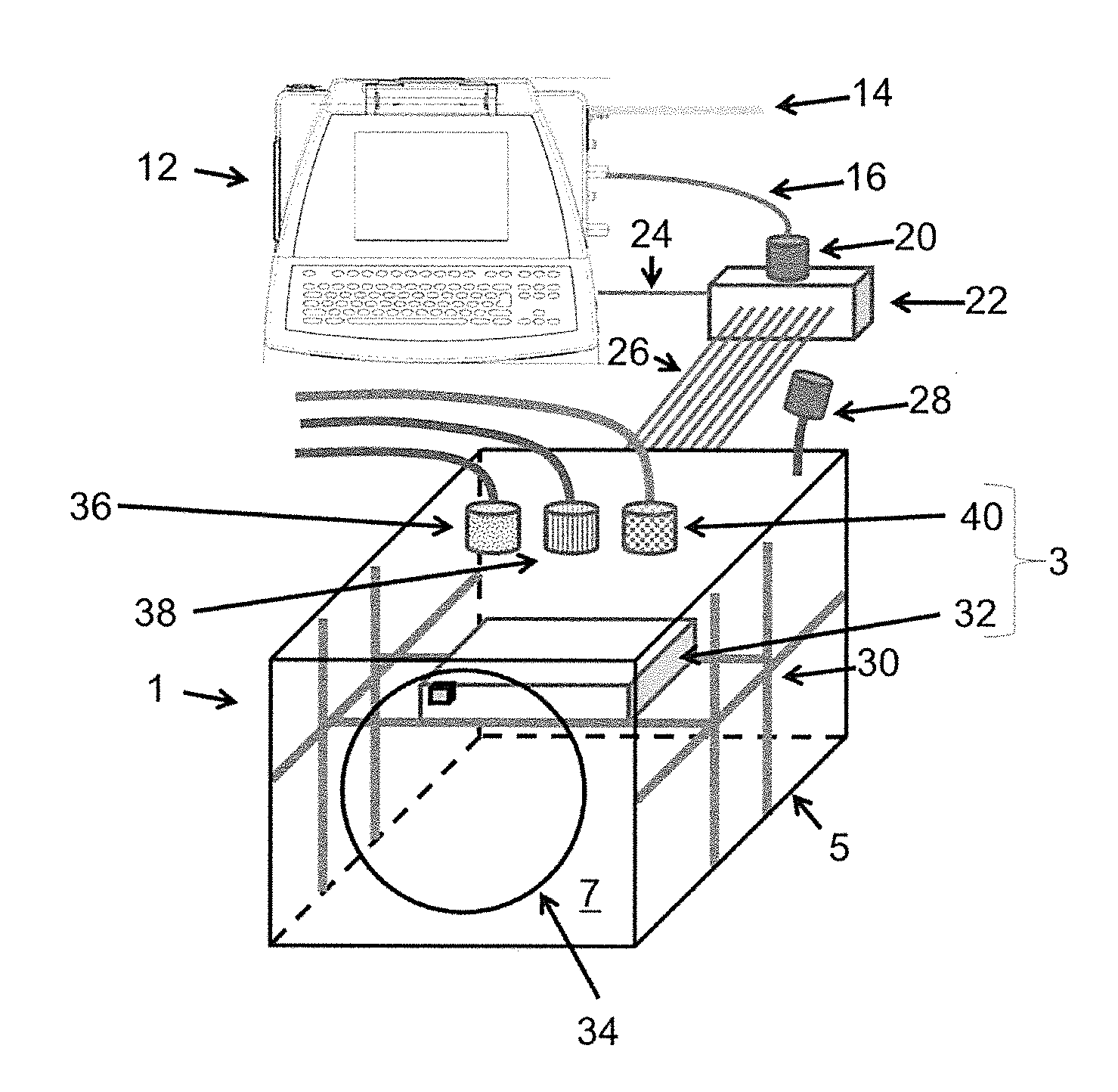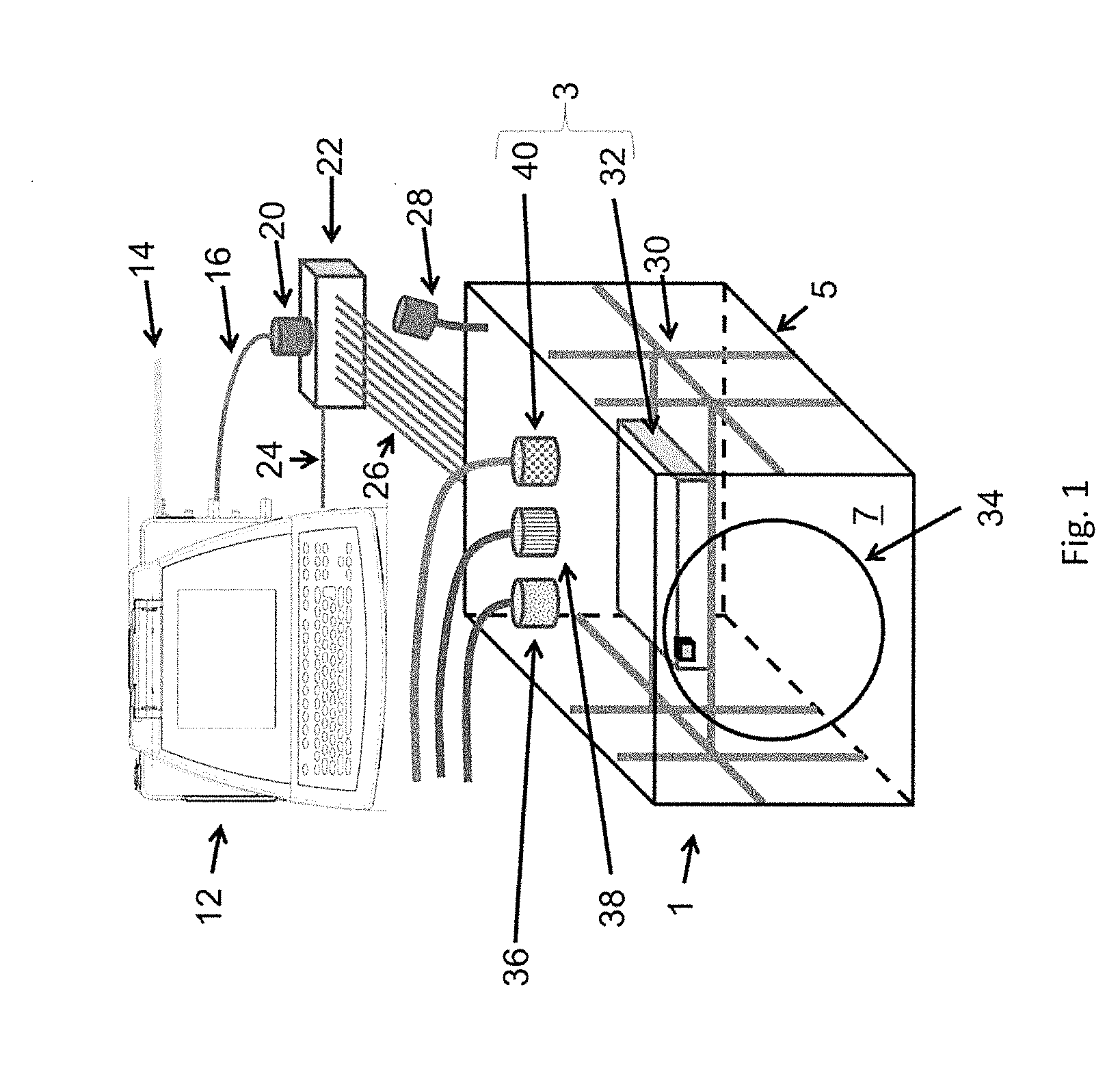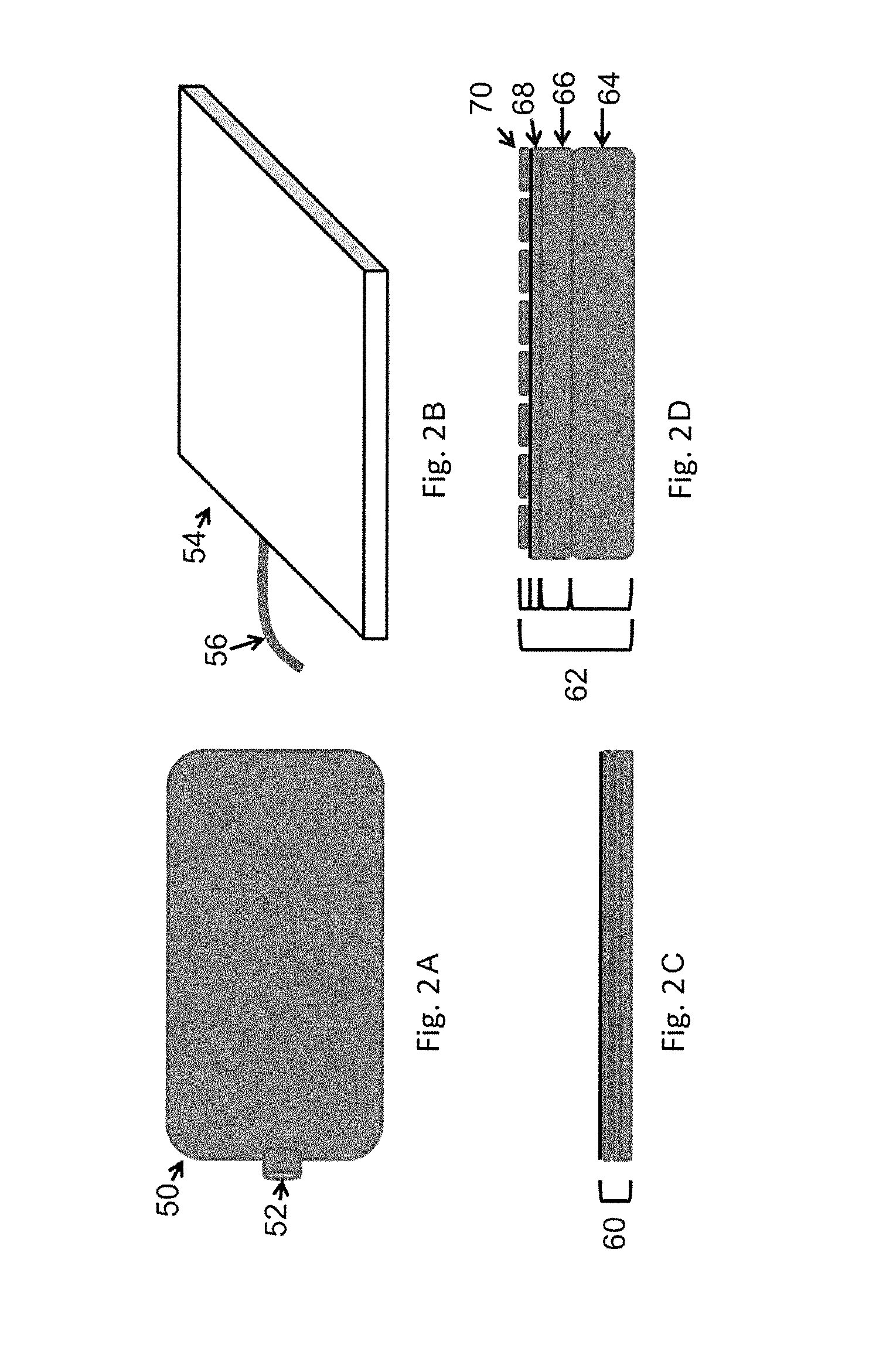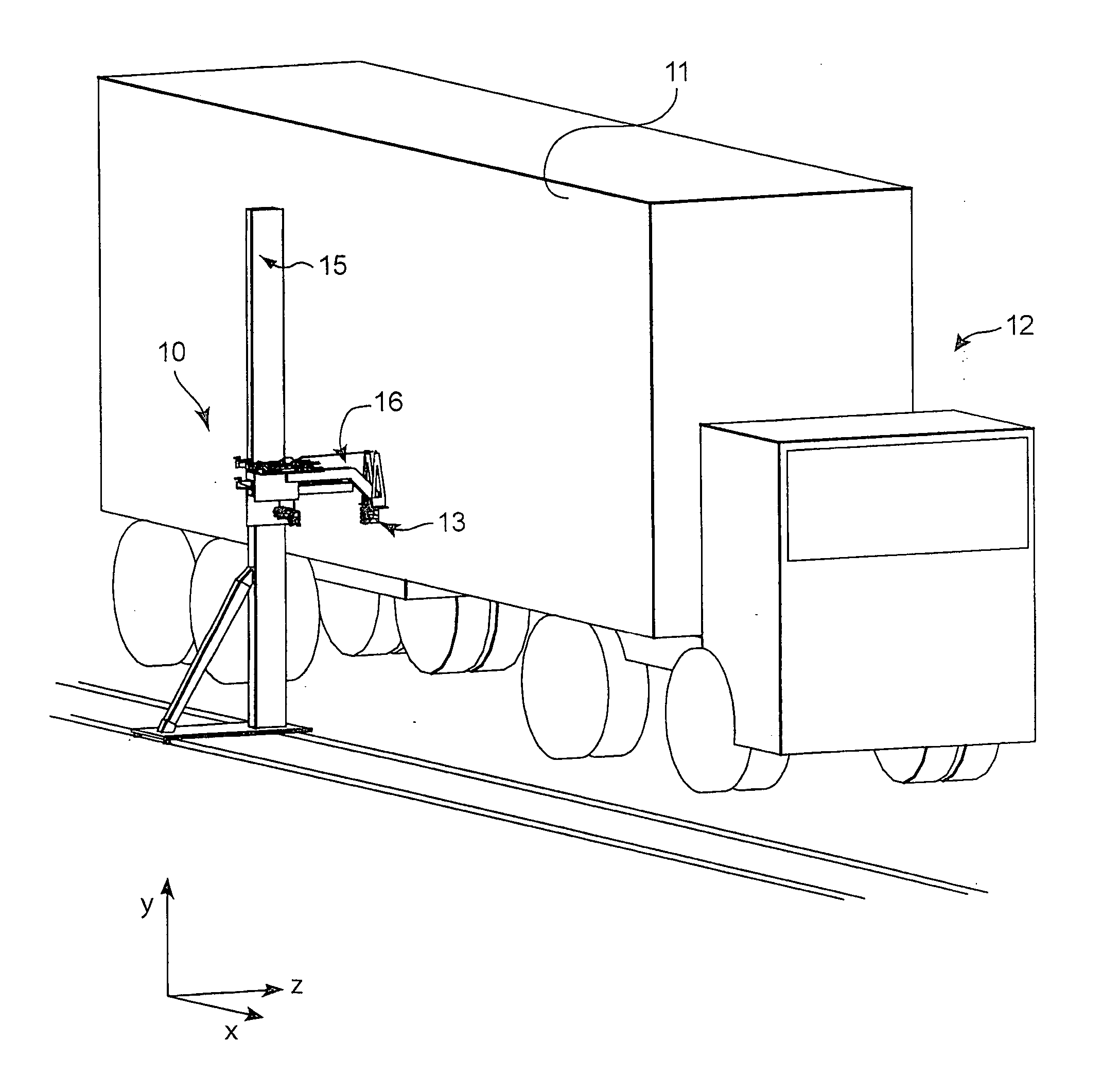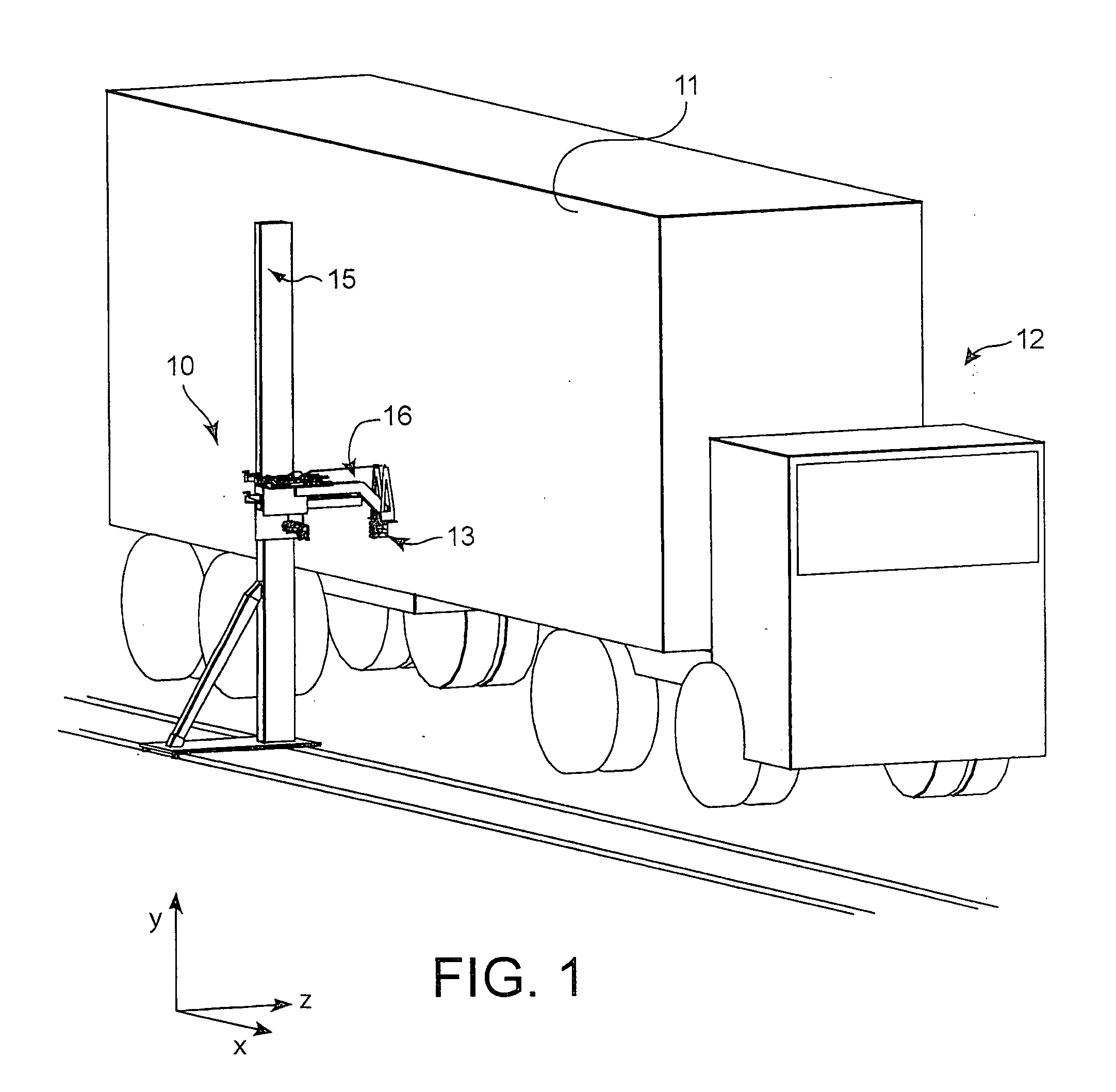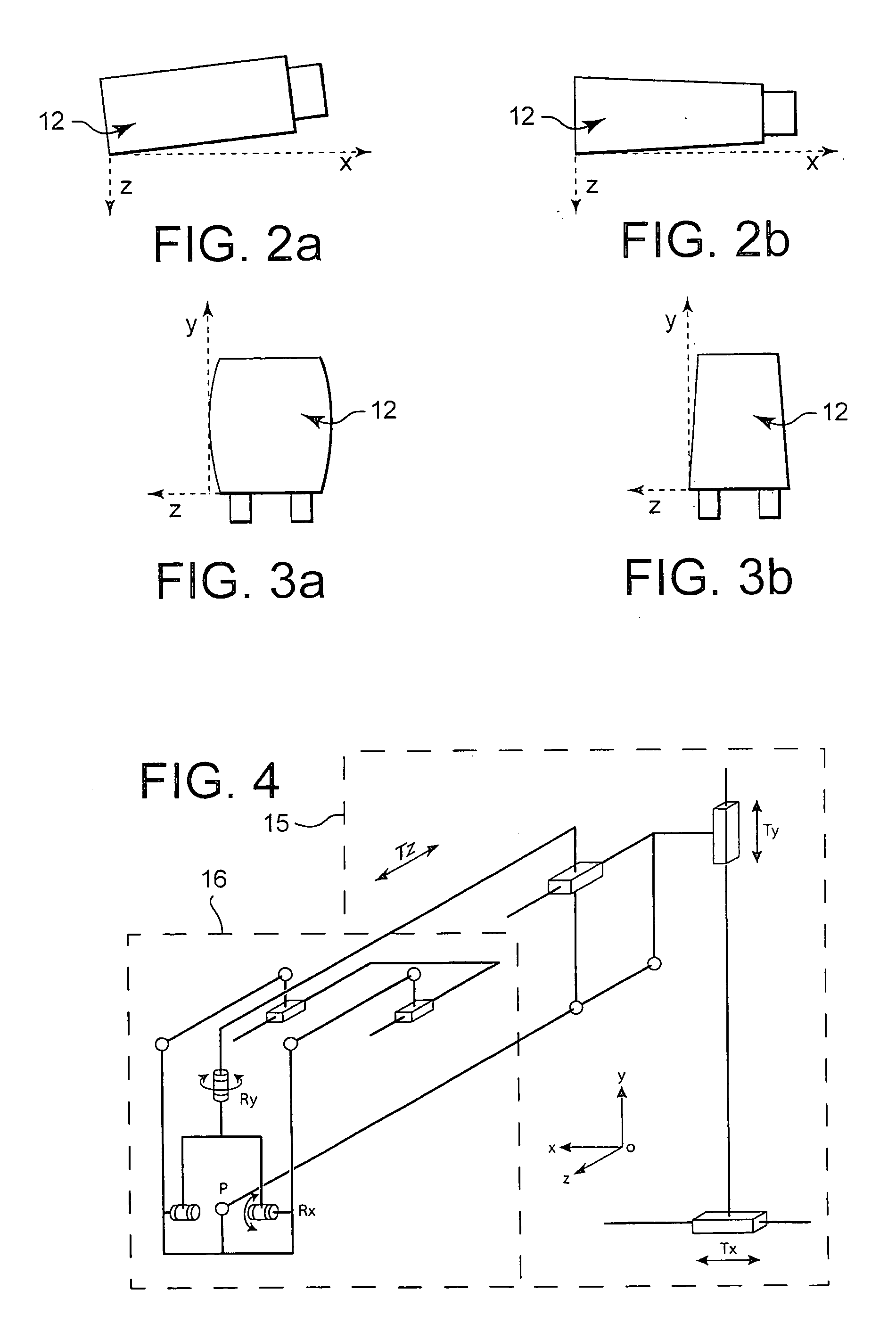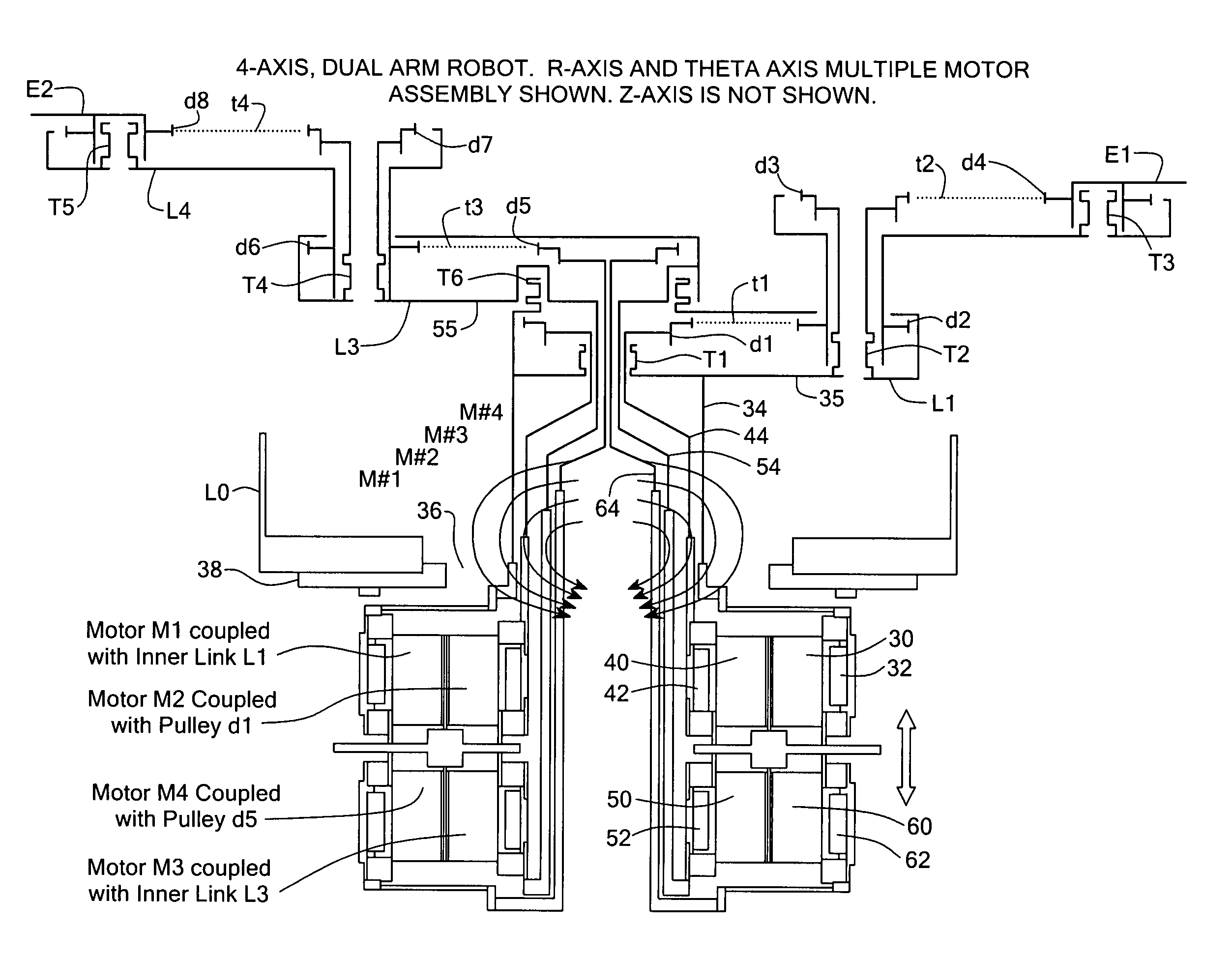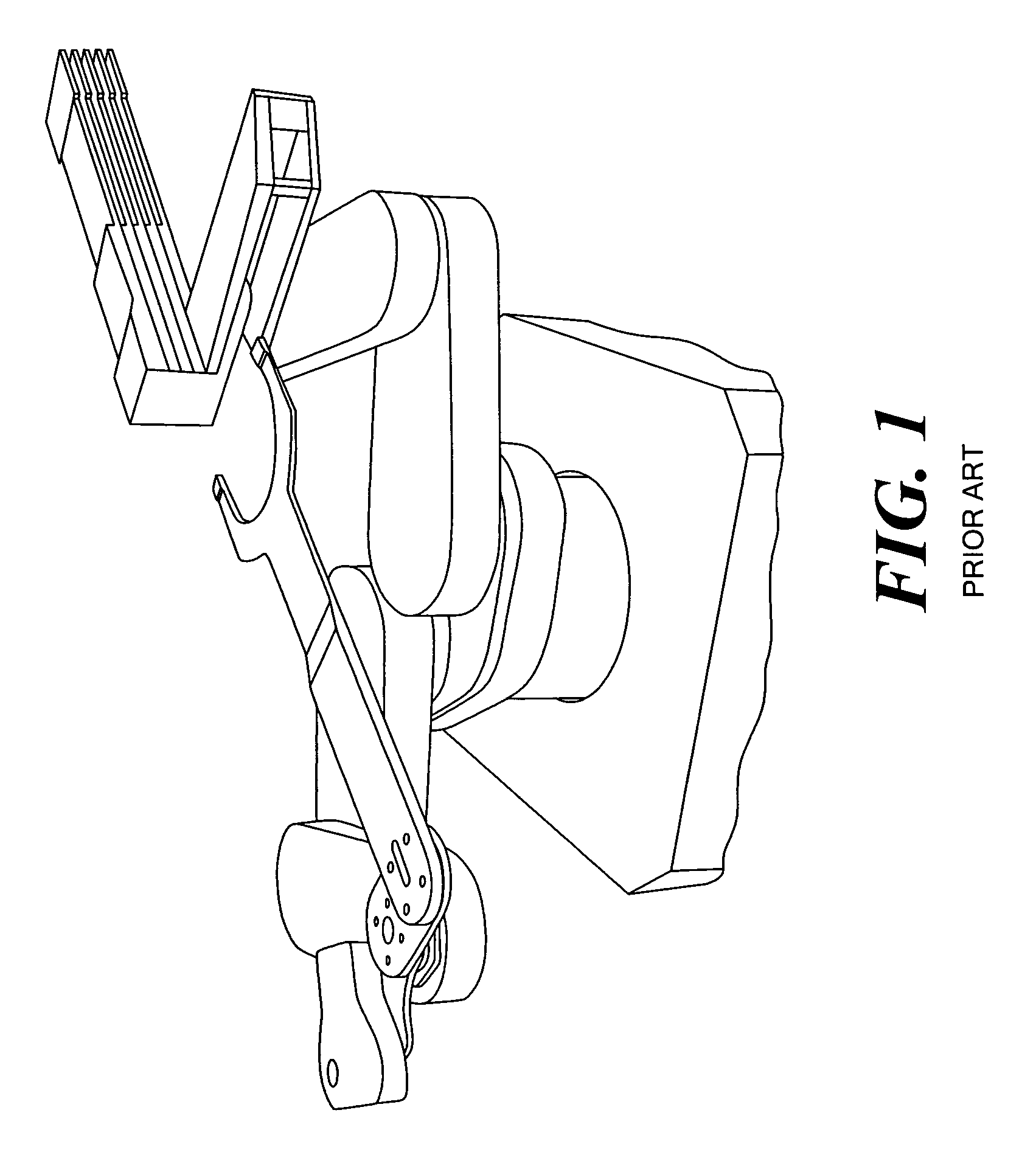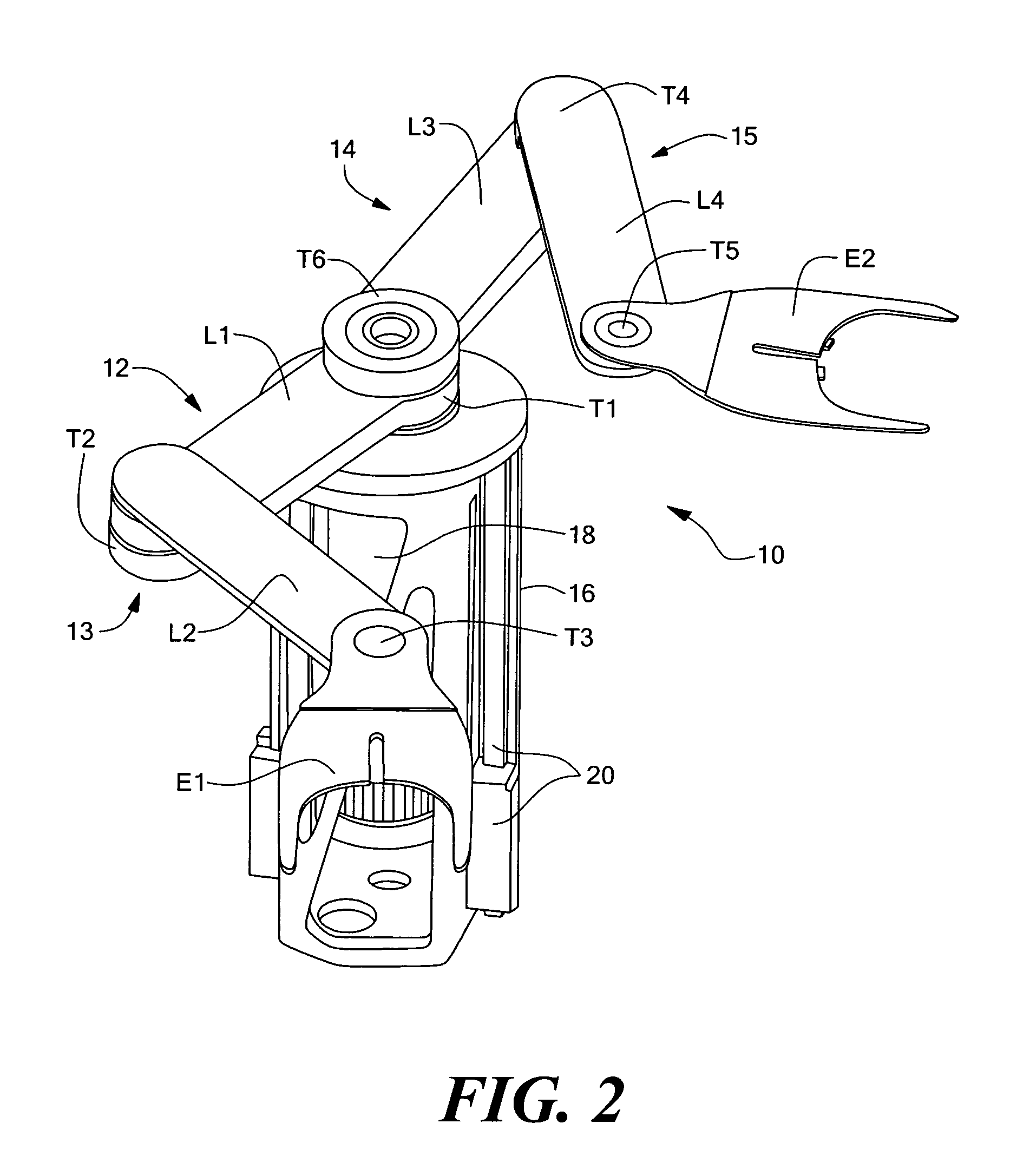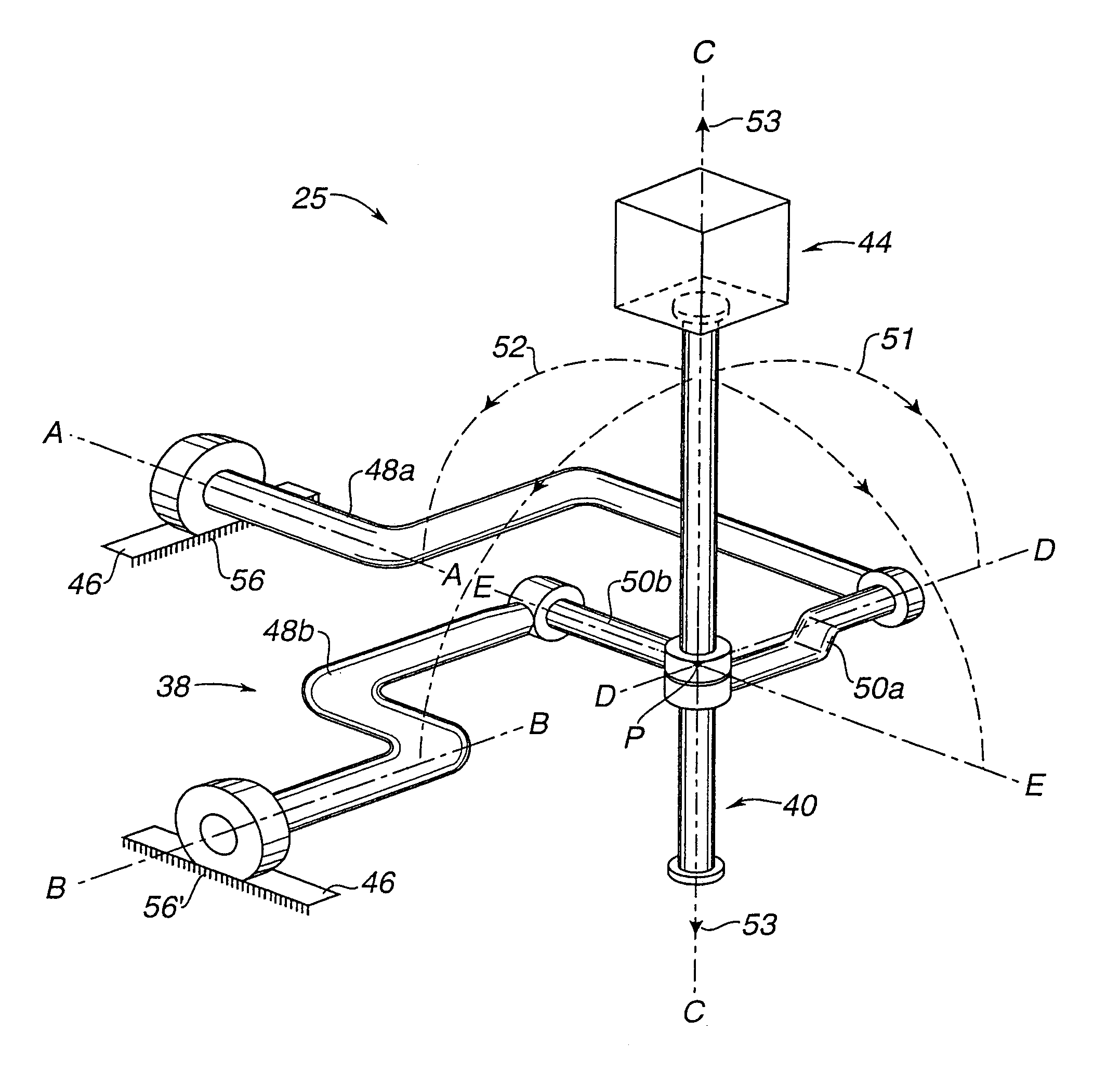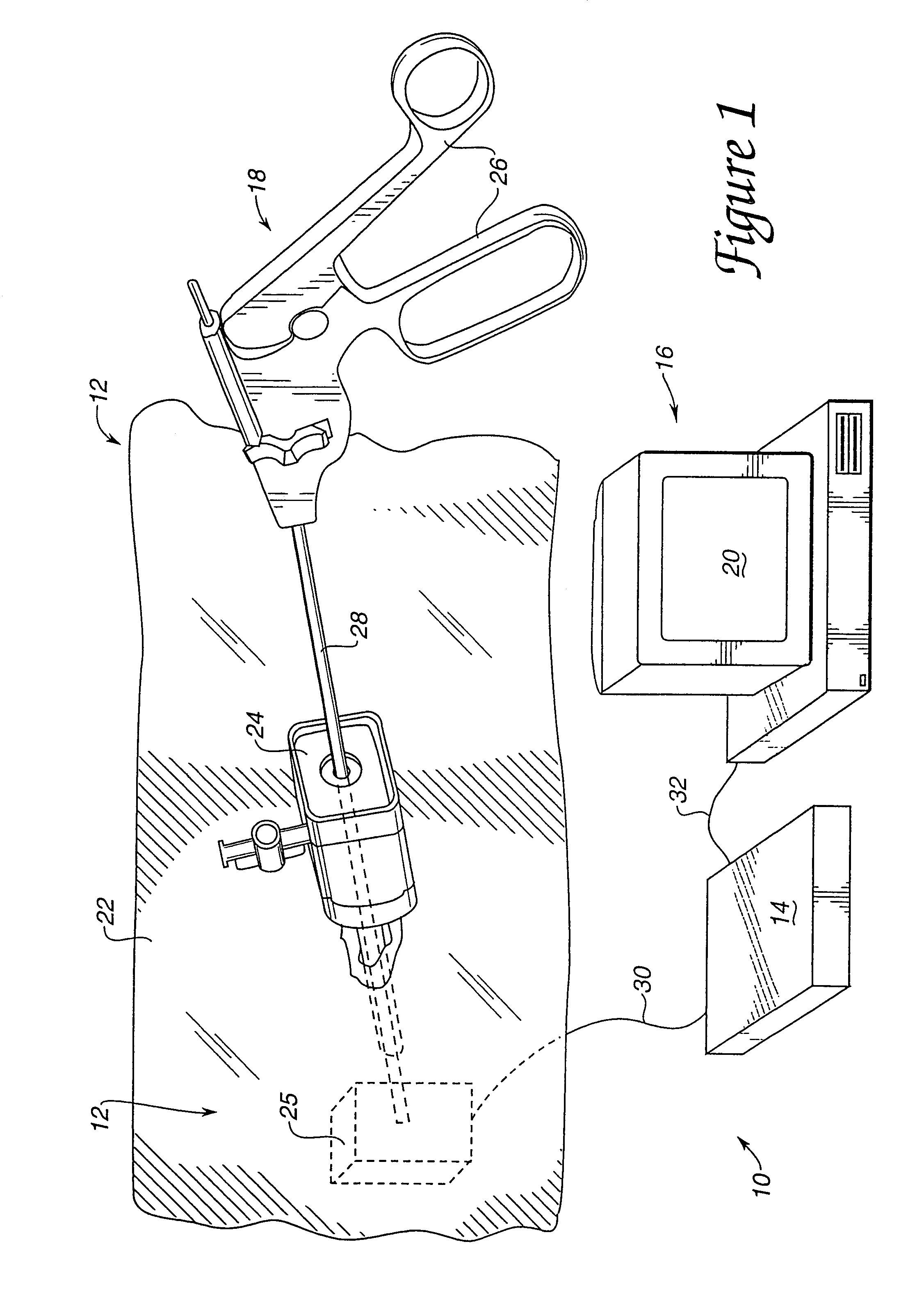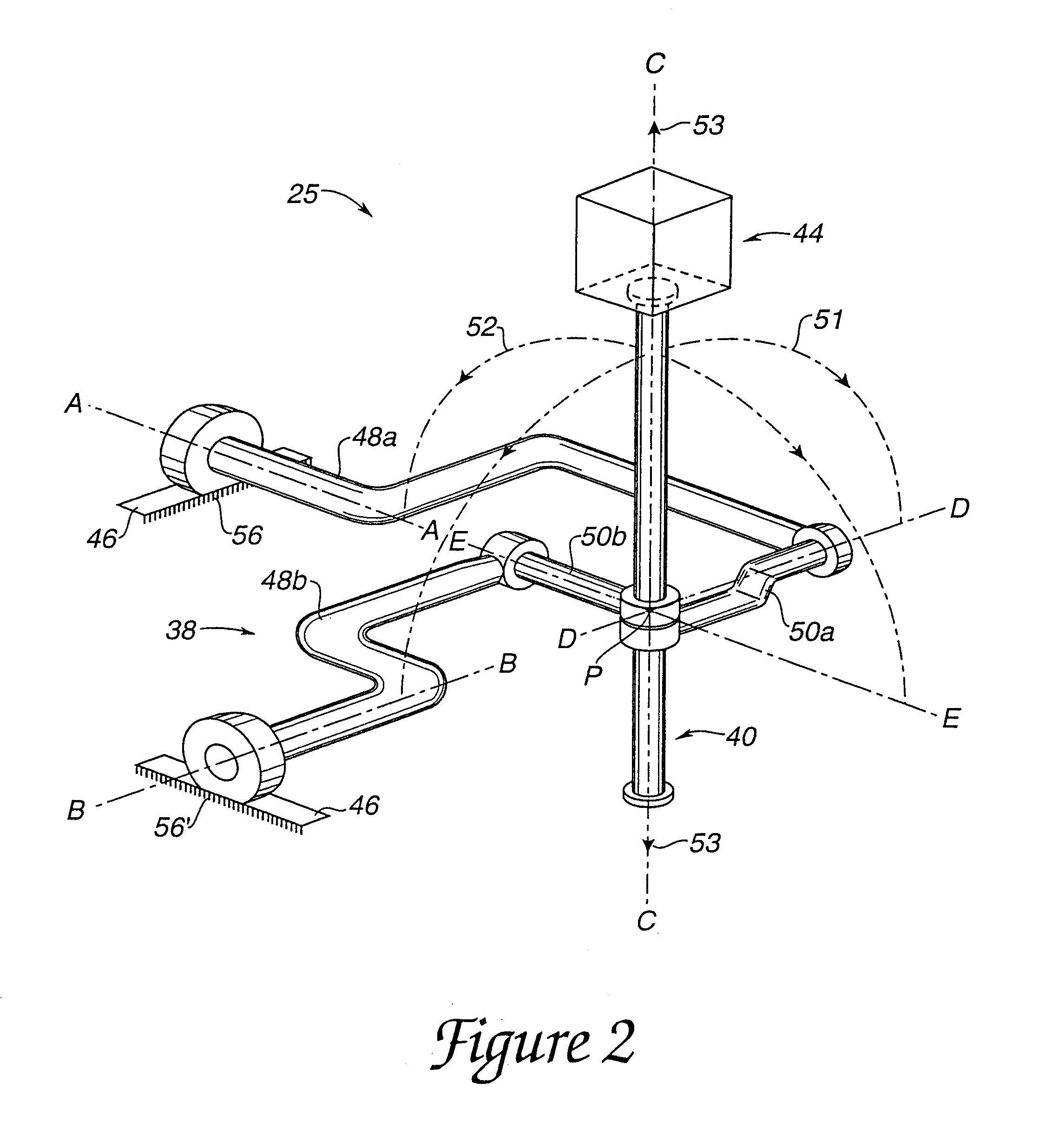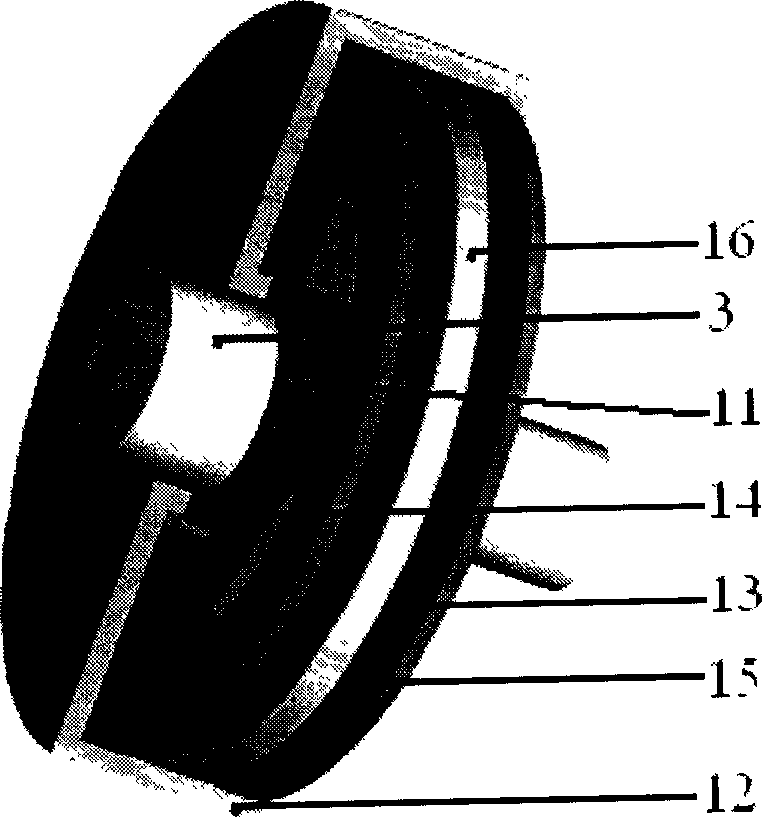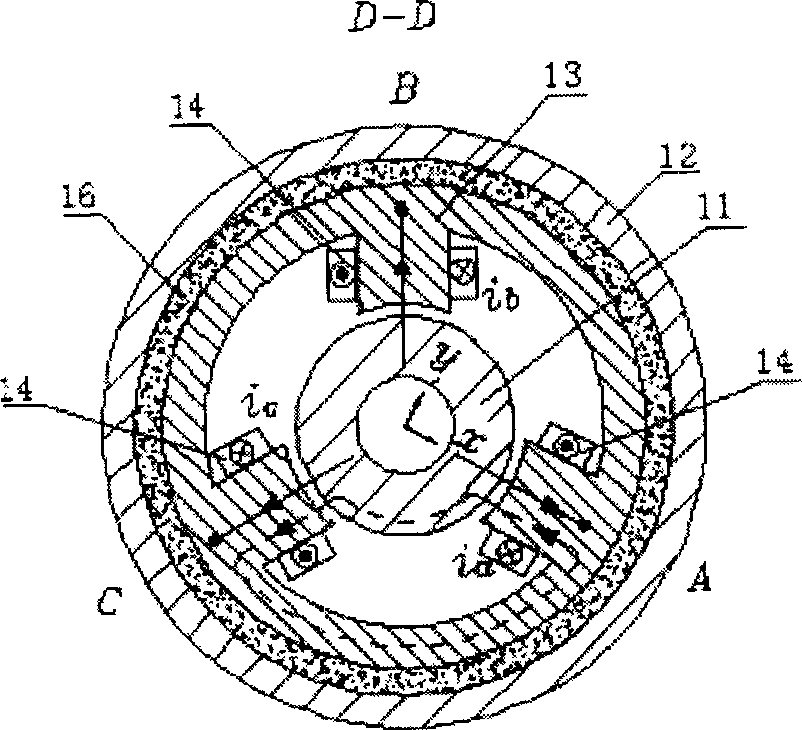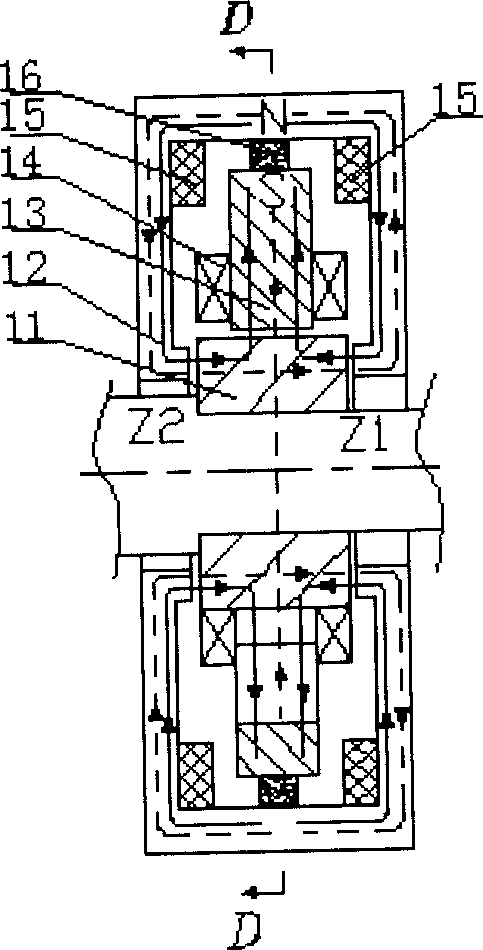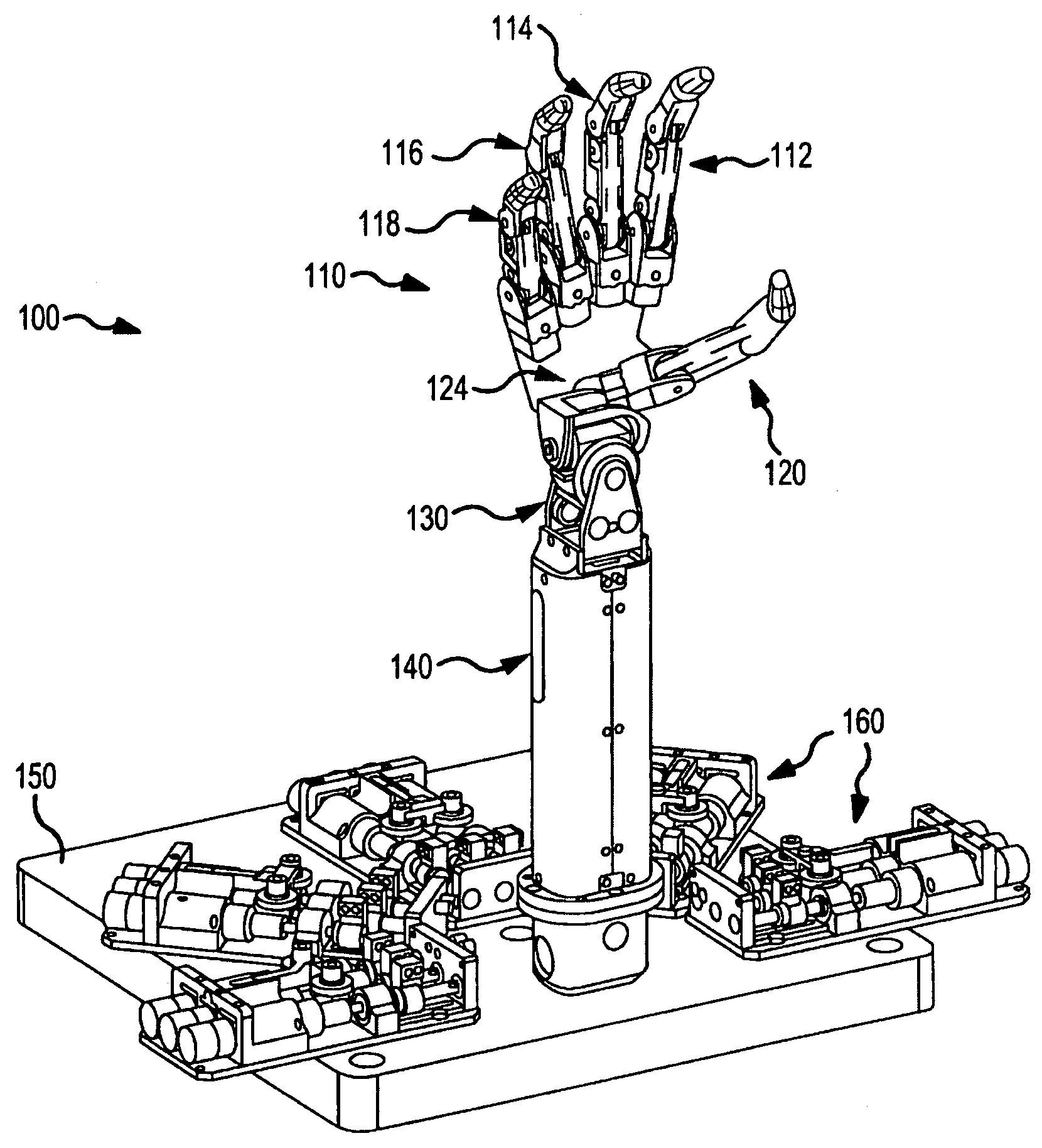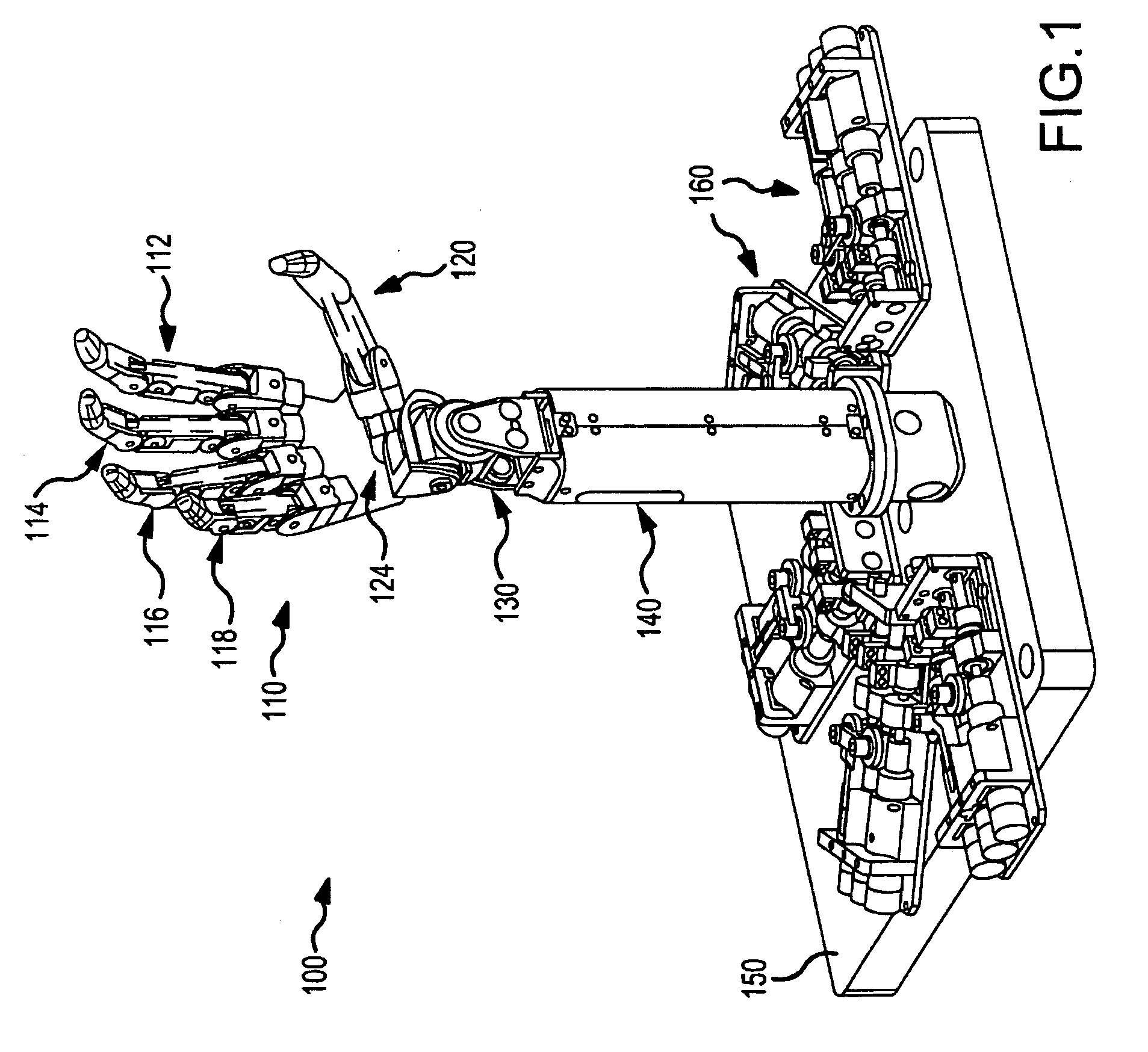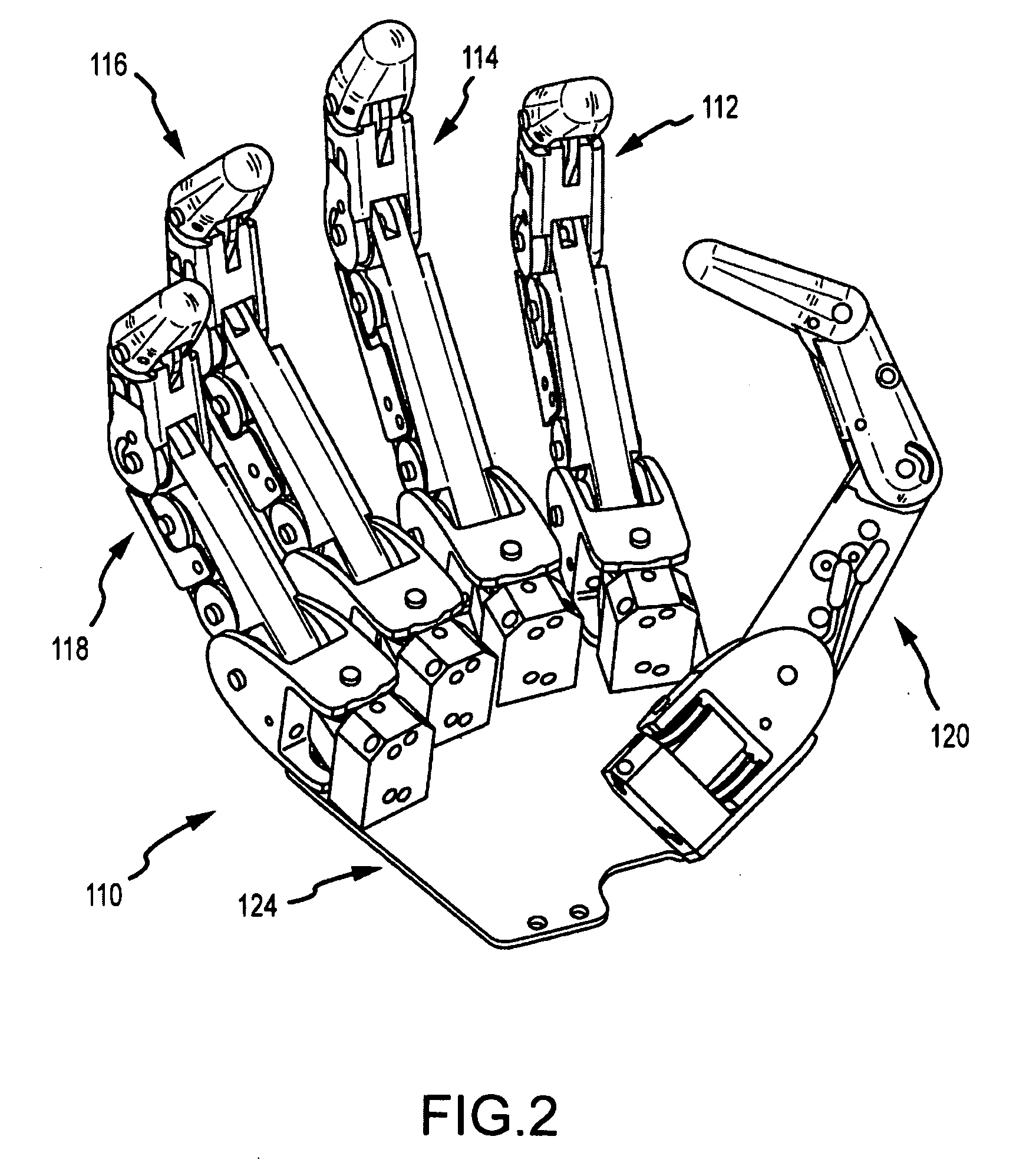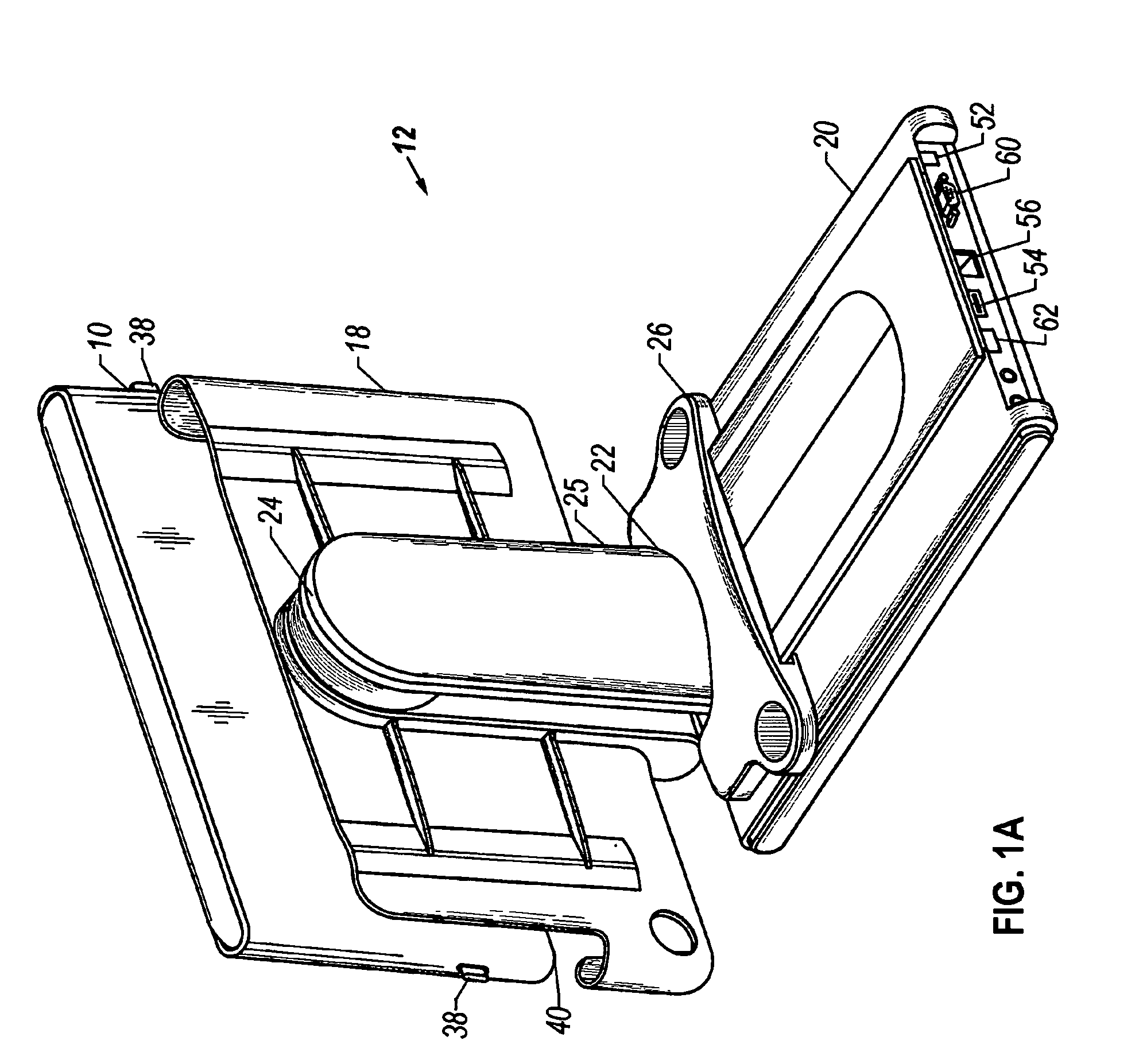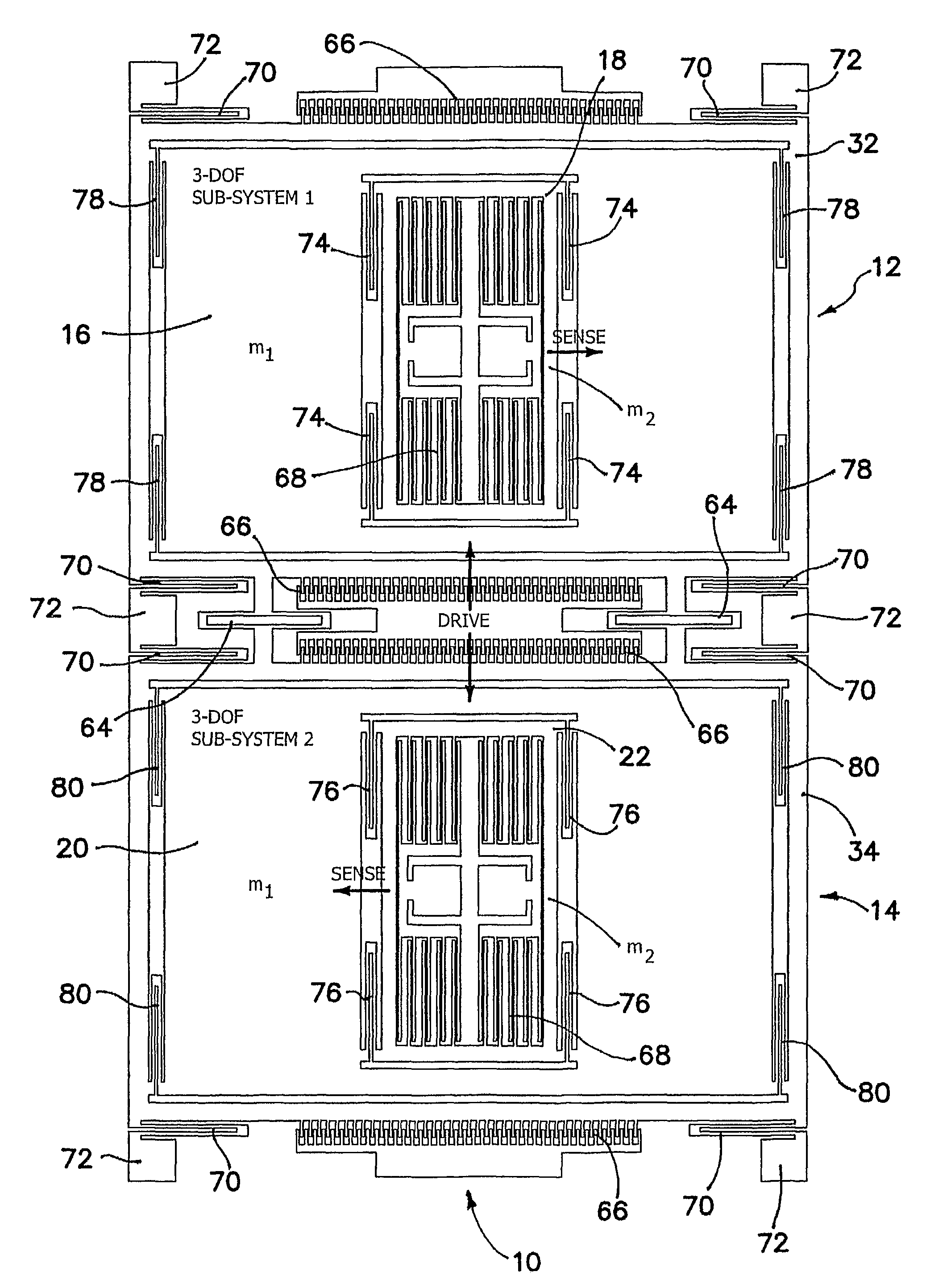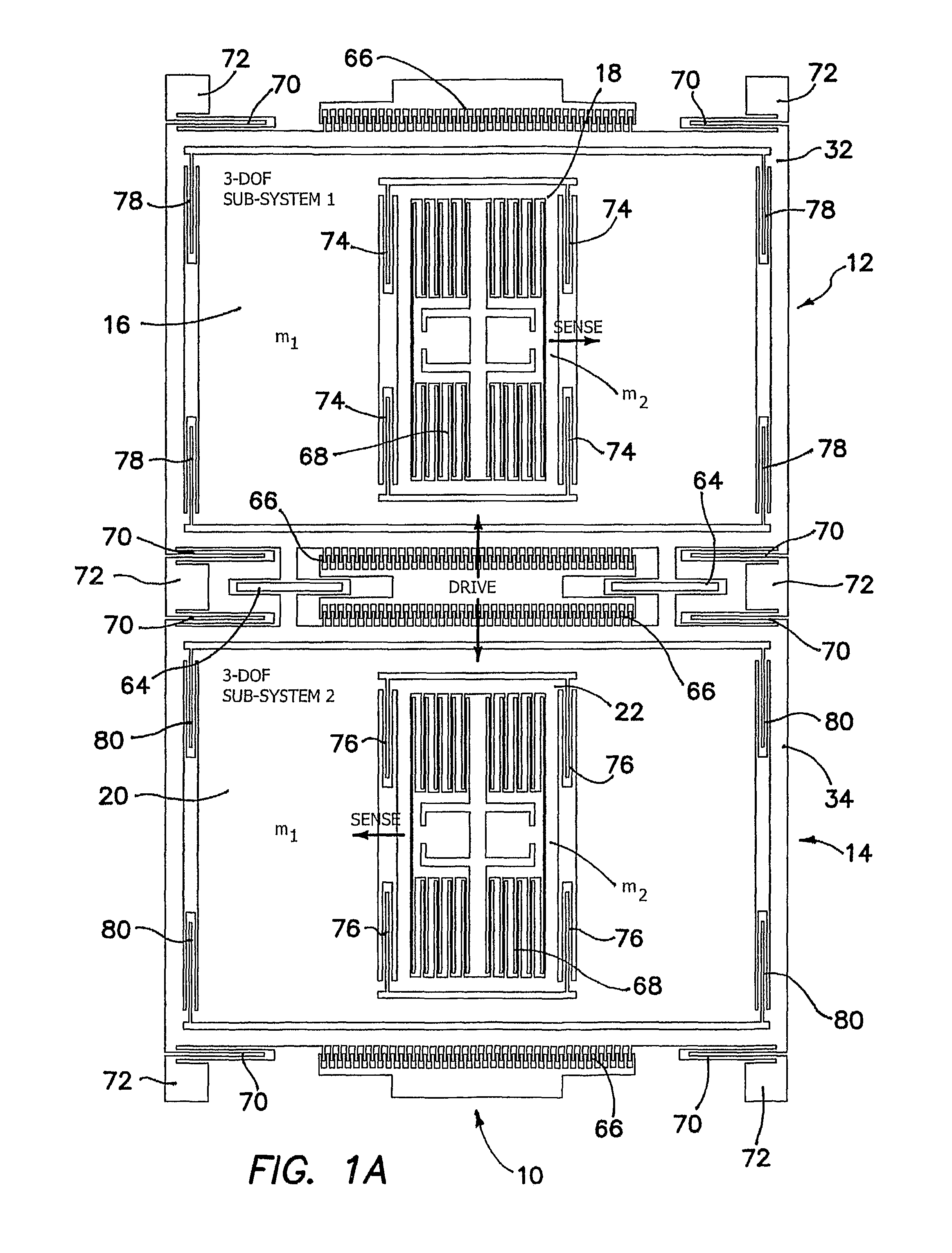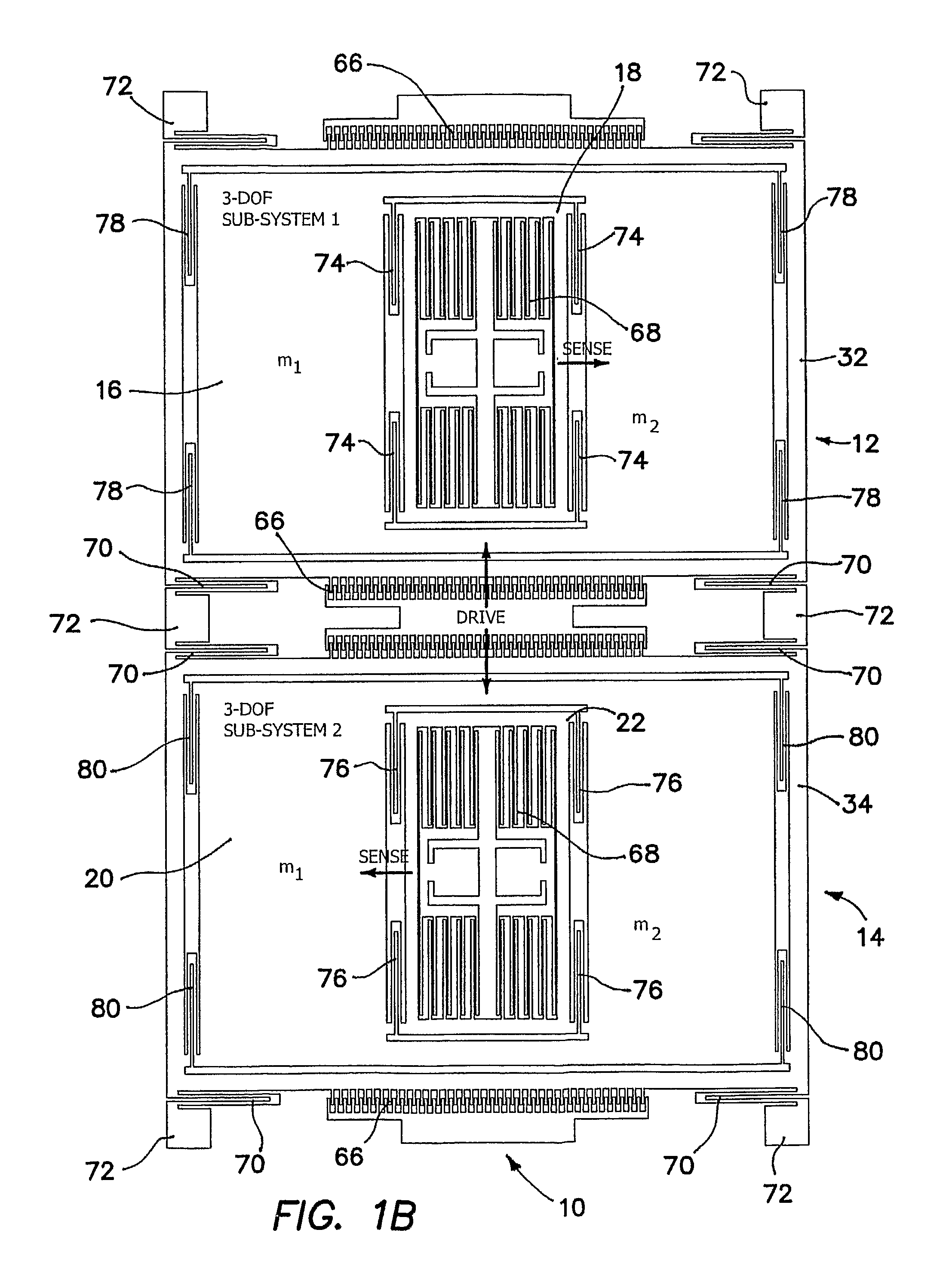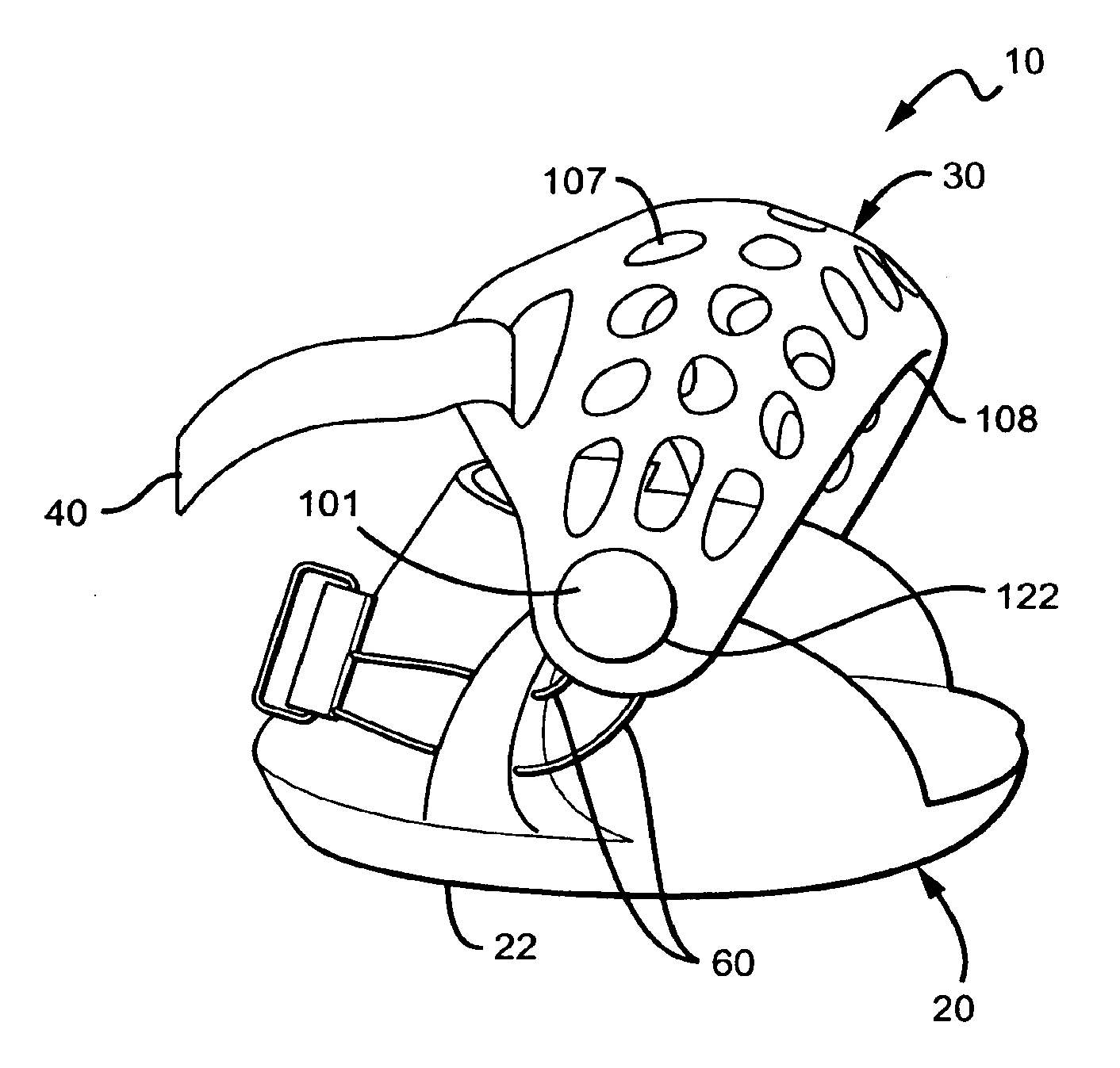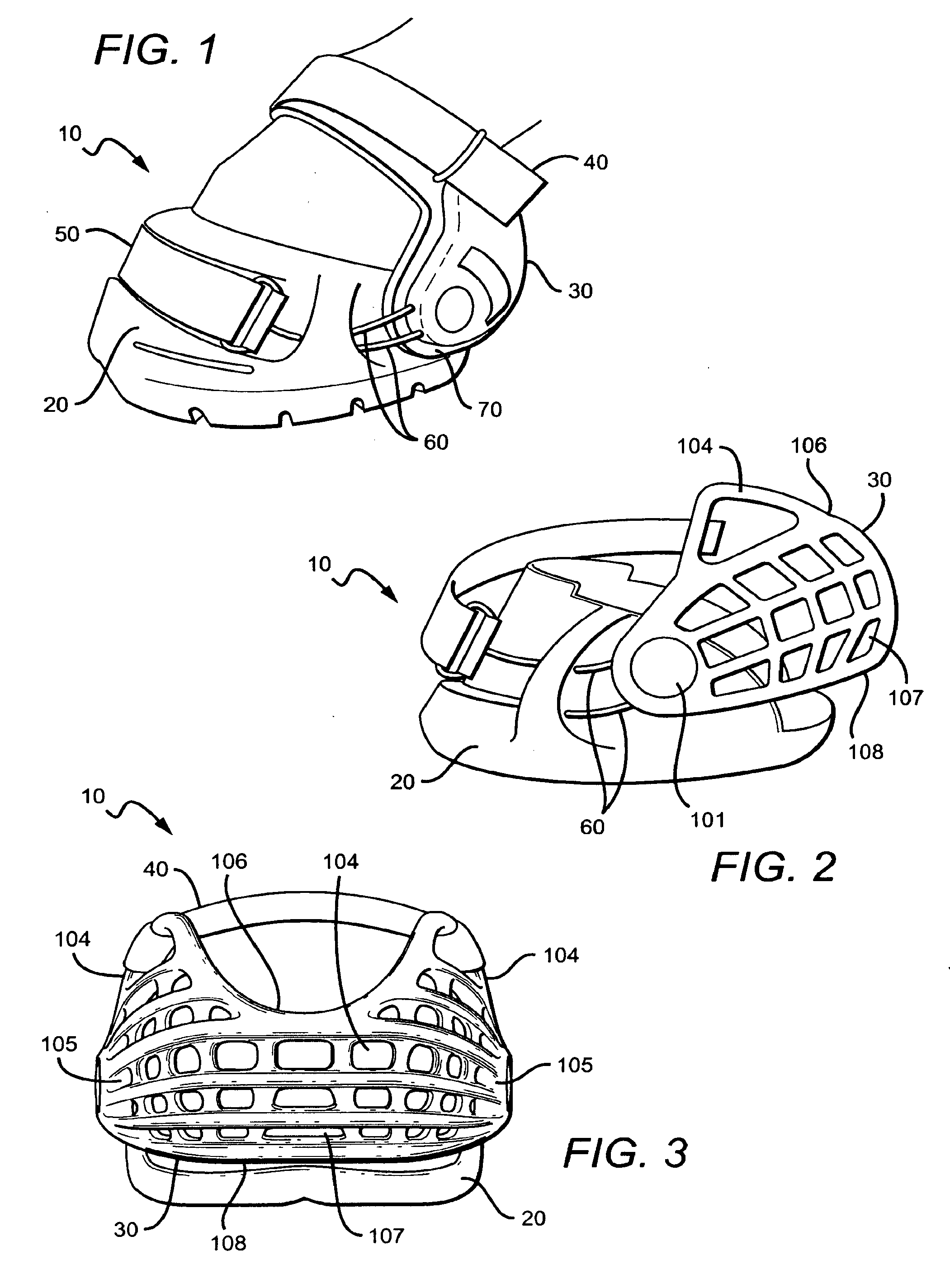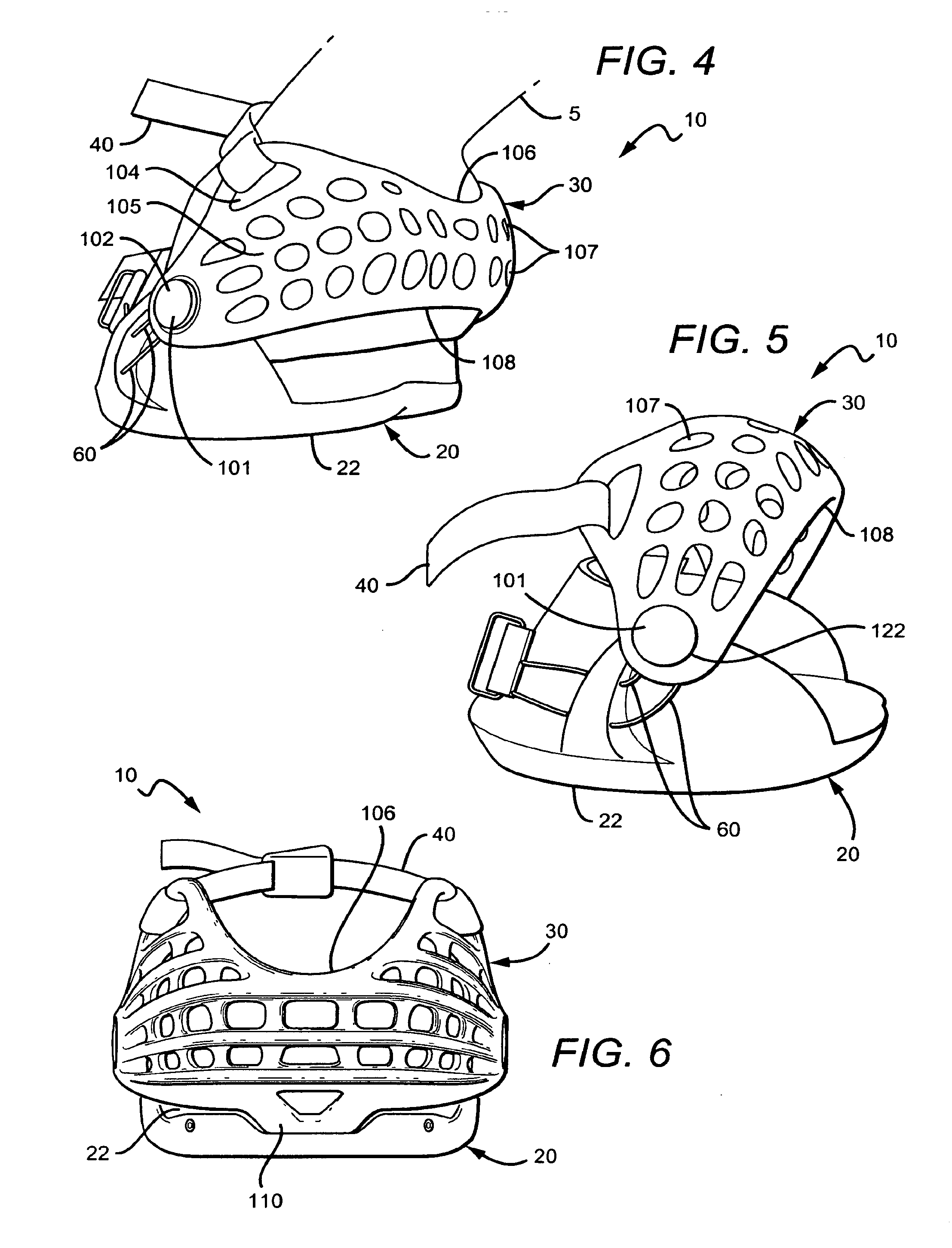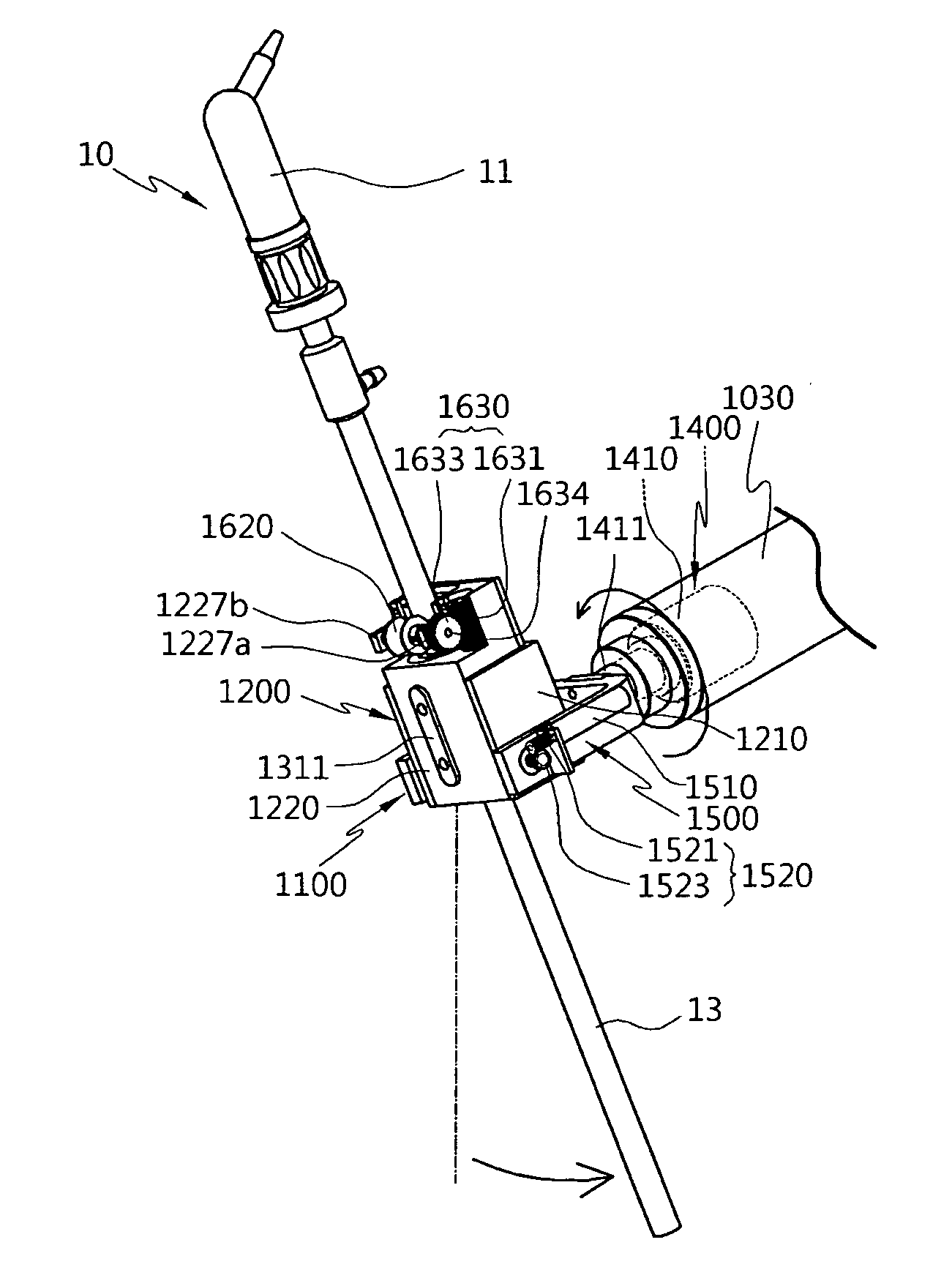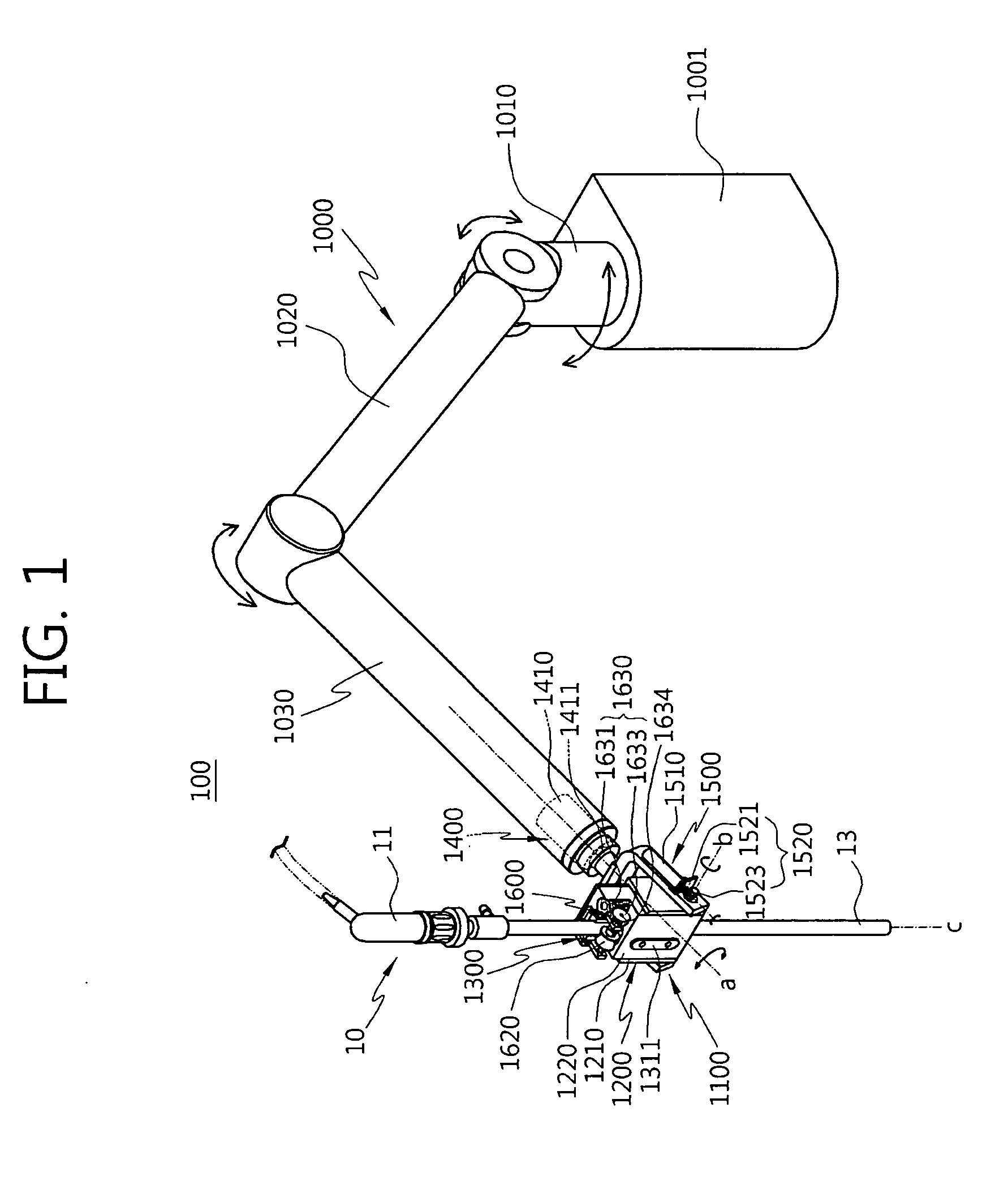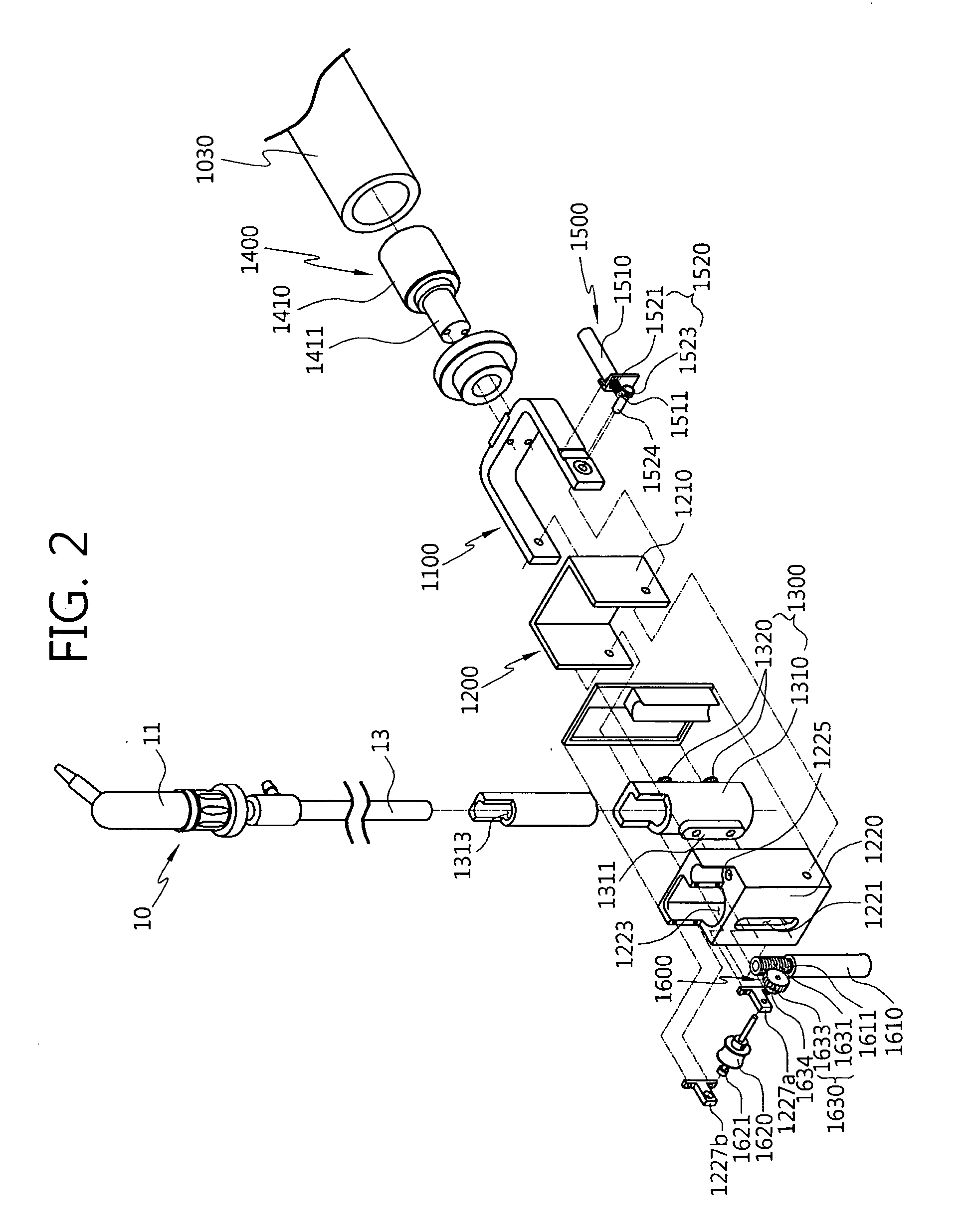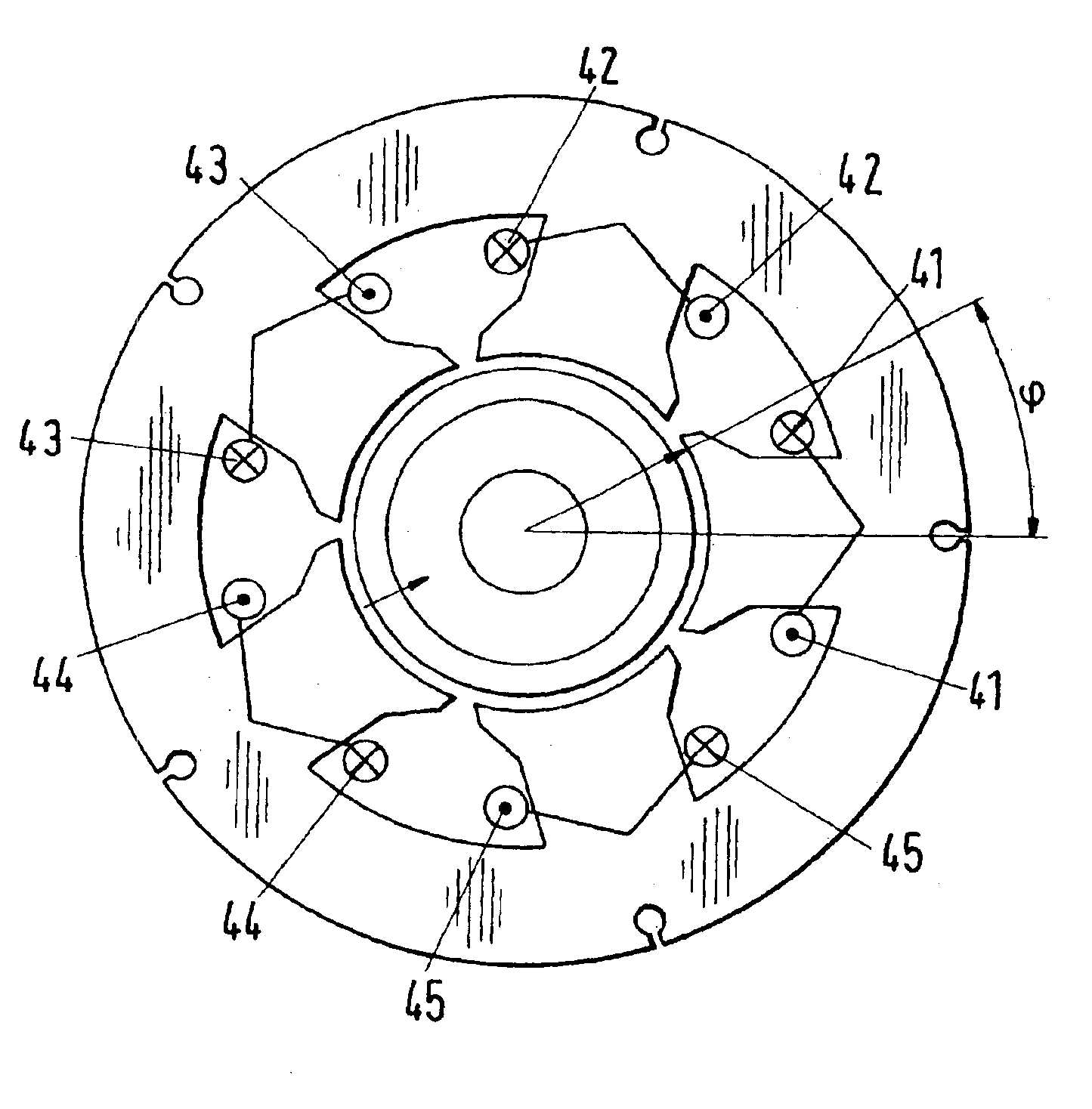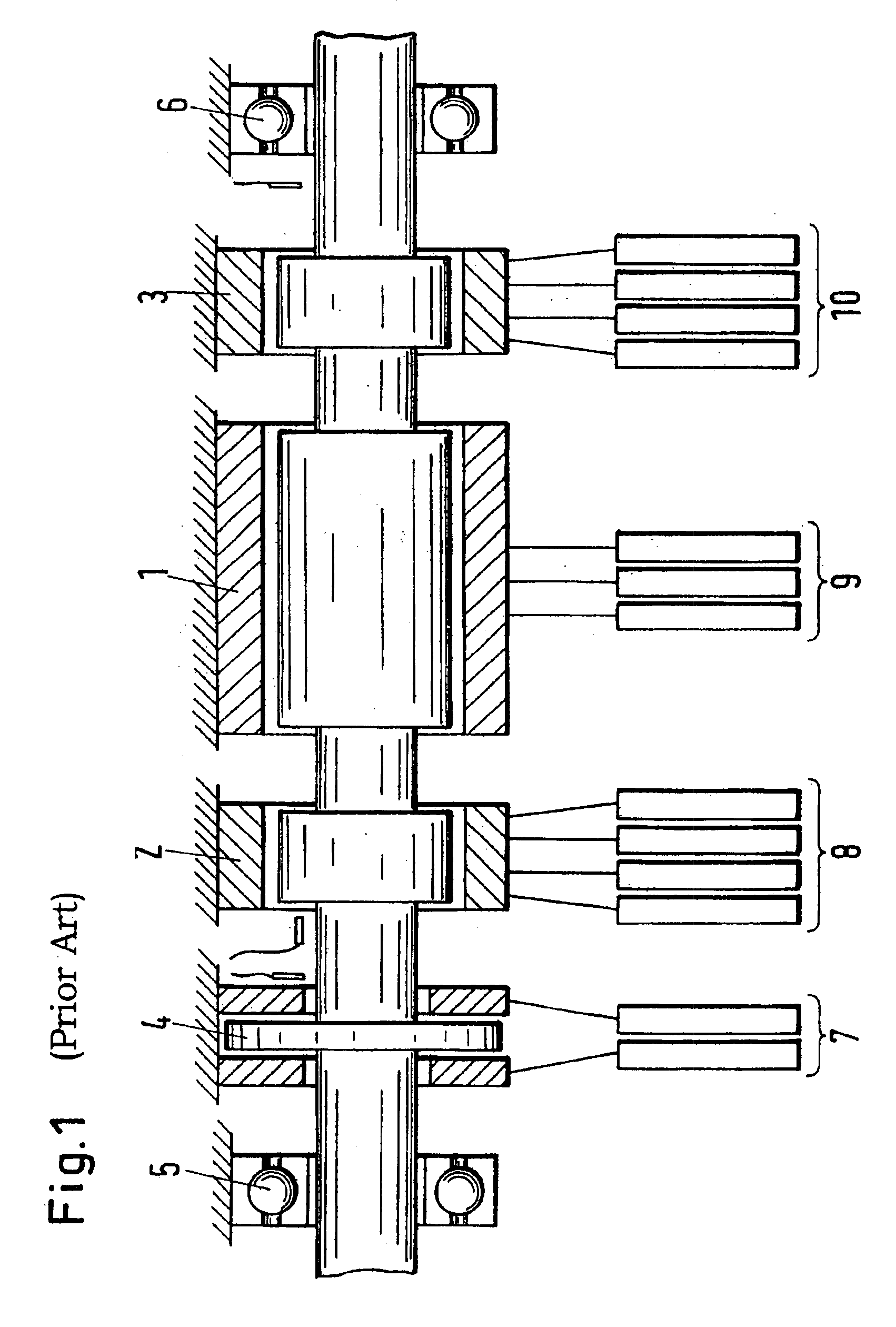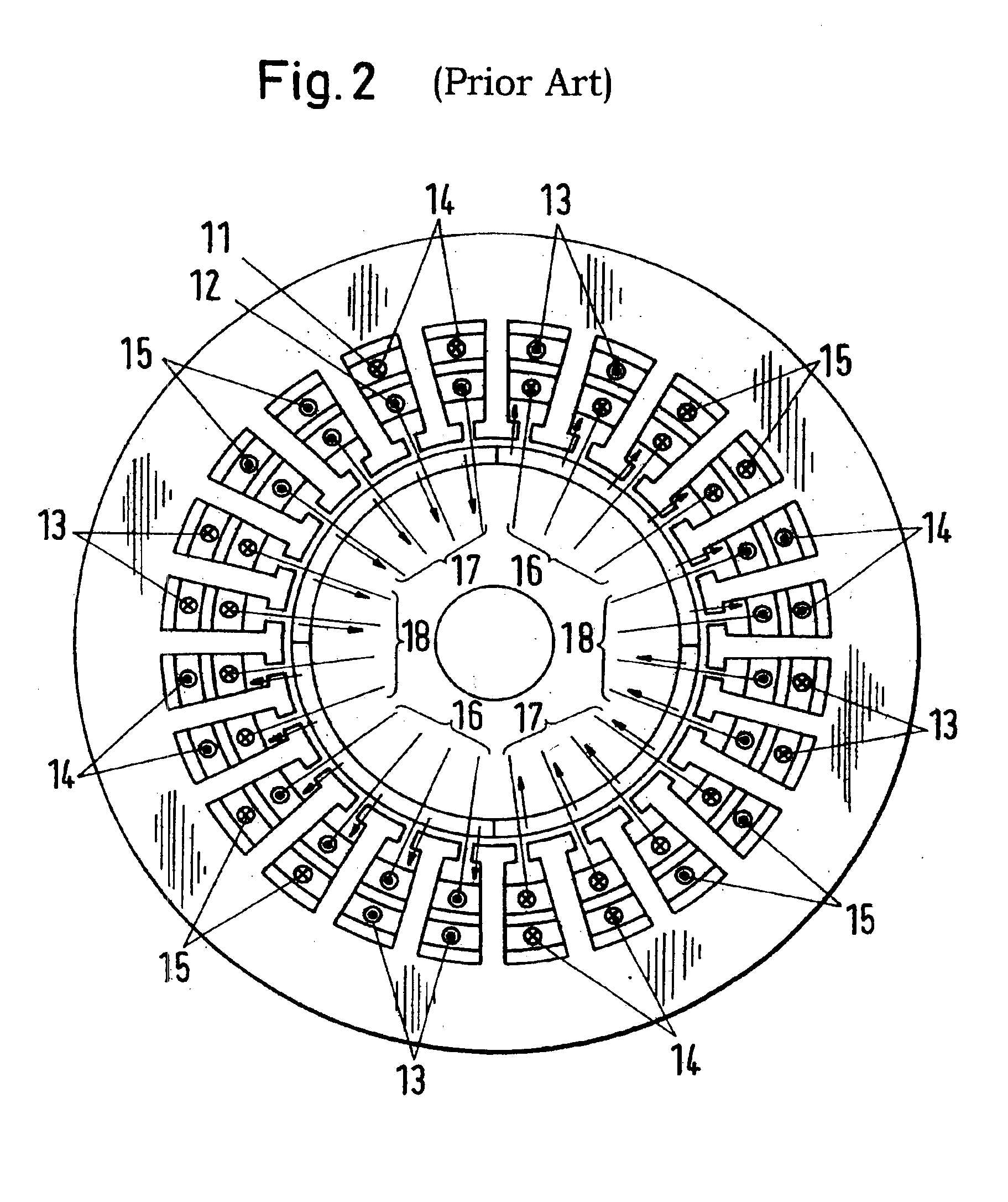Patents
Literature
Hiro is an intelligent assistant for R&D personnel, combined with Patent DNA, to facilitate innovative research.
3177 results about "Three degrees of freedom" patented technology
Efficacy Topic
Property
Owner
Technical Advancement
Application Domain
Technology Topic
Technology Field Word
Patent Country/Region
Patent Type
Patent Status
Application Year
Inventor
Robotic surgical system for performing minimally invasive medical procedures
ActiveUS8506555B2Level of manoeuvrabilityAccurate feedbackProgramme-controlled manipulatorDiagnosticsAccelerometerWrist support
Owner:EURO ATOMIC ENERGY COMMUNITY (EURATOM)
Lithographic apparatus and device manufacturing method
ActiveUS20060227309A1Improve accuracyPhotomechanical apparatusUsing optical meansThree degrees of freedomEncoder
A lithographic apparatus includes a displacement measuring system configured to measure the position of a substrate table in at least three degrees of freedom. The displacement measuring system includes a first x-sensor configured to measure the position of the substrate table in a first direction and a first and a second y-sensor configured to measure the position of the substrate table in a second direction. Said displacement measuring system further comprises a second x-sensor. The first and second x-sensor and first and second y-sensors are encoder type sensors configured to measure the position of each of the sensors with respect to at least one grid plate. The displacement measuring system is configured to selectively use, depending on the position of the substrate table, three of the first and second x-sensors and the first and second y-sensors to determine the position of the substrate table in three degrees of freedom.
Owner:ASML NETHERLANDS BV
Interactive user interfaces for robotic minimally invasive surgical systems
ActiveUS20090036902A1Ultrasonic/sonic/infrasonic diagnosticsMechanical/radiation/invasive therapiesDisplay deviceSurgical site
In one embodiment of the invention, a method for a minimally invasive surgical system is disclosed. The method includes capturing and displaying camera images of a surgical site on at least one display device at a surgeon console; switching out of a following mode and into a masters-as-mice (MaM) mode; overlaying a graphical user interface (GUI) including an interactive graphical object onto the camera images; and rendering a pointer within the camera images for user interactive control. In the following mode, the input devices of the surgeon console may couple motion into surgical instruments. In the MaM mode, the input devices interact with the GUI and interactive graphical objects. The pointer is manipulated in three dimensions by input devices having at least three degrees of freedom. Interactive graphical objects are related to physical objects in the surgical site or a function thereof and are manipulatable by the input devices.
Owner:THE JOHN HOPKINS UNIV SCHOOL OF MEDICINE +1
Manipulator with multiple degrees of freedom
ActiveUS7819894B2Increased durabilityImprove accuracyJointsDiagnosticsThree degrees of freedomDegrees of freedom
A bending forceps 1 has at least three degrees of freedom including relative opening / closing of a pair of gripping members 11a, 11b, rotation of both the gripping members around a first axis 15 and rotation of both the gripping members around a second axis 42 existing on an imaginary plane substantially perpendicular to the first axis 15. A drive power from an actuator is converted to each motion of the opening / closing of the gripping members, rotation thereof around the first axis and rotation thereof around the second axis by first to third link mechanisms 5, 6 and 7. The present invention enables the durability and control accuracy to be raised by employing a link mechanism as a drive power transmitting means. Further, the present invention facilitates sterilization, cleaning and attachment / detachment to / from a driving means.
Owner:MITSUISHI MAMORU +1
Tablet computing device with three-dimensional docking support
InactiveUS6856506B2Improved expansion baseImproved docking stationInput/output for user-computer interactionCoupling device connectionsTablet computerData connection
The present invention provides a tablet computer and a docking station assembly. This docking station comprises a docking assembly for positioning with three degrees of freedom and having a data connector for mechanically supporting and interfacing with the tablet computer. A support member couples the docking assembly to an expansion base. The base includes a number of ports for interfacing with a variety of peripheral devices or power supplies. These varieties of ports mount to a printed circuit board contained within the expansion base. A flexible printed circuit (FPC) combines the signal pathways for the variety of ports, allowing the signal pathways to travel from the printed circuit board and to the data connector. The tablet computing device has a plurality of contact or touch points positioned on the right and left edges of the tablet to facilitate aligning the tablet to the docking assembly in either a landscape or portrait mode.
Owner:ZEBRA TECH CORP
Interactive user interfaces for robotic minimally invasive surgical systems
ActiveUS8398541B2Ultrasonic/sonic/infrasonic diagnosticsMechanical/radiation/invasive therapiesMini invasive surgeryDisplay device
In one embodiment of the invention, a method for a minimally invasive surgical system is disclosed. The method includes capturing and displaying camera images of a surgical site on at least one display device at a surgeon console; switching out of a following mode and into a masters-as-mice (MaM) mode; overlaying a graphical user interface (GUI) including an interactive graphical object onto the camera images; and rendering a pointer within the camera images for user interactive control. In the following mode, the input devices of the surgeon console may couple motion into surgical instruments. In the MaM mode, the input devices interact with the GUI and interactive graphical objects. The pointer is manipulated in three dimensions by input devices having at least three degrees of freedom. Interactive graphical objects are related to physical objects in the surgical site or a function thereof and are manipulatable by the input devices.
Owner:THE JOHN HOPKINS UNIV SCHOOL OF MEDICINE +1
Computer input device enabling three degrees of freedom and related input and feedback methods
InactiveUS20070146325A1Function increaseAvoid the needCathode-ray tube indicatorsInput/output processes for data processingThree degrees of freedomHuman–computer interaction
Disclosed herein are a system and method for simultaneously reporting changes in location and orientation of an object moving over a planar surface and forming part of a computer input device, interoperably with a conventional mouse where reporting only location is in question. Further the present invention provides improved ways of user interaction with computer displays of two and three dimensional data and structures.
Owner:POSTON TIMOTHY +1
Methods and apparatuses for rehabilitation and training
InactiveUS20060293617A1Significant motionAvoid structural overloadingPhysical therapies and activitiesLocal control/monitoringThree degrees of freedomEngineering
A rehabilitation apparatus with at least three degrees of freedom of motion, comprising: a plurality of brakes; a motor, wherein the motor is operationally connected to the brakes; a plurality of surfaces, wherein each of a plurality of the surfaces correlates to a brake; and, wherein when the motor is activated, the brakes are selectively advanced to make contact with the surfaces causing friction between the brakes and the surfaces and thus causing variable resistance in the three degrees of freedom to the apparatus based on the extent of advancement of the brakes.
Owner:MOTORIKA
Physically realistic computer simulation of medical procedures
InactiveUS7215326B2Improve reliabilityReduce fatigueProgramme controlMedical simulationElectricityThree degrees of freedom
An apparatus for interfacing the movement of a shaft with a computer includes a support, a gimbal mechanism having two degrees of freedom, and three electromechanical transducers. When a shaft is engaged with the gimbal mechanism, it can move with three degrees of freedom in a spherical coordinate space, where each degree of freedom is sensed by one of the three transducers. A fourth transducer can be used to sense rotation of the shaft around an axis. The method includes the steps of defining an origin in 3-dimensional space, physically constraining a shaft in the 3-dimensional space such that a portion of the shaft always intersects the origin and such that a portion of the shaft extending beyond the origin defines a radius in a spherical coordinate system, transducing a first electrical signal related to a first angular coordinate of the radius with a first transducer, transducing a second electrical signal related to a second angular coordinate with a second transducer, transducing a third electrical signal related to the length of the radius with a third transducer, and coupling the transducers to a computer.
Owner:IMMERSION CORPORATION
5 degrees of freedom mobile robot
A robotic system that includes a remote controlled robot with at least five degrees of freedom and a teleconferencing function. The robot may include a camera, a monitor and a holonomic platform all attached to a robot housing. The robot may be controlled by a remote control station that also has a camera and a monitor. The remote control station may be linked to a base station that is wirelessly coupled to the robot. The cameras and monitors allow a care giver at the remote location to monitor and care for a patient through the robot. The holonomic platform provides three degrees of freedom to allow the robot to move about a home or facility to locate and / or follow a patient. The robot also has mechanisms to provide at least two degrees of freedom for the camera.
Owner:JONATA SUB TWO INC +1
Dynamic spinal stabilization device
InactiveUS20070288009A1Reduce movementIncrease strainInternal osteosythesisJoint implantsElectrical resistance and conductanceSpinal column
The present invention provides a dynamic stabilization device positionable about a portion of a spinal column. The stabilization device may generally include a first component and a second component, where the first and second components are movably coupled to one another to define an arcuate path of motion. The stabilization device may also include one or more adjustment elements positionable within first and second adjustment openings to affect the path of motion between the first and second components and / or the behavior and characteristics of the movement. In addition, one or more resistive elements may be adjustably positionable within either and / or both of the first and second adjustment openings to provide resistance and / or dampening of the forces experienced as the first and second components move relative to one another. The stabilization device may further define a joint having three degrees of freedom to adapt to movement of a spinal column.
Owner:DISC MOTION TECH
Methods and Apparatuses for Rehabilitation and Training
ActiveUS20080161733A1Avoid structural overloadingPhysical therapies and activitiesLocal control/monitoringThree degrees of freedomEngineering
A rehabilitation apparatus with at least three degrees of freedom of motion, comprising: a plurality of brakes; a motor, wherein the motor is operationally connected to the brakes; a plurality of surfaces, wherein each of a plurality of the surfaces correlates to a brake; and, wherein when the motor is activated, the brakes are selectively advanced to make contact with the surfaces causing friction between the brakes and the surfaces and thus causing variable resistance in the three degrees of freedom to the apparatus based on the extent of advancement of the brakes.
Owner:MOTORIKA
Method and system for calibrating a laser processing system and laser marking system utilizing same
InactiveUS7015418B2Mark accuratelyRecording apparatusSemiconductor/solid-state device detailsLaser processingThree degrees of freedom
A method of calibrating a laser marking system includes calibrating a laser marking system in three dimensions. The step of calibrating includes storing data corresponding to a plurality of heights. A position measurement of a workpiece is obtained to be marked. Stored calibration data is associated with the position measurement. A method and system for calibrating a laser processing or marking system is provided. The method includes: calibrating a laser marker over a marking field; obtaining a position measurement of a workpiece to be marked; associating stored calibration data with the position measurement; relatively positioning a marking beam and the workpiece based on at least the associated calibration data; and calibrating a laser marking system in at least three degrees of freedom. The step of calibrating includes storing data corresponding to a plurality of positions and controllably and relatively positioning a marking beam based on the stored data corresponding to the plurality of positions.
Owner:ELECTRO SCI IND INC
Magnetic haptic feedback systems and methods for virtual reality environments
InactiveUS20060209019A1Improve performanceGreat realismManual control with multiple controlled membersCathode-ray tube indicatorsMagnetic tension forceControl signal
A haptic feedback system comprises a moveable device with at least three degrees of freedom in an operating space. A display device is operative to present a dynamic virtual environment. A controller is operative to generate display signals to the display device for presentation of a dynamic virtual environment corresponding to the operating space, including an icon corresponding to the position of the moveable device in the virtual environment. An actuator of the haptic feedback system comprises a stator having an array of independently controllable electromagnet coils. By selectively energizing at least a subset of the electromagnetic coils, the stator generates a net magnetic force on the moveable device in the operating space. In certain exemplary embodiments the actuator has a controllably moveable stage positioning the stator in response to movement of the moveable device, resulting in a larger operating area. A detector of the system, optionally multiple sensors of different types, is operative to detect at least the position of the moveable device in the operating space and to generate corresponding detection signals to the controller. The controller receives and processes detection signals from the detection sensor and generates corresponding control signals to the actuator to control the net magnetic force on the moveable device.
Owner:ENERGID TECHNOLOGIES
Rotatable pivot mount for fans and other appliances
ActiveUS20070166160A1Easy to adjustAccurate directionPropellersPump componentsThree degrees of freedomEngineering
A pivot assembly that can be used with various appliances. The pivot assembly provides up to three degrees of freedom when positioning the appliance. The pivot may be used, for example, with a fan that is mounted on a base such that direction of the airflow generated can be adjusted about three coordinate axes by manipulating a single rotatable pivot mount. The fan assembly includes a base unit and an arm to which an appliance may be detachably coupled. The opposite end of the arm is provided with a spherical cap which is received by the base unit. Any adjustments to the positioning of the rotatable pivot mount are maintained by the friction within the rotatable pivot mount. Additionally, the pivot mount may include a pivot guide to restrict the degree of rotation about the pivot, thereby increasing stability.
Owner:HELEN OF TROY LIMITED
Flexible circuit board for tablet computing device
InactiveUS6914197B2Easy constructionReduce manufacturing costCoupling device connectionsDigital data processing detailsTablet computerDocking station
Owner:ZEBRA TECH CORP
Wearable lower limb exoskeleton device
InactiveCN101589983AImprove consistencySmall coaxialityWalking aidsInvalid friendly devicesHuman bodyKnee Joint
The invention discloses a wearable lower limb exoskeleton device, which comprises a waist supporting frame, a waist object carrier, an adjustable hip mechanism, a connecting rod adjustable knee joint mechanism, a connecting rod adjustable ankle joint mechanism, pressure detection shoes, a leg connecting rod, a constraint part and various connecting pieces. Both lower limbs have twelve rotational freedoms, the single lower limb has six degrees of freedom respectively, a hip has two degrees of freedom which finish bending and stretching as well as adduction and abduction movements of a hip joint, two joint axes always intersects at the center of the hip joint of a human body through the adjustment of the hip mechanism, and a knee joint has one degree of freedom which is coaxial with the knee joint of the human body and corresponds to the bending and stretching movement of the knee joint of the human body; and an ankle joint has three degrees of freedom. The device has good consistency of the movement of the hip joint and the movement of the human body during the walking of people; human-machine knee joints have small coaxality and position deviation; and the ankle joint has a compact structure. The device can be used for strengthening the abilities of walking with load and walking for a long time of wearers and detecting walking information of the wearers, and can also be used for helping people with slight obstacle of lower limb movement to normally walk and gradually rehabilitate.
Owner:BEIJING UNIV OF TECH
Modular Kinematic Construction Kit
A construction kit comprises a plurality of building modules, wherein at least one of the building modules is functional and adapted to perform a specific behavior. In some embodiments, each of the building modules includes at least one connection face adapted to pass either data or power from a first face of a first building module to a first face of a second building module. In certain other embodiments, each connection face of the building modules is electrically connected with each of the other faces. The kit includes at least one connector adapted to couple the at least one functional module to at least one other module while providing up to three degrees of freedom between the functional module and the at least one other module.
Owner:MODULAR ROBOTICS
Catheter and system for using same
The present invention describes a system for controlling a thin flexible thermoplastic catheter. The system includes a plurality of shape memory alloy filaments attached to the distal end of the catheter, each filament having a phase and a temperature; a means for receiving a strain value for at least one of the filaments; a means for determining the phase change that will results in the strain value, whereby the phase change is dependent on the temperature and the temperature is dependent on a voltage; and a means for setting the voltage in each filament thereby resulting in movement of the catheter. In addition, a three-degrees of freedom force sensor measures the magnitude and direction of the force exerted on the tip of the catheter. The catheter can be autonomously guided or it can be interfaced to a haptic device. The catheter can also be fitted with microtools.
Owner:UNIV OF WESTERN ONTARIO +1
Manufacturing within a single-use container
ActiveUS20160068793A1Function increaseProgramme-controlled manipulatorBioreactor/fermenter combinationsNumerical controlThree degrees of freedom
A manufacturing assembly has at least a sterilizable chamber containing at least one of a three-dimensional printing device (additive manufacturing), a Computer Numerical Controlled (CNC) finishing head (subtractive manufacturing), a vacuum-forming unit, an injection-molding unit, a laser-cutting unit, a ultrasonic-welding unit, a robotic arman analysis device, a sampling device or a combination thereof. A plurality of individual sterilizable chambers may be aseptically connected into a network of sterilizable chambers that provides additional functionality for the manufacturing assembly. A sterilizable printer assembly may include at least one printing head, a printing platform, and a driving mechanism adapted to perform a movement of the at least one printing head relative to the printing platform along three degrees of freedom; a printer housing enclosing the printer assembly in a sterile manner, at least one aseptic connector fluidly connected to a corresponding one of the at least one printing head.
Owner:SARTORIUS STEDIM BIOTECH GMBH
Robot for large-format, three dimensional digital printing on a fixed surface and printing method involving at least one such robot
InactiveUS20070062383A1Avoid couplingAdditive manufacturing apparatusDuplicating/marking methodsThree degrees of freedomEngineering
The invention concerns a print robot for large format three-dimensional printing on a fixed surface ( 11 ) having five motorized axes, comprising an inkjet printing block ( 13 ), means for displacing and orientating this printing assembly along several axes, at least one control unit controlling these means and a drying device to dry the ink sprayed onto said surface ( 11 ), wherein these means comprise: a carrier ( 15 ) with three degrees of freedom in translation, ensuring the positioning of the printing assembly allowing its horizontal, vertical and depth translation, a wrist ( 16 ) with two degrees of freedom which supports and orientates the printing assembly ( 13 ) allowing its rotations along two perpendicular axes. The invention also concerns a process implementing this robot.
Owner:CENT NAT DE LA RECHERCHE SCI +1
Dual arm robot
InactiveUS7891935B2Avoid collisionProgramme-controlled manipulatorMechanical apparatusThree degrees of freedomActuator
A dual arm robot assembly has two arms each having a set of joint / link pairs that, in conjunction with an actuator assembly, define at least three degrees of freedom to provide independent horizontal translation and rotation of a distalmost link. A vertical motion mechanism is also provided.
Owner:BOOKS AUTOMATION US LLC
Laparoscopic simulation interface
InactiveUS7023423B2Highly realistic force feedbackReduction of friction and compliance and backlashInput/output for user-computer interactionManual control with multiple controlled membersHigh bandwidthJoystick
A method and apparatus for providing high bandwidth and low noise mechanical input and output for computer systems. A gimbal mechanism provides two revolute degrees of freedom to an object about two axes of rotation. A linear axis member is coupled to the gimbal mechanism at the intersection of the two axes of rotation. The linear axis member is capable of being translated along a third axis to provide a third degree of freedom. The user object is coupled to the linear axis member and is thus translatable along the third axis so that the object can be moved along all three degrees of freedom. Transducers associated with the provided degrees of freedom include sensors and actuators and provide an electromechanical interface between the object and a digital processing system. Capstan drive mechanisms transmit forces between the transducers and the object. The linear axis member can also be rotated about its lengthwise axis to provide a fourth degree of freedom, and, optionally, a floating gimbal mechanism is coupled to the linear axis member to provide fifth and sixth degrees of freedom to an object. Transducer sensors are associated with the fourth, fifth, and sixth degrees of freedom. The interface is well suited for simulations of medical procedures and simulations in which an object such as a stylus or a joystick is moved and manipulated by the user.
Owner:IMMERSION CORPORATION
AC-DC radial-axial mixed magnetic bearing having three degrees of freedom and method for controlling the same
InactiveCN1737388ALarge suspension forceShorten the lengthBearingsMagnetic holding devicesMagnetic bearingThree degrees of freedom
This invention relates to a three freedom degree AC-DC radial-axial mixing magnetic bearing, which is fit for the electrical main shaft and rotary main shaft needs suspending support. The permanent magnet will provide radial-axial static bias magnetic flux to generate static bearing ability; the radial controlling coil and the axial controlling coil will provide magnetic flux to generate dynamic suspending force, making the rotor suspending on the balance place in radial-axial three freedom degree. The power enlarging circuit comprises axial liner power amplifier and radial CRPWM current tracking inverter, and the displacement sensor will test the shift of the rotor and then feedback to DSP controller; the DSP will operate PID compute and process, provide controlling signal to power enlarging circuit; the controlling signal will generate controlling current in magnetic bearing coil, and the controlling current will generate magnetic force in operation magnet, by which it can realize the stable suspending and real-time monitoring of the rotor in radial and axial.
Owner:JIANGSU UNIV
Robot hand with human-like fingers
ActiveUS20100259057A1Reduce tendonReduce cable frictionProgramme-controlled manipulatorGripping headsRobot handThree degrees of freedom
A robotic hand with finger assemblies to better simulate human hand form factors and gestures. For each finger assembly, the robotic hand includes a finger drive assembly that is operable to selectively apply tension to four elongated and flexible tension elements (e.g., steel cable). Each of the finger assemblies includes a set of links or link members that are actuated or moved by the selective tensioning / movement of the tension elements by the drive assembly. The links are interconnected with pivotal joints such that they have three degrees-of-freedom, and the finger assembly includes a set of pulleys that are supported on the links and that are arranged to provide support and to guide the tension elements through the finger assembly. The tension elements preferably extend only partially about any one of the pulleys, whereby the finger assembly utilizes “n+1” actuation with non-helical wrapping of the tension elements.
Owner:DISNEY ENTERPRISES INC
Docking support for a tablet computer with extended battery
InactiveUS20050213298A1Digital data processing detailsElectrical apparatus contructional detailsDocking stationTablet computer
The present invention provides a docking station (501) for a tablet computer (339) with or without an extended battery (301). This docking station (501) comprises a docking assembly for positioning with three degrees of freedom and having a data connector for mechanically supporting and interfacing with the tablet computer (339). A support member (505) couples the cradle (507) assembly to an expansion base (503). The base (503) includes a number of ports (54, 56, 60, 62) for interfacing with a variety of peripheral devices or power supplies. These varieties of ports mount to a printed circuit board contained within the expansion base (503). A flexible printed circuit (FPC) (64) combines the signal pathways for the variety of ports, allowing the signal pathways to travel from the printed circuit board (64) and to the data connector (519). The docking station (501) can support the tablet computer (339) in any orientation from landscape to portrait and can simultaneously charge both the tablets main battery (347) and the extended battery (301) while cradled in the docking station (501).
Owner:MOTION COMPUTING
Robust six degree-of-freedom micromachined gyroscope with anti-phase drive scheme and method of operation of the same
ActiveUS8113050B2Effectively and substantially rejectEfficiently rejectedMechanical apparatusAcceleration measurement using interia forcesTuning forkGyroscope
A method of operating an anti-phase six degree-of-freedom tuning fork gyroscope system comprises the steps of driving a first three degree-of-freedom gyroscope subsystem, and driving a second three degree-of freedom gyroscope subsystem in an anti-phase mode with the first gyroscope subsystem at an anti-phase resonant frequency. Acceleration or an angular rate of motion is sensed by the first and second three degree-of-freedom gyroscope subsystems operating in a flat frequency response range where the anti-phase resonant frequency is designed. Response gain and phase are stable and environmental and fabrication perturbations are avoided by such operation. A anti-phase six degree-of-freedom tuning fork gyroscope system which operates as described is also characterized.
Owner:RGT UNIV OF CALIFORNIA
Hoof Boot with Pivoting Heel Captivator
A hoof boot has a base, a heel captivator, and a pivoting mechanism that disposes the heel captivator to pivot relative to the base, preferably in a manner that allows the heel captivator at least three degrees of freedom of movement relative to the base. The heel captivator is preferably low in the rearmost portion, which provides clearance for the pastern bones of the equine lower leg to descend upon weight bearing during movement at various gaits. To reduce the possibility for bruising and chaffing of soft tissue around the pastern bones, and to help eliminate accumulation of debris, preferred heel captivators have an open mesh architecture. Heel captivators can alternatively or additionally be designed with fabric covered neoprene or other liners. Boots are preferably tightened using mechanically advantages laces.
Owner:BIG BRAIN HLDG INC
Endoscope manipulator for minimally invasive surgery
InactiveUS20100274078A1Large space for activitiesEndoscopesSurgical instrument supportLess invasive surgeryThree degrees of freedom
According to endoscope manipulator for MIS capable of overcoming disadvantages of multiaxial endoscope manipulator including conventional robot arm and providing compact and light-weight structure to obtain maximum activity space for medical staff, multi-joint arm is configured so that movement of all joints from base link to tip link is manually locked-unlocked by user and not controlled by motors. Endoscope mounted on end of multi-joint arm is manipulated using motors to enable movement of three-degrees of freedom, thereby accomplishing compact and light-weight endoscope manipulator. Tube of endoscope can be press-fitted onto tip of multi-joint arm, and three-axis movement function for vertical, lateral and forward / backward conveyance of endoscope is implemented in tip of multi-joint arm. Since external manual joints are not moved during operation, disturbance or restriction to activities of medical staff can be minimized. One-click button function of readily and rapidly attaching / detaching endoscope to / from endoscope manipulator can increase convenience of use.
Owner:NAT CANCER CENT
Stator field providing torque and levitation
InactiveUS6879074B2Easy constructionSimple electrical controlShaftsMechanical energy handlingMagnetomotive forceLevitation
The invention relates to an economical, non-wearing, electrical permanent magnet drive for actively controlling the rotor position in three degree of freedom. The stator windings produce superimposed fields with different pole numbers in the pole pitches by unsymmetrical magnetomotive force distributions.
Owner:LEVITRONIX TECH +1
Features
- R&D
- Intellectual Property
- Life Sciences
- Materials
- Tech Scout
Why Patsnap Eureka
- Unparalleled Data Quality
- Higher Quality Content
- 60% Fewer Hallucinations
Social media
Patsnap Eureka Blog
Learn More Browse by: Latest US Patents, China's latest patents, Technical Efficacy Thesaurus, Application Domain, Technology Topic, Popular Technical Reports.
© 2025 PatSnap. All rights reserved.Legal|Privacy policy|Modern Slavery Act Transparency Statement|Sitemap|About US| Contact US: help@patsnap.com
